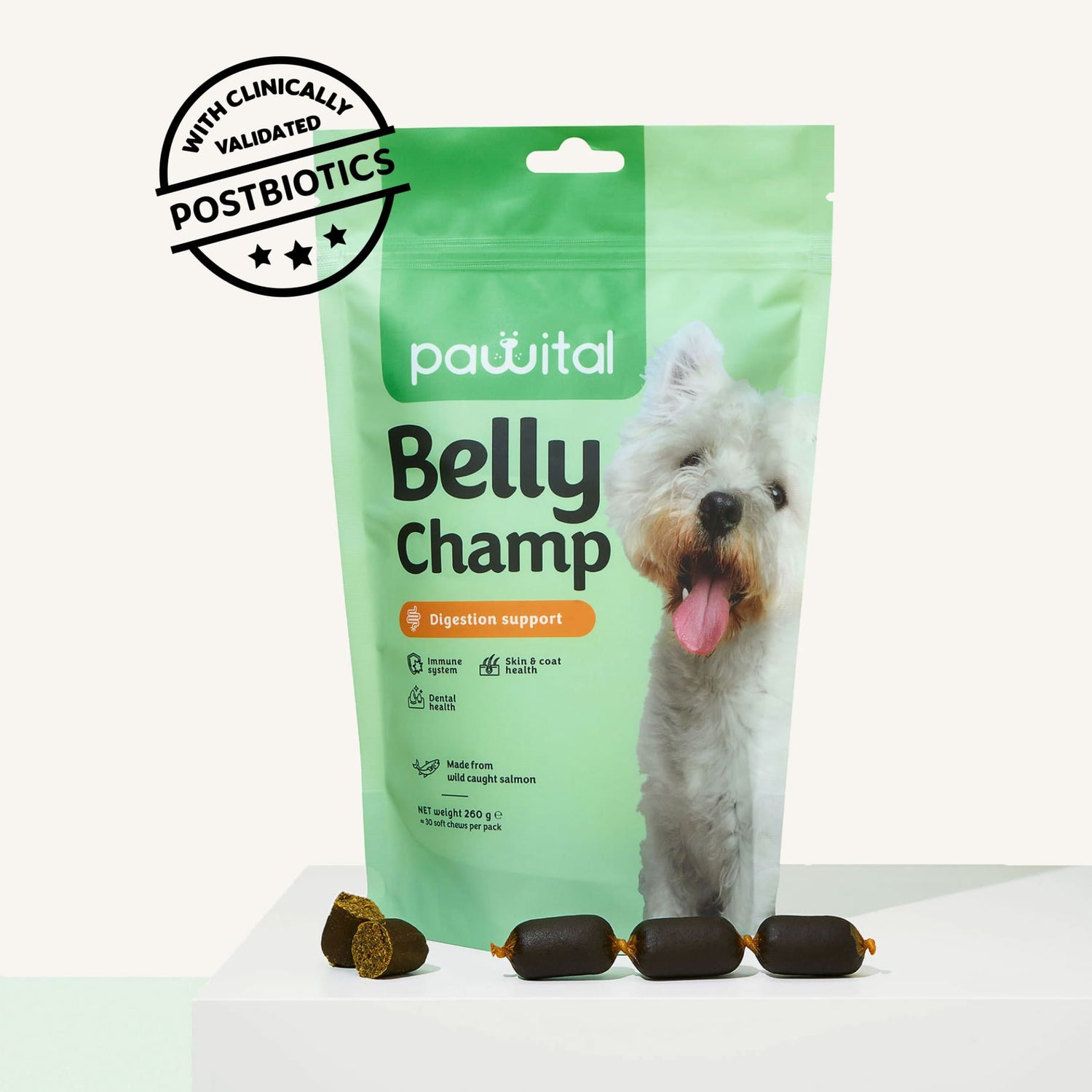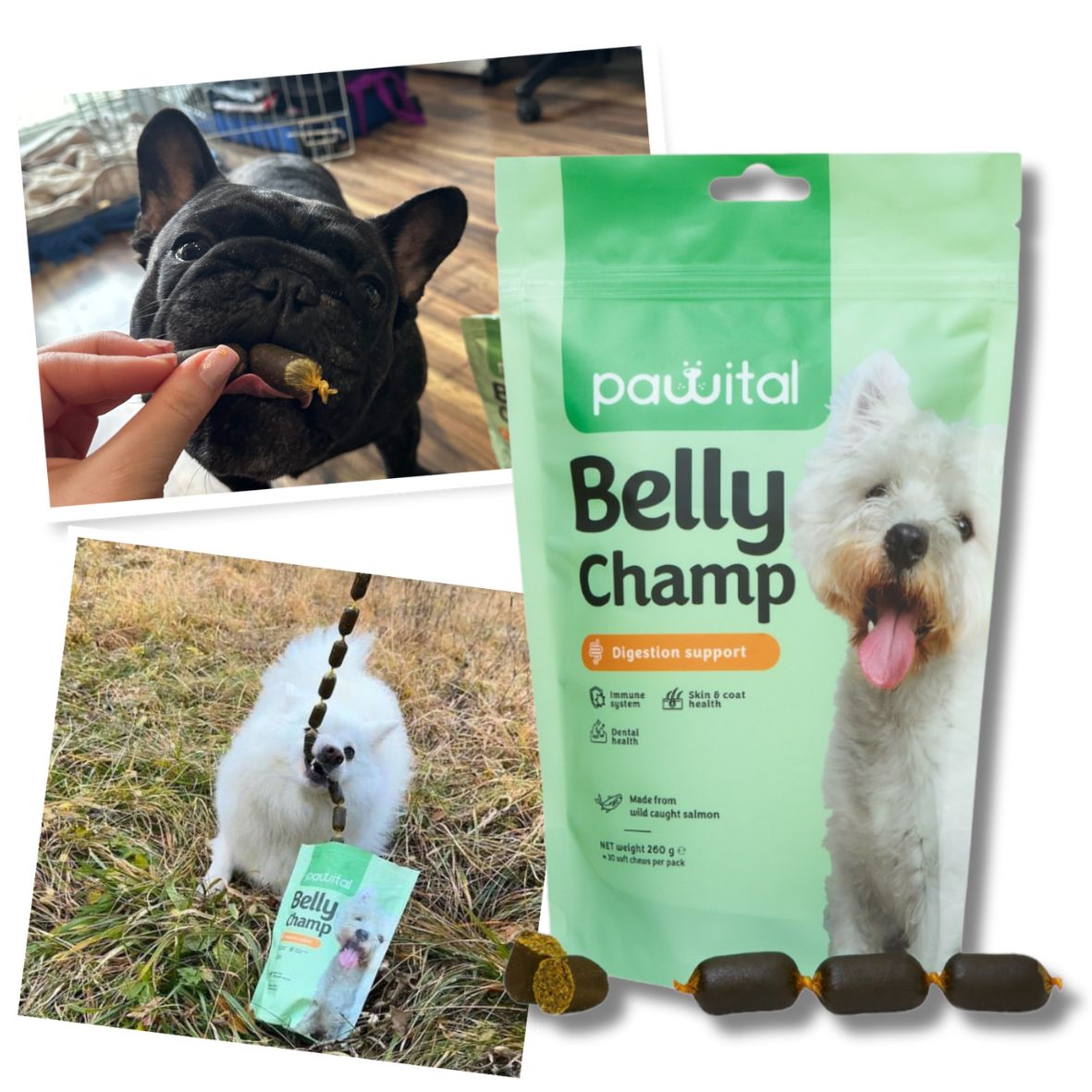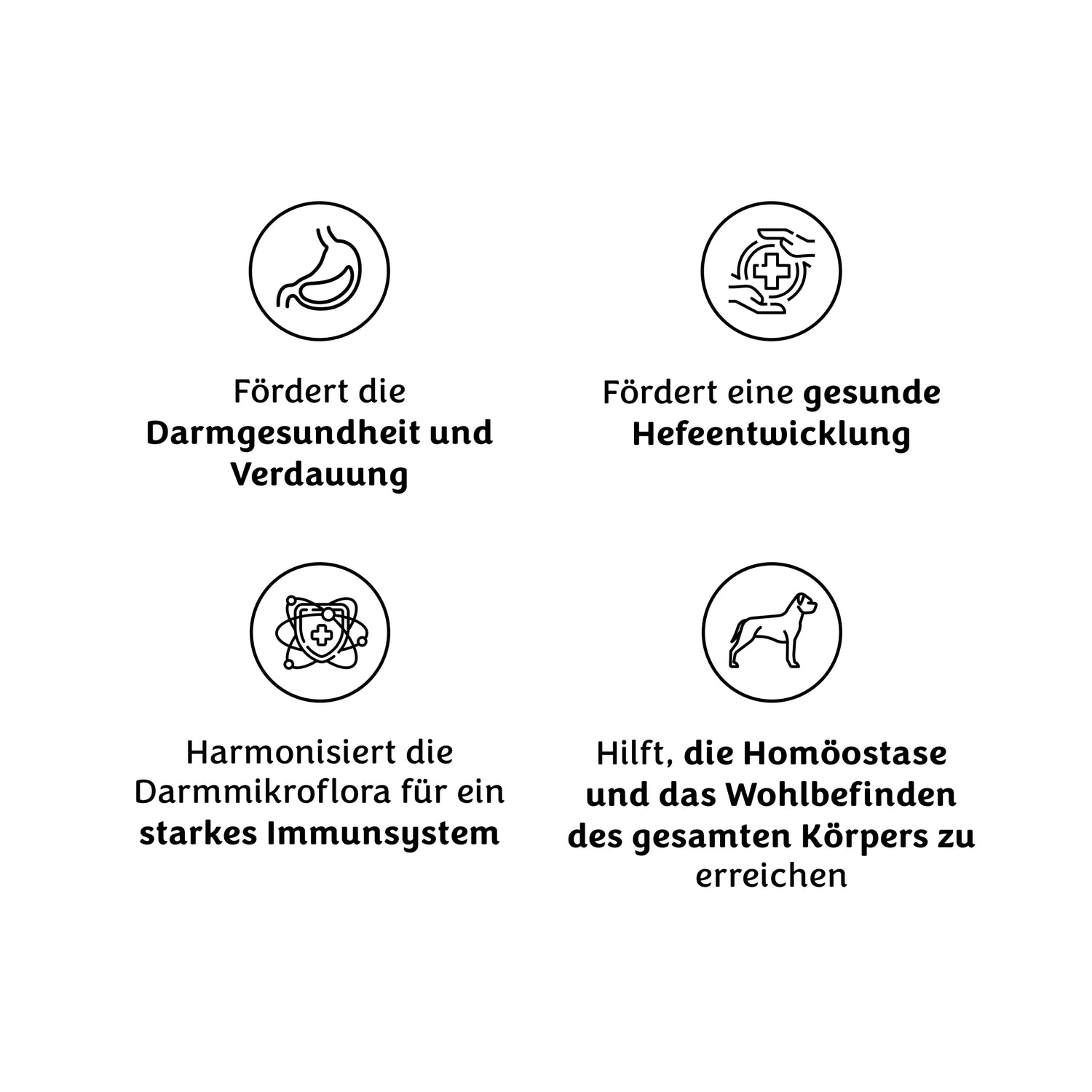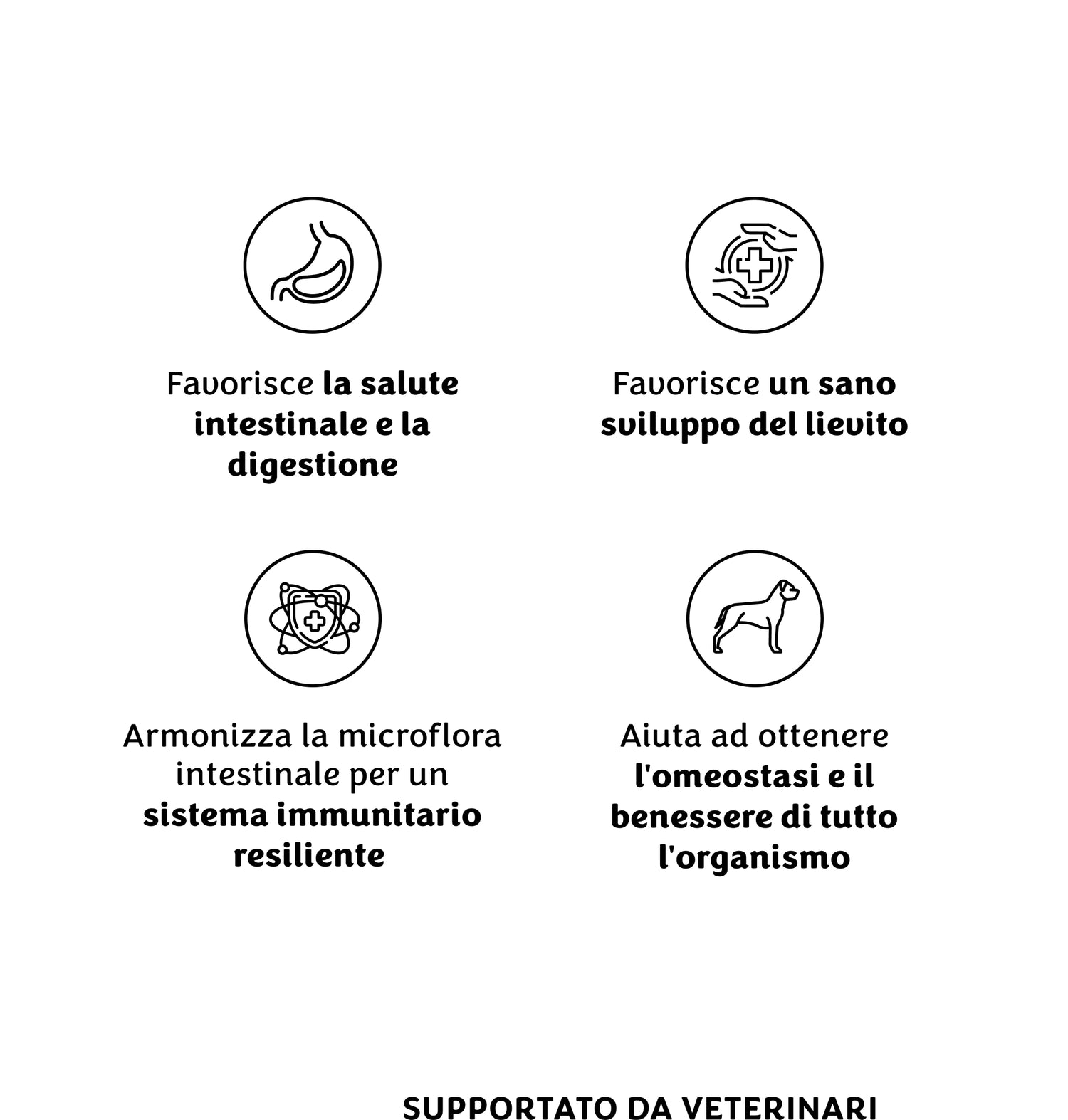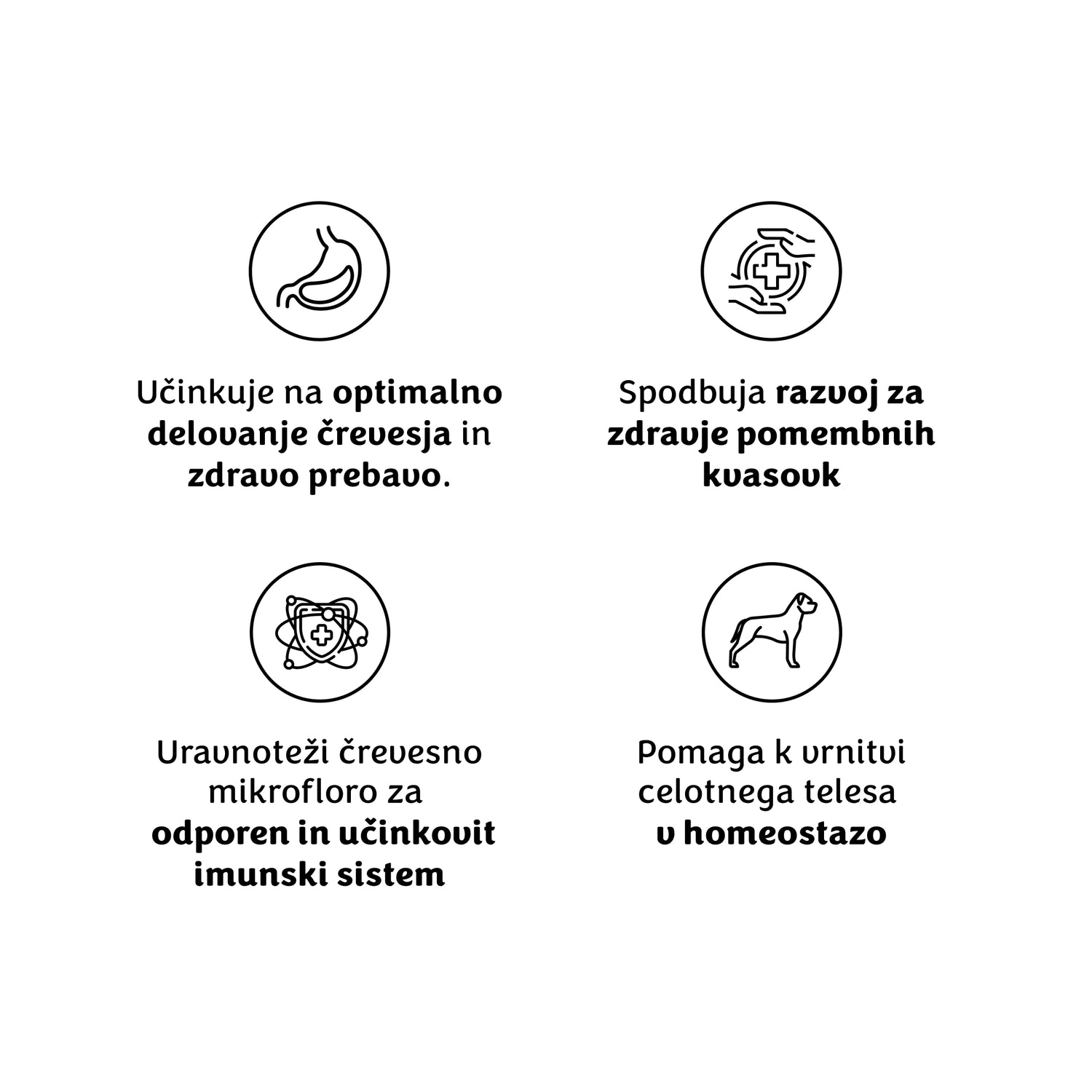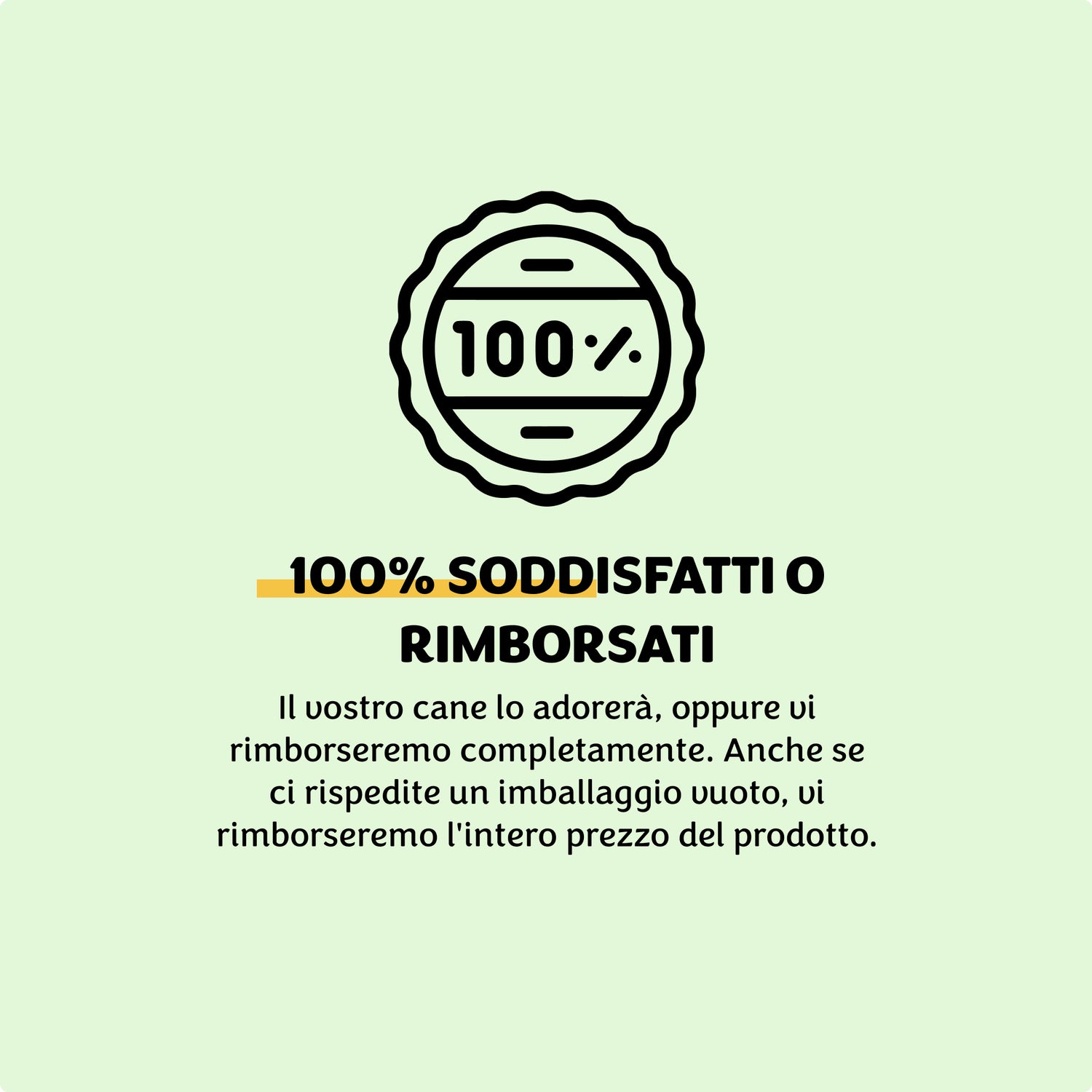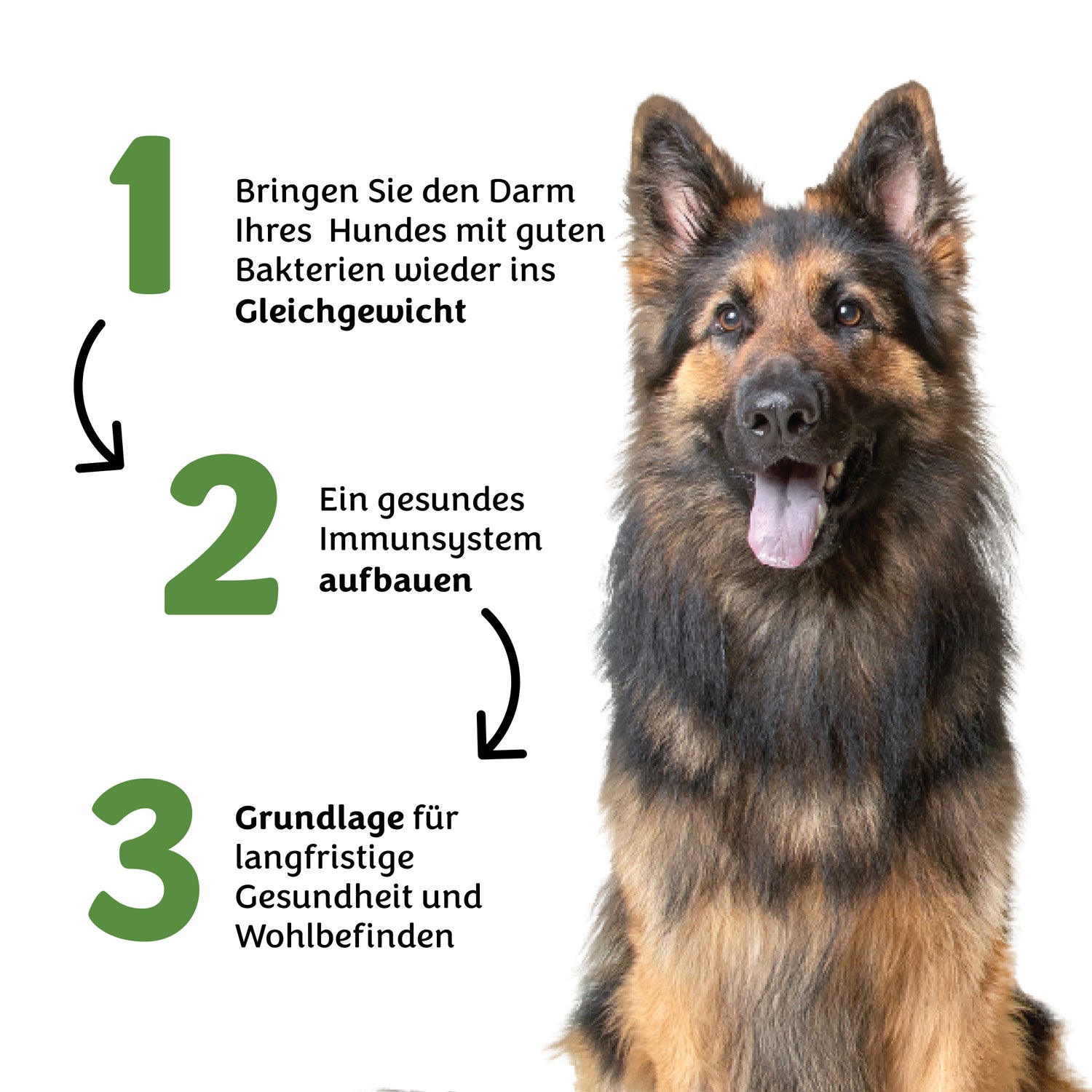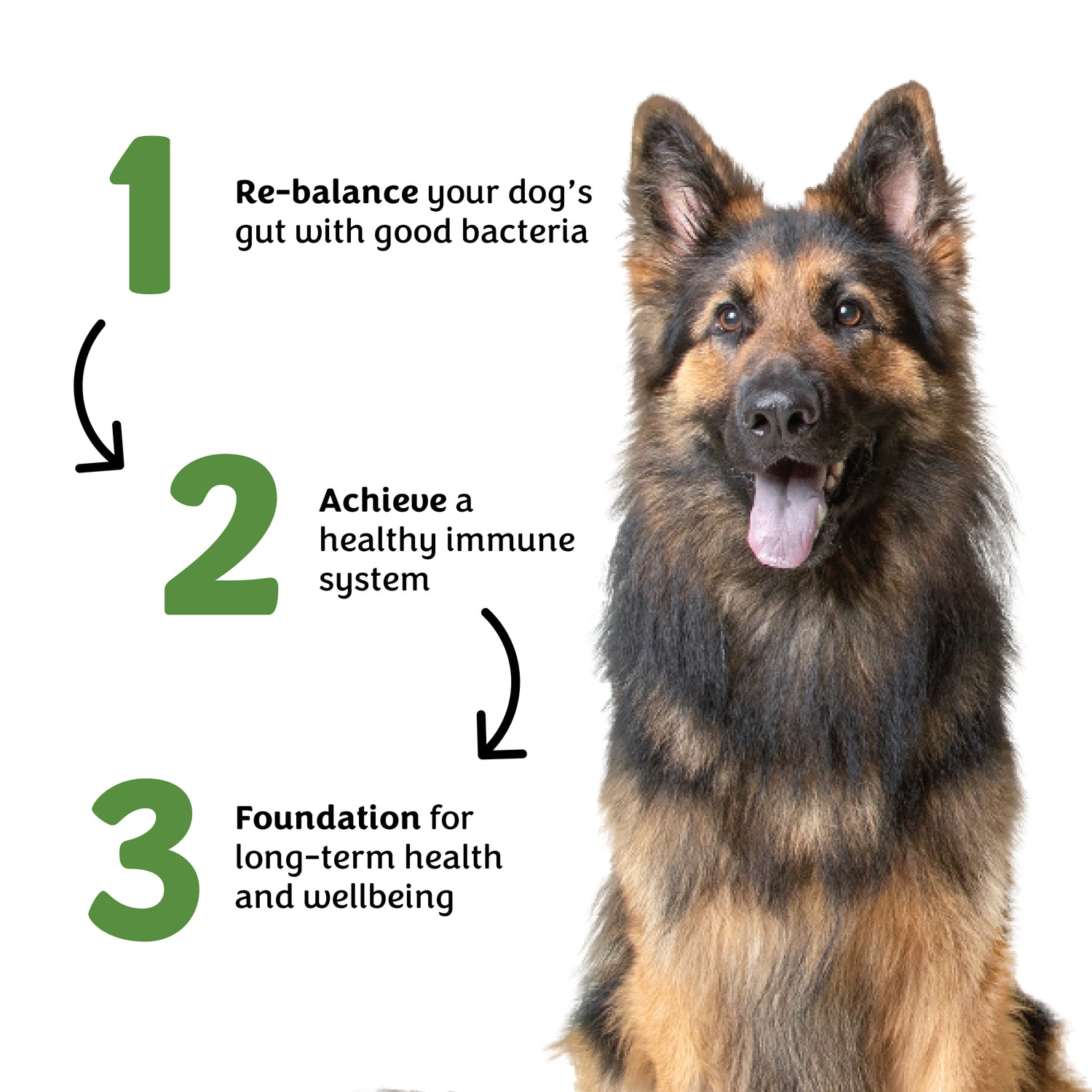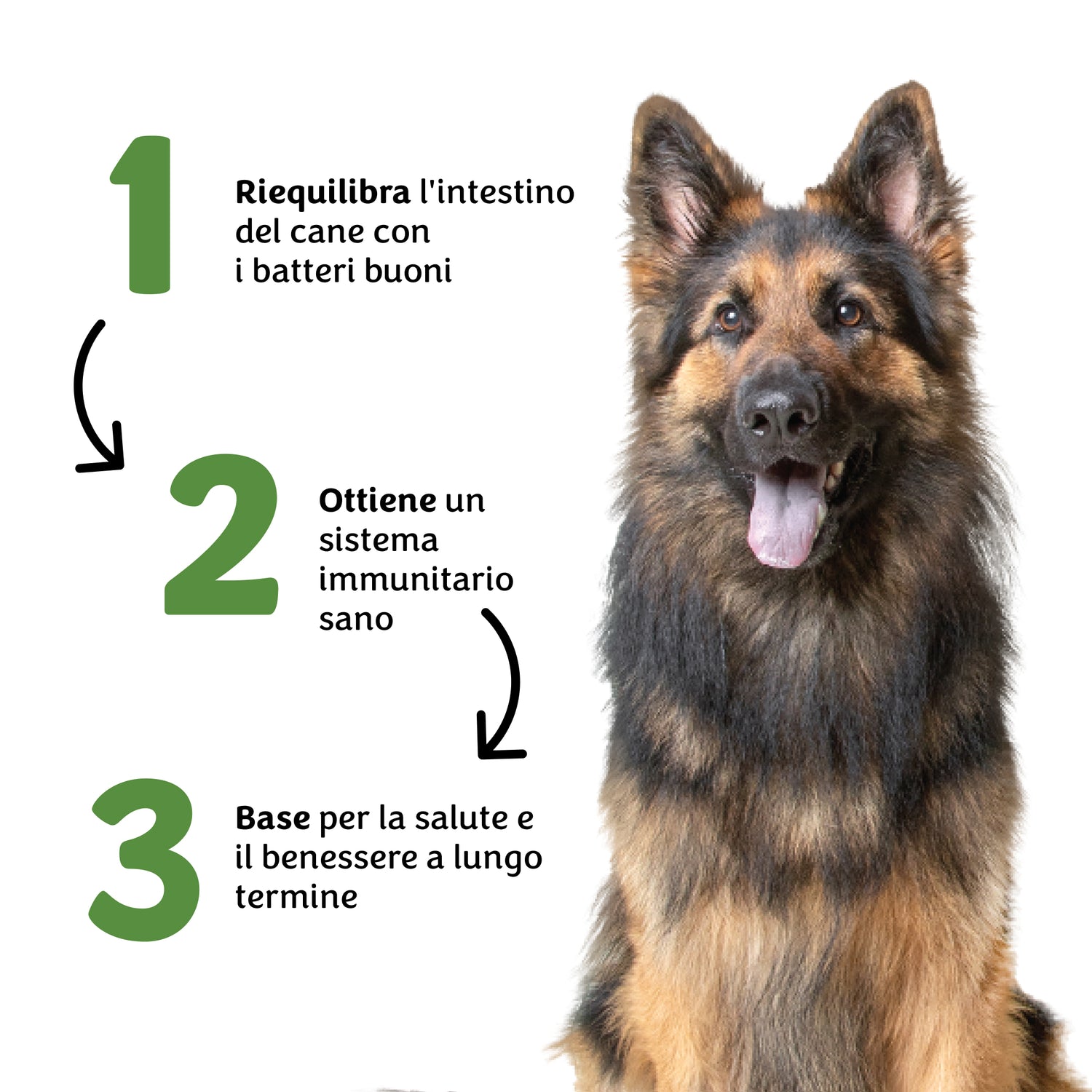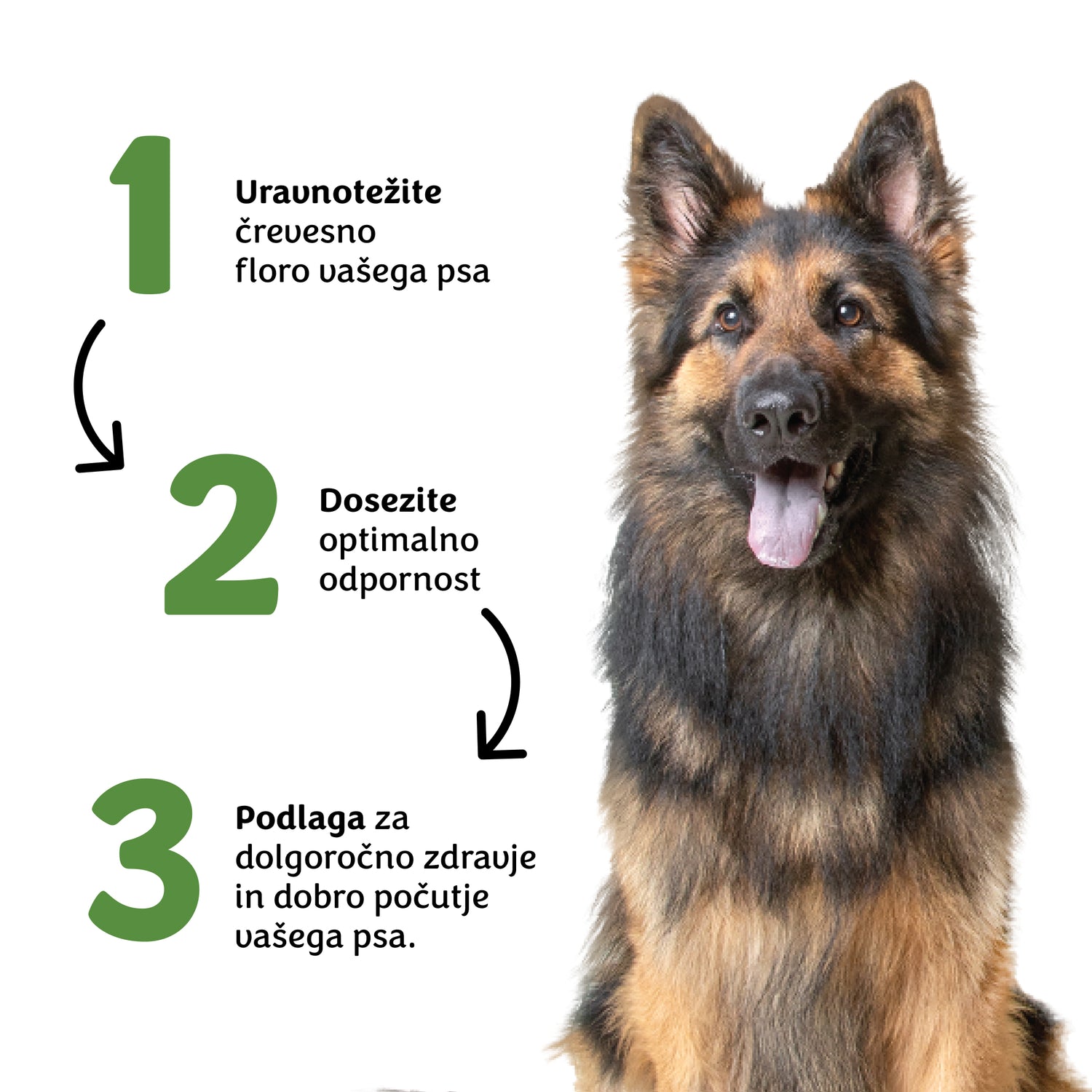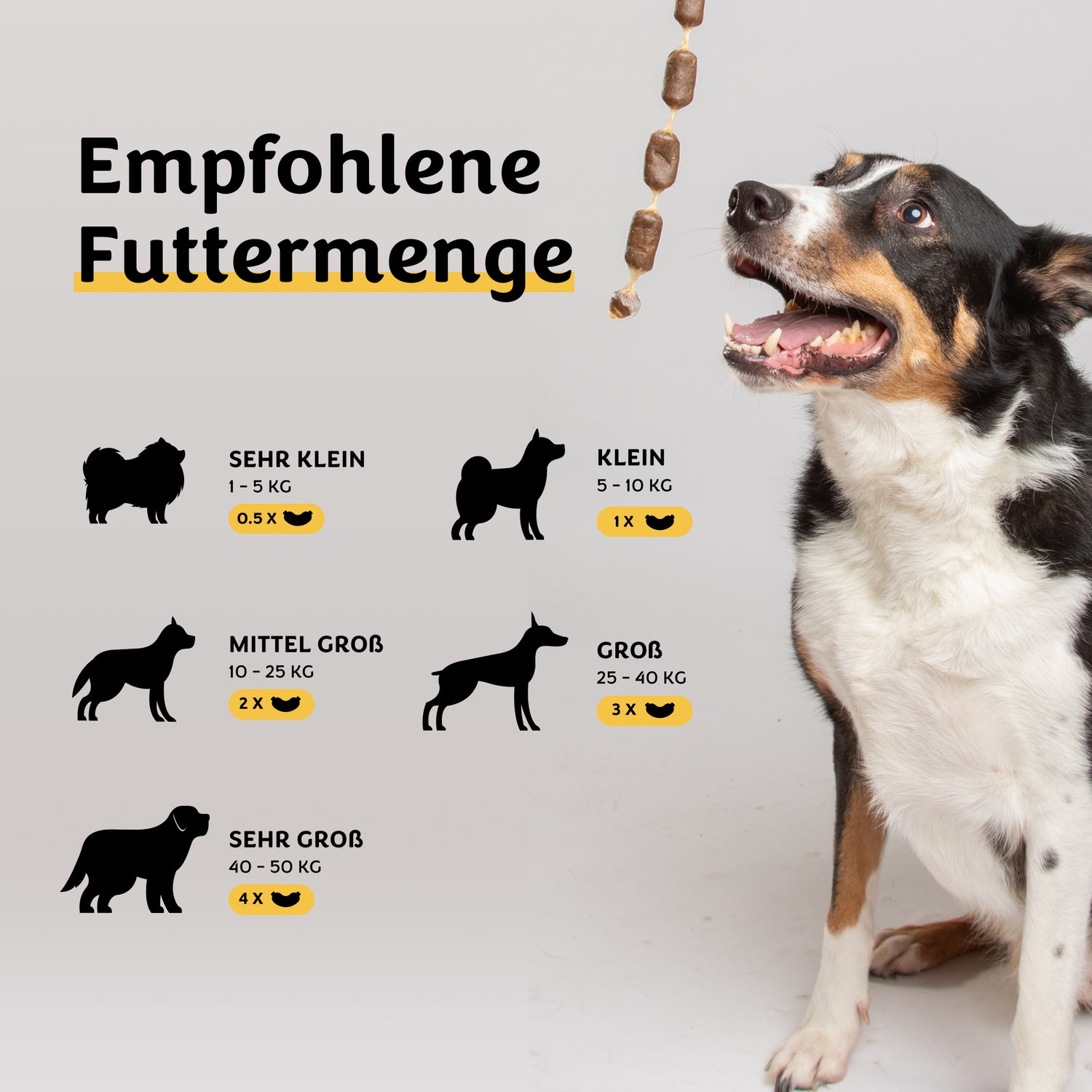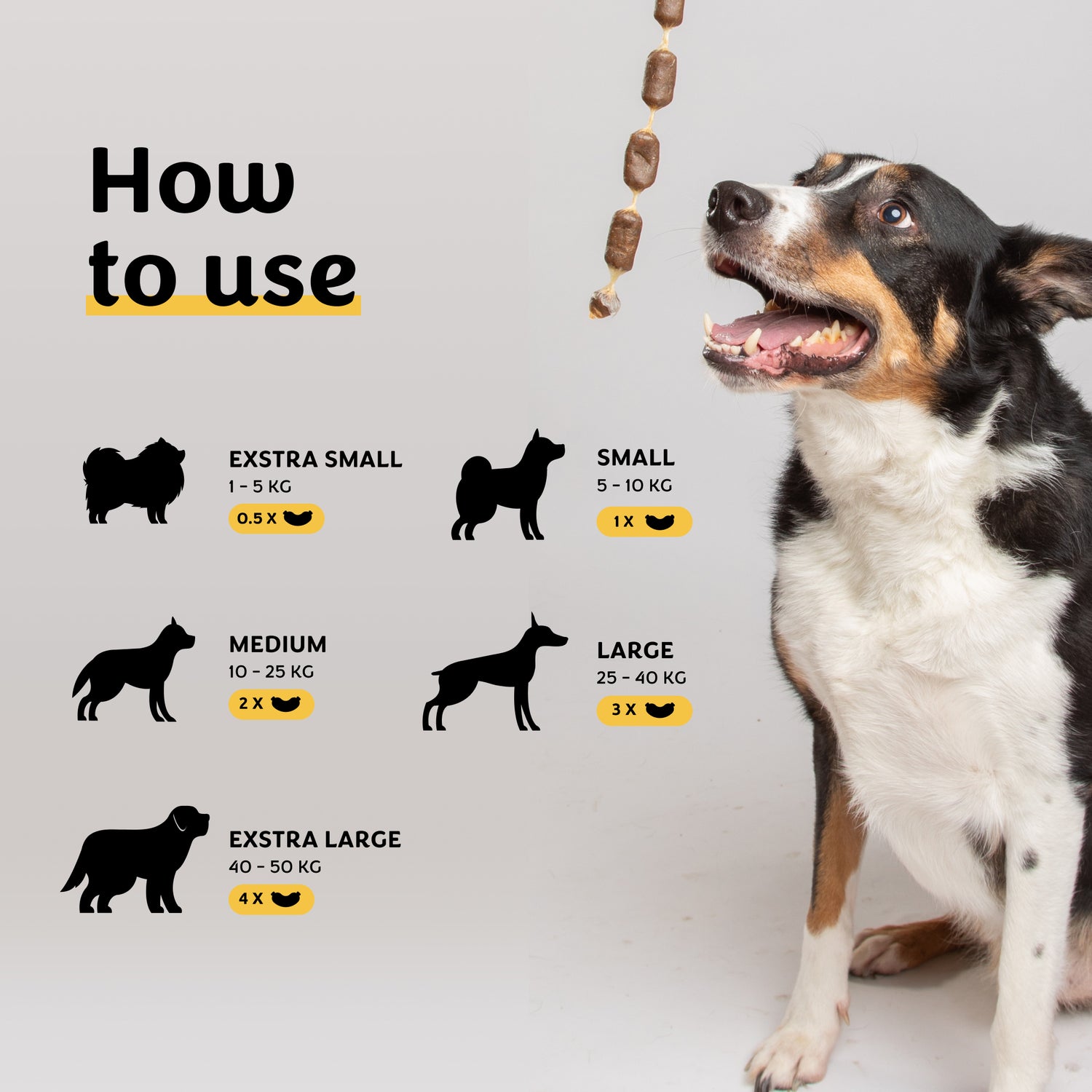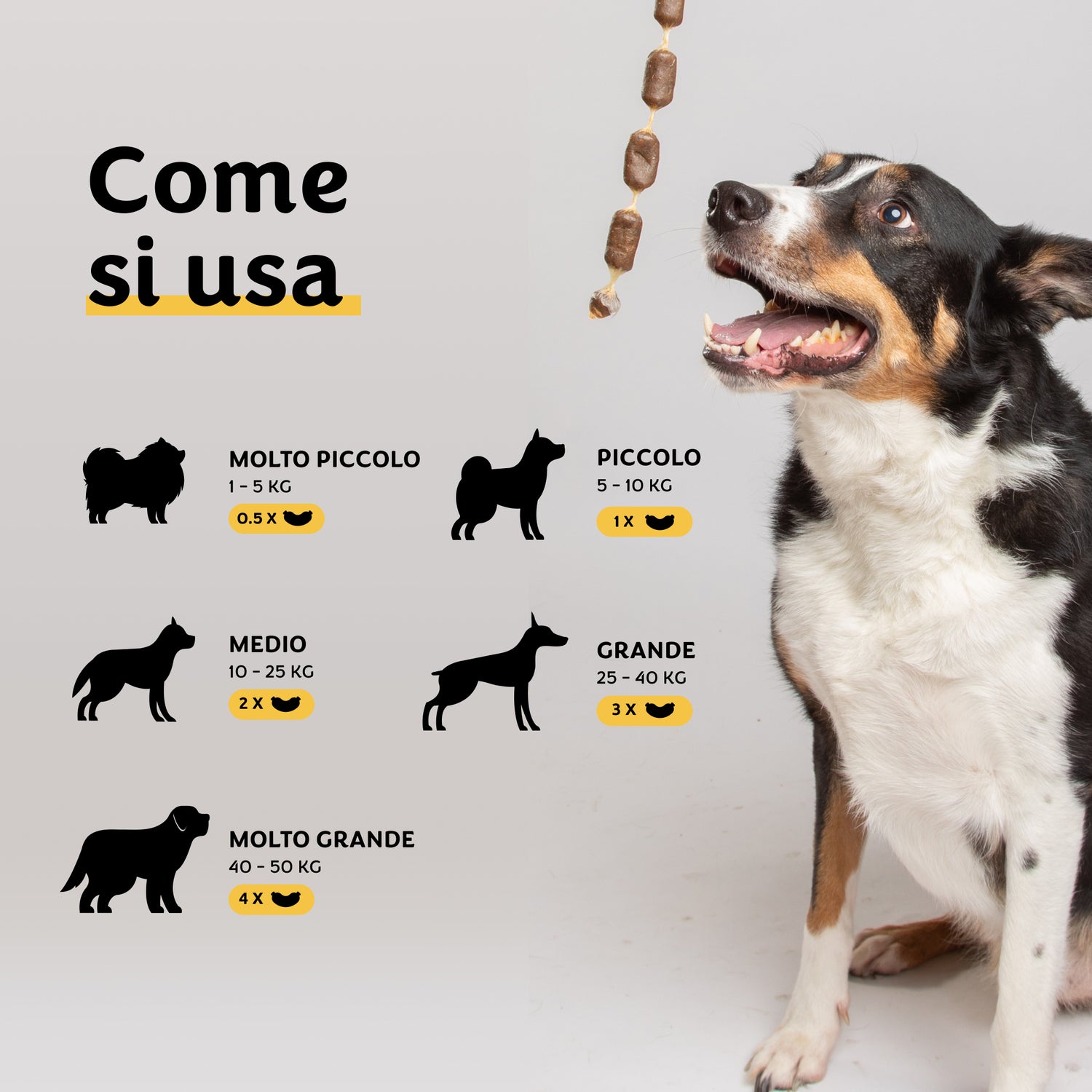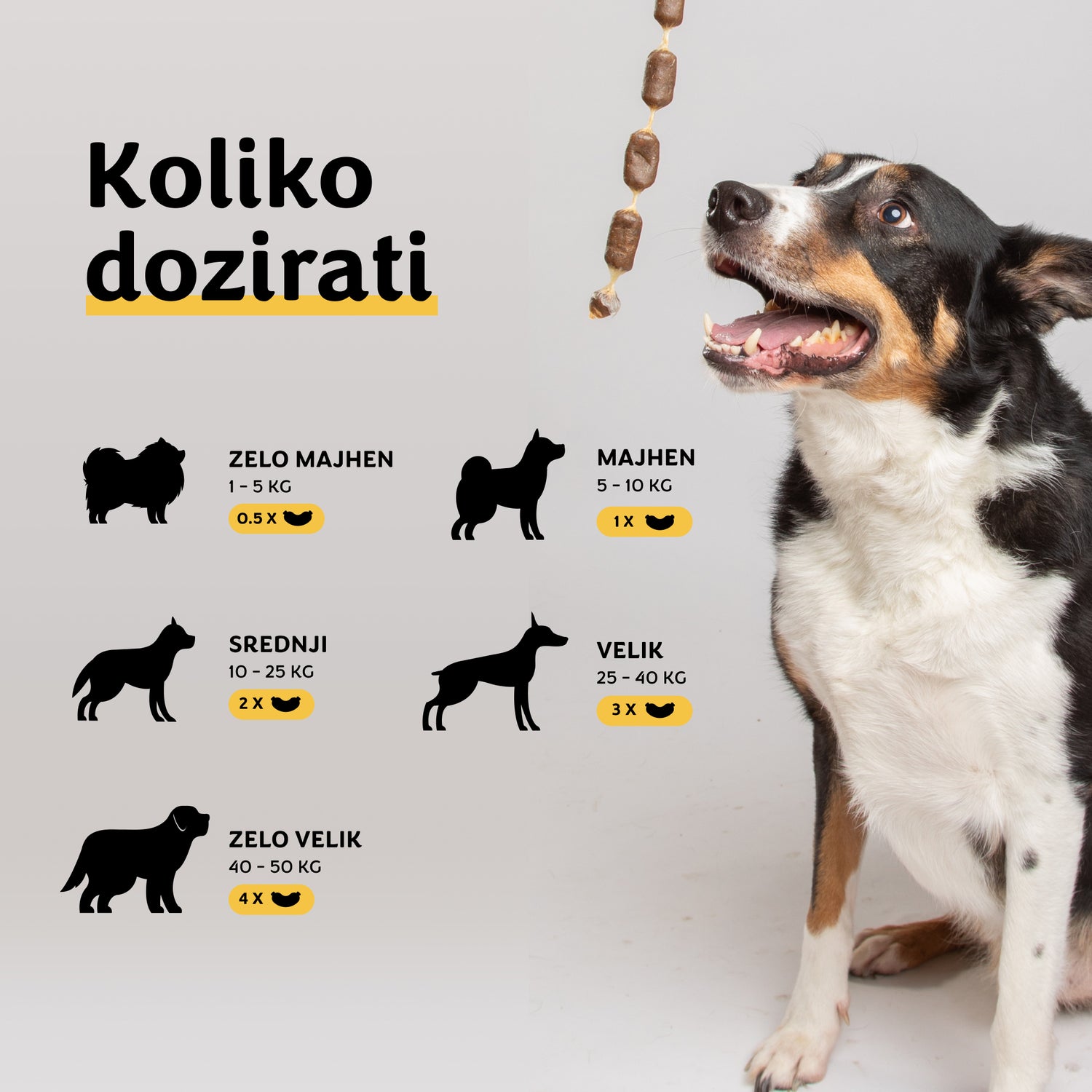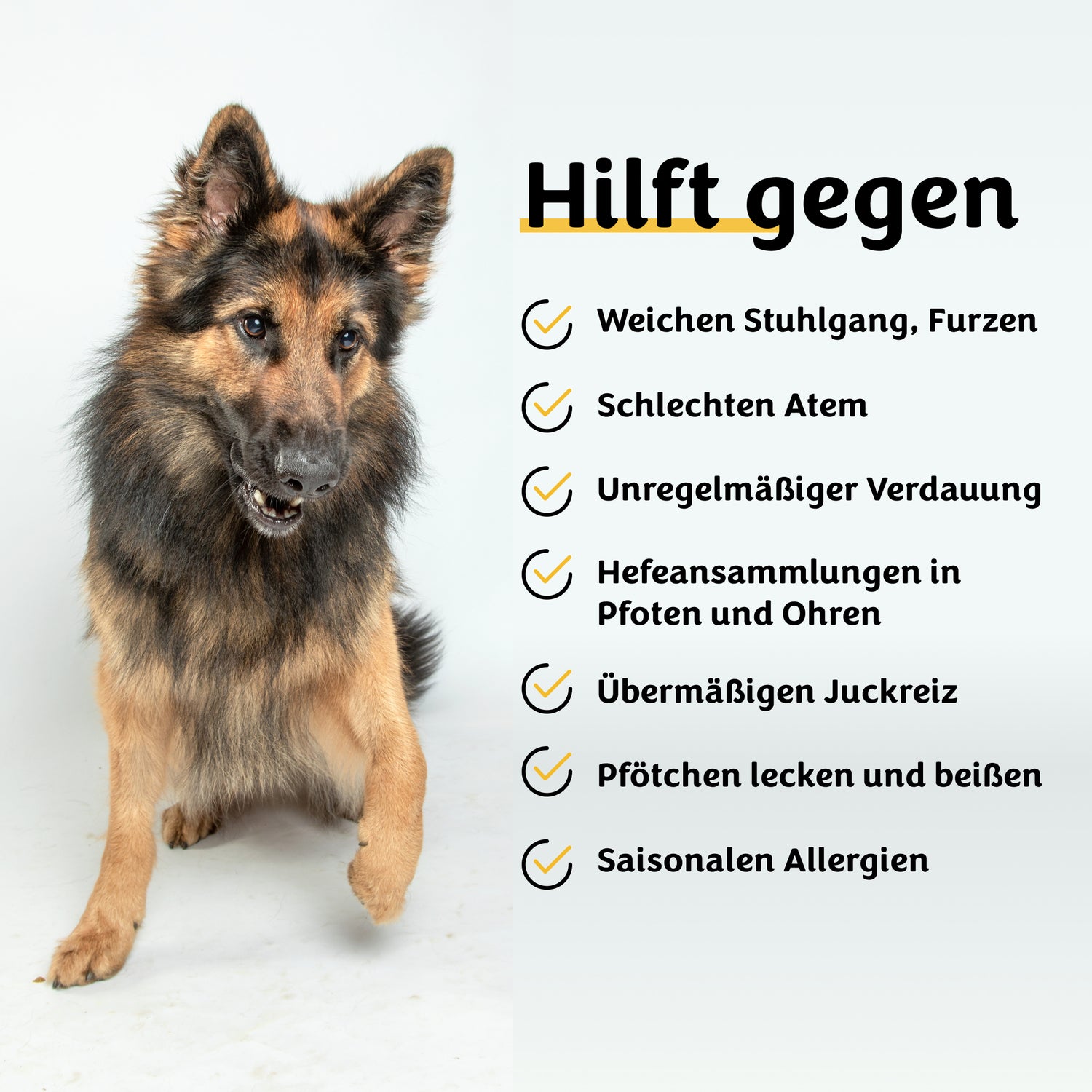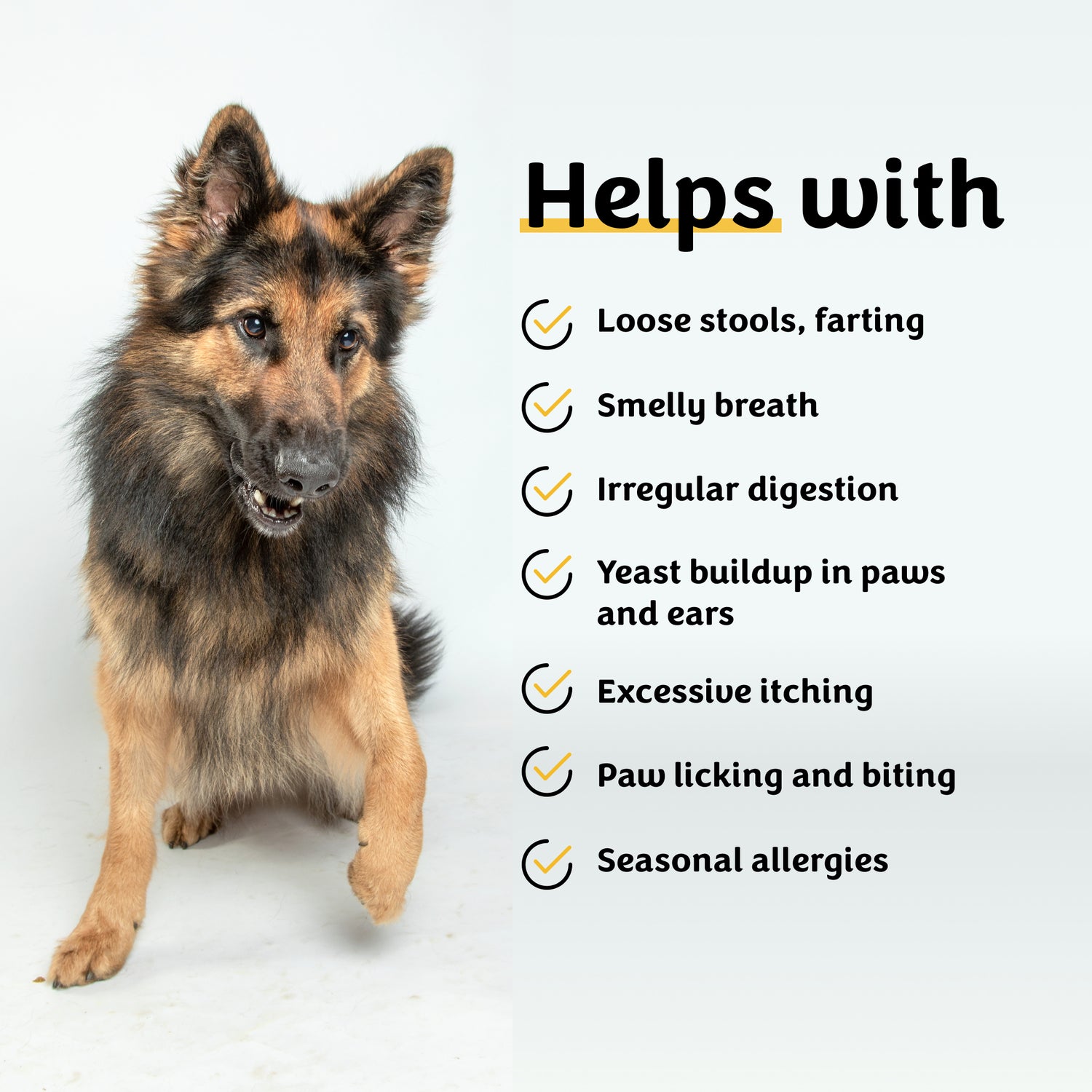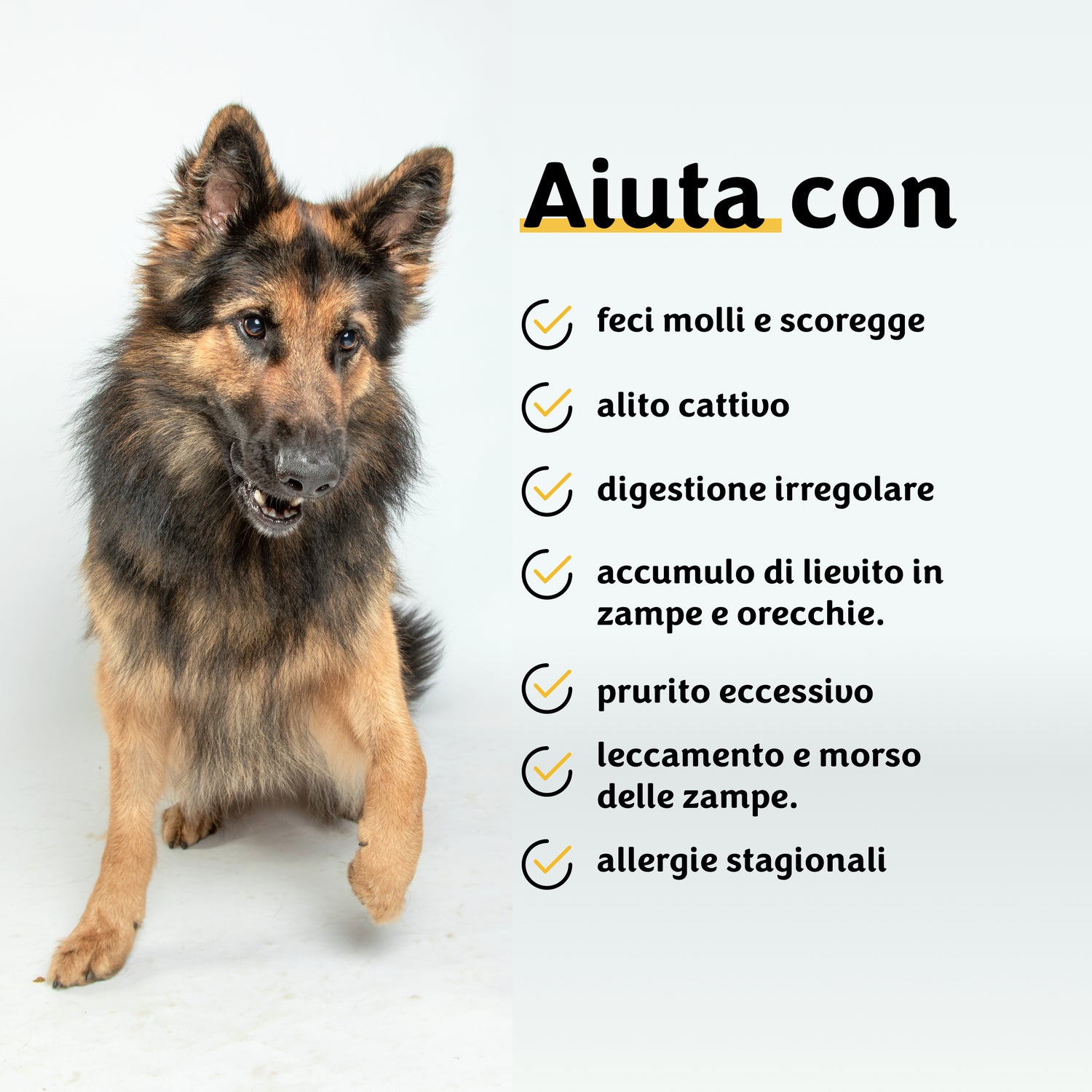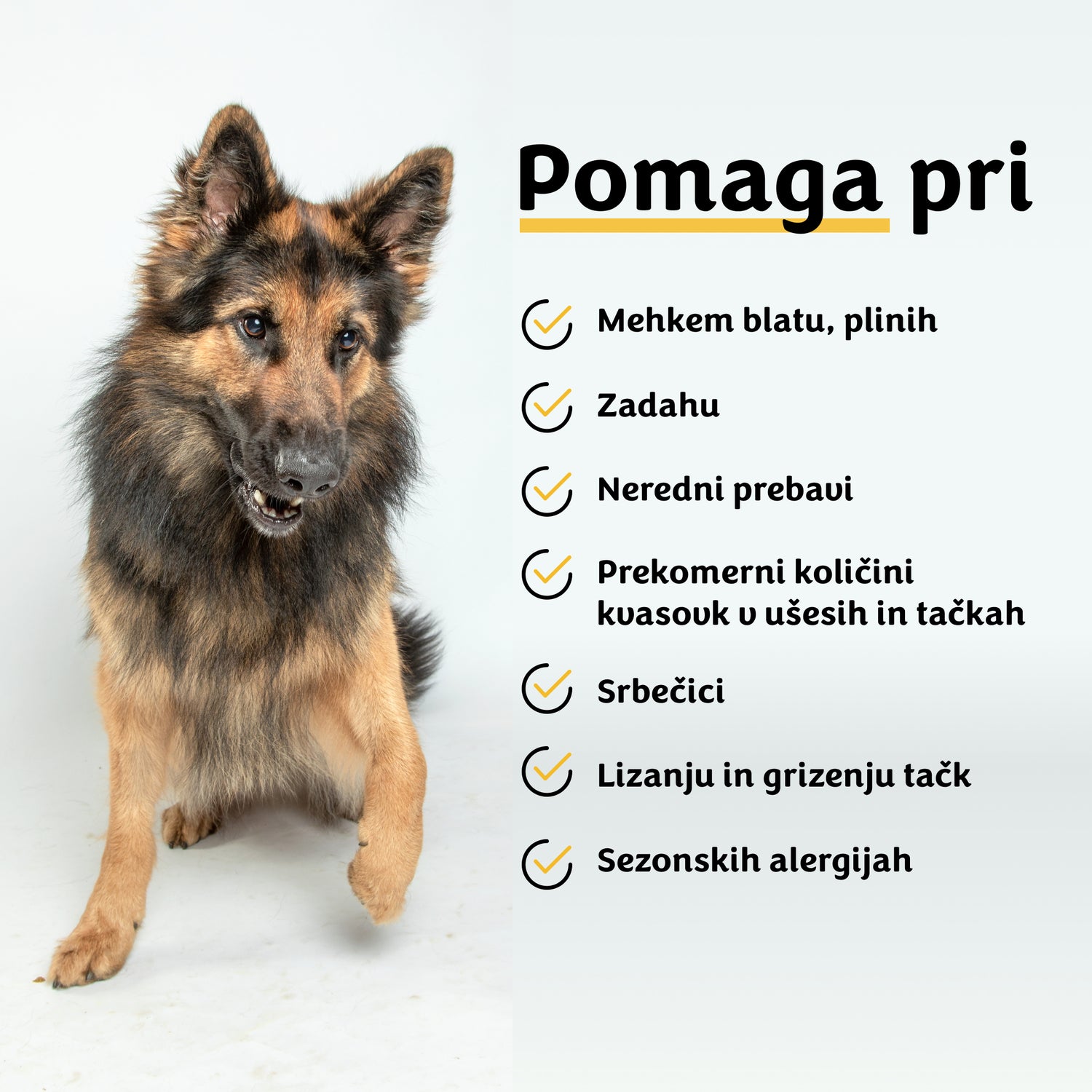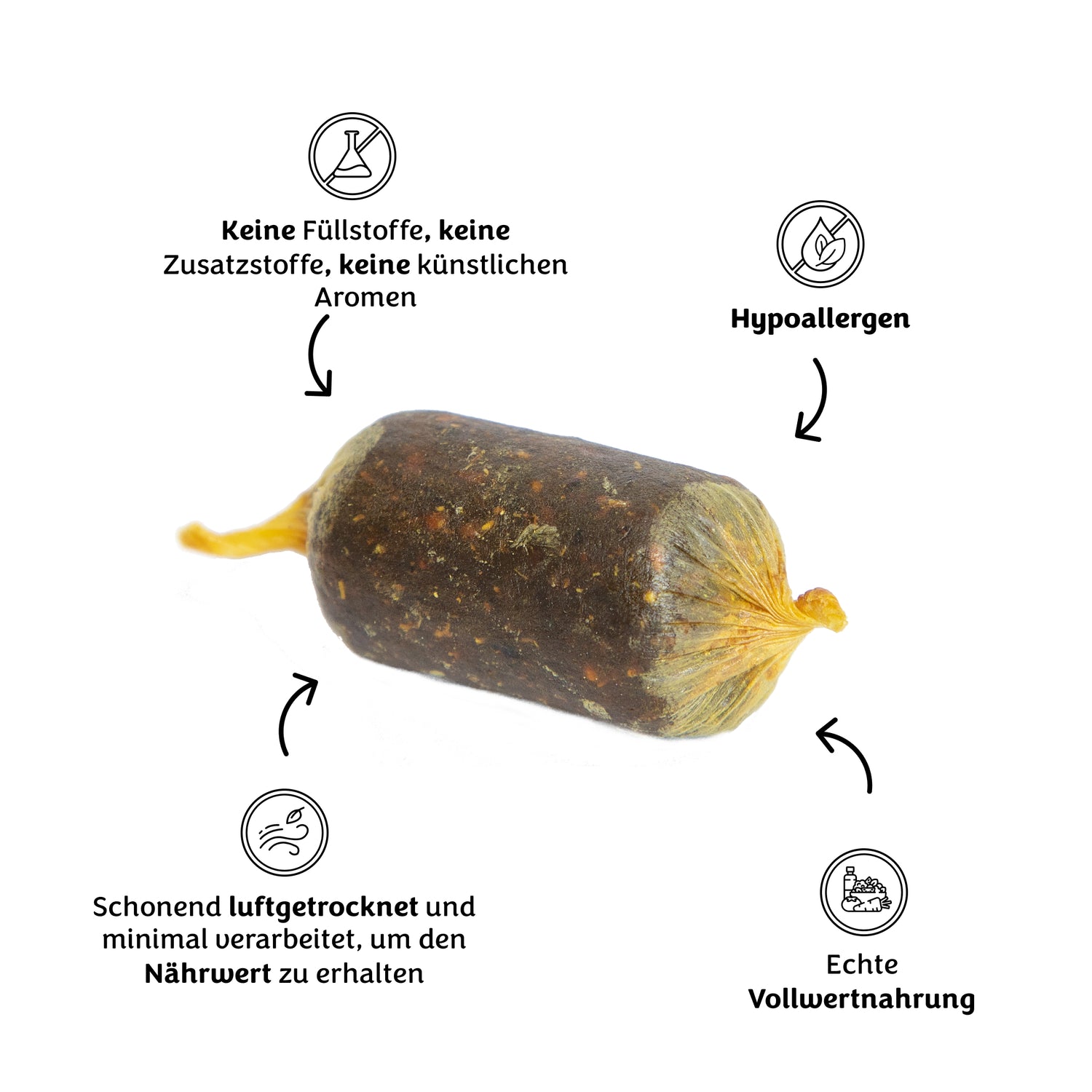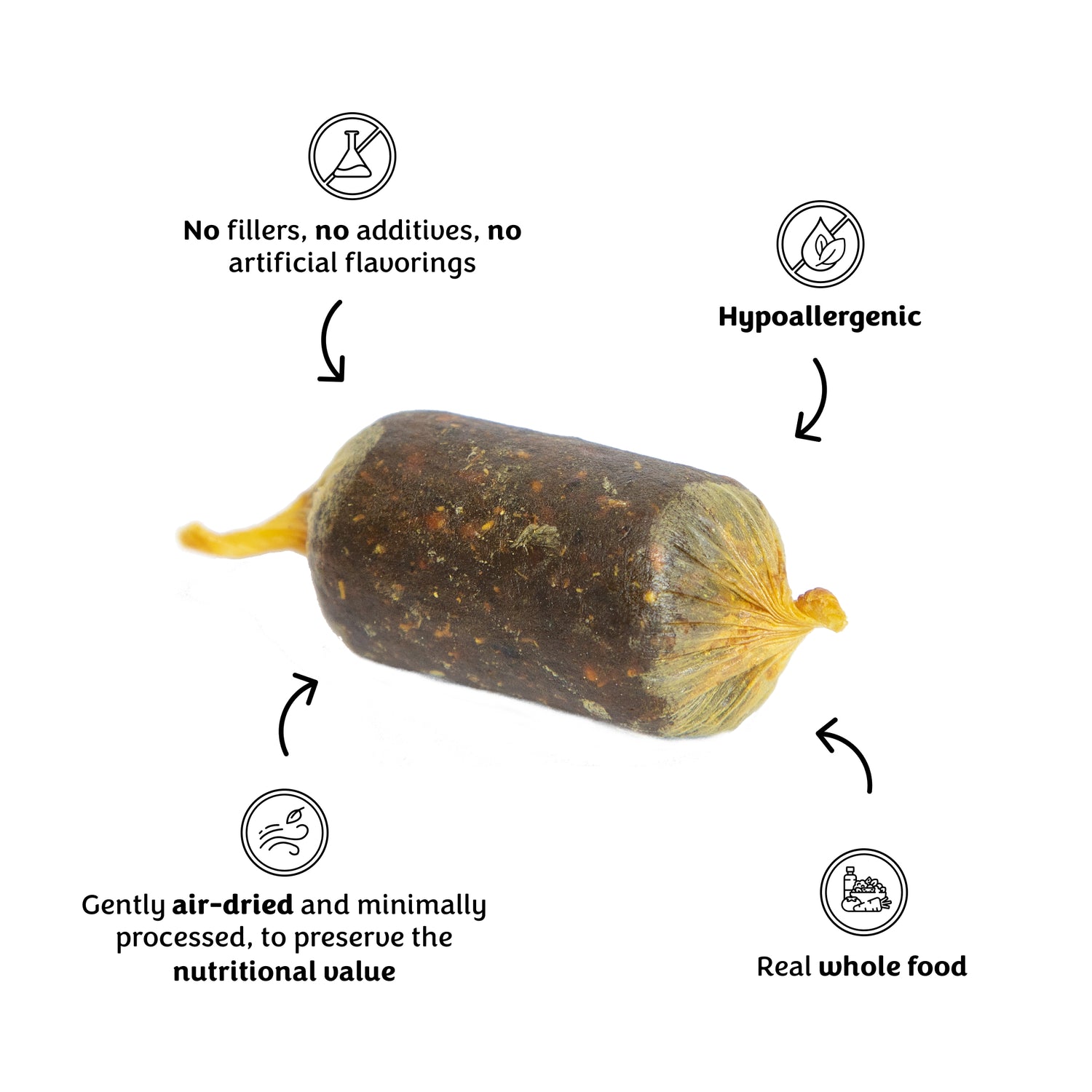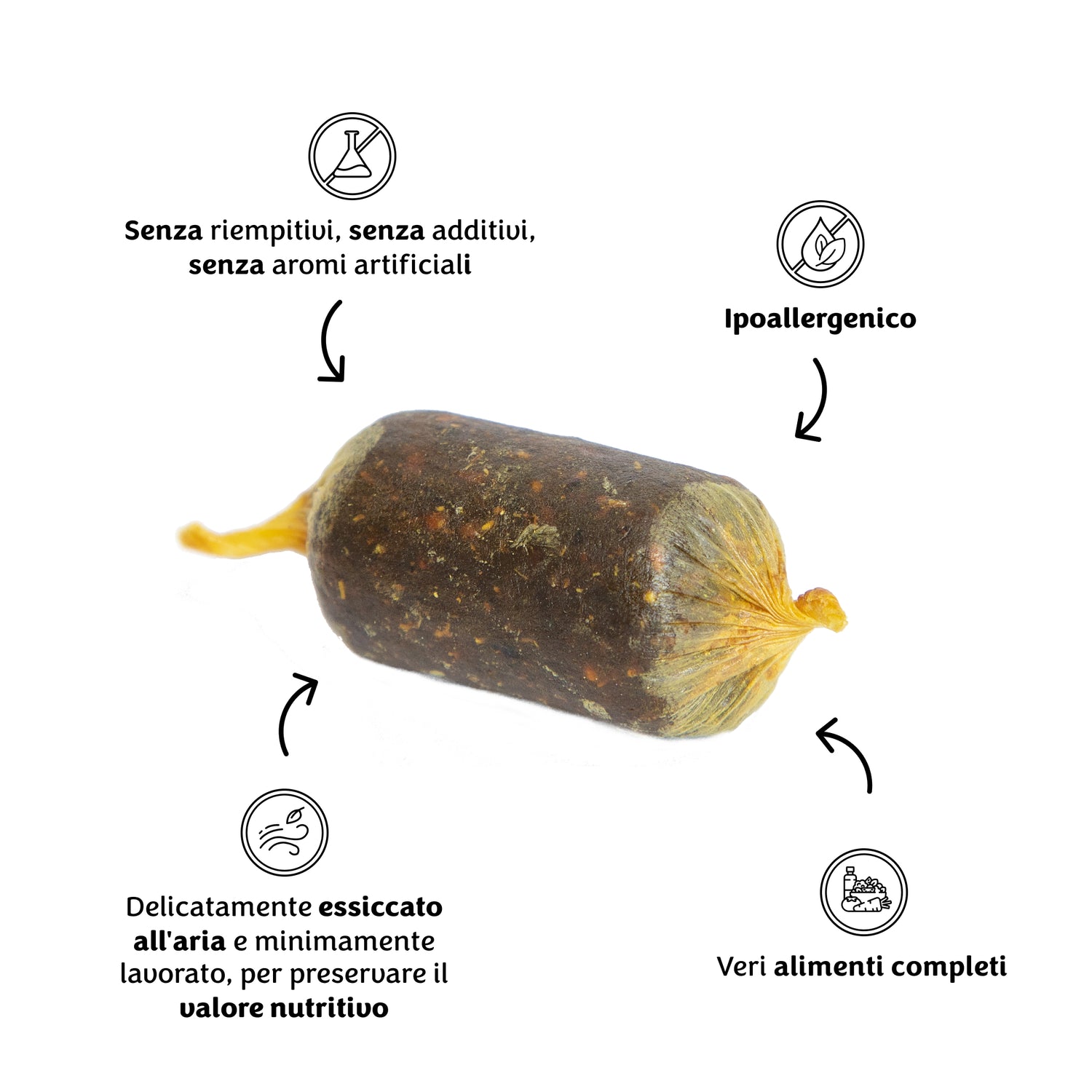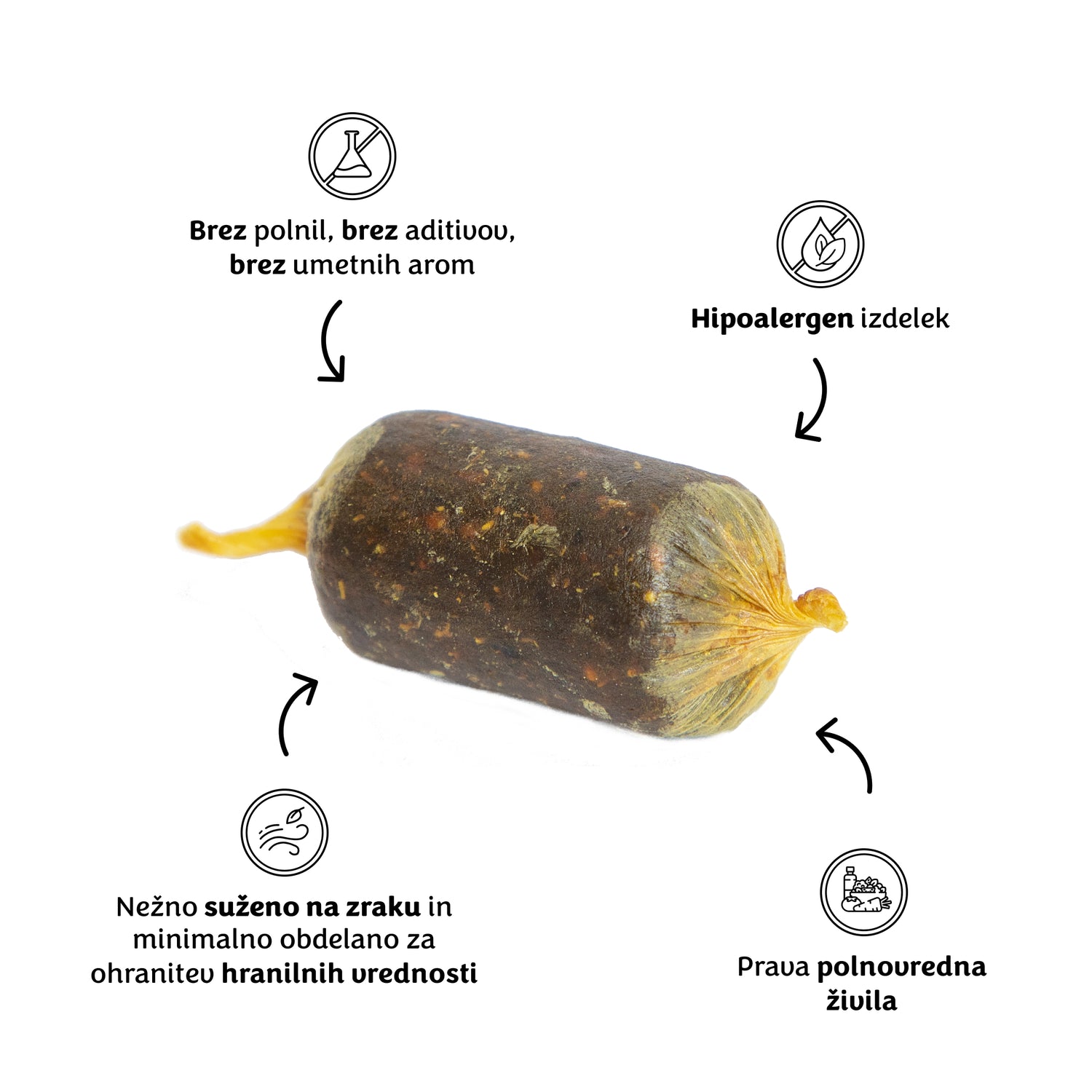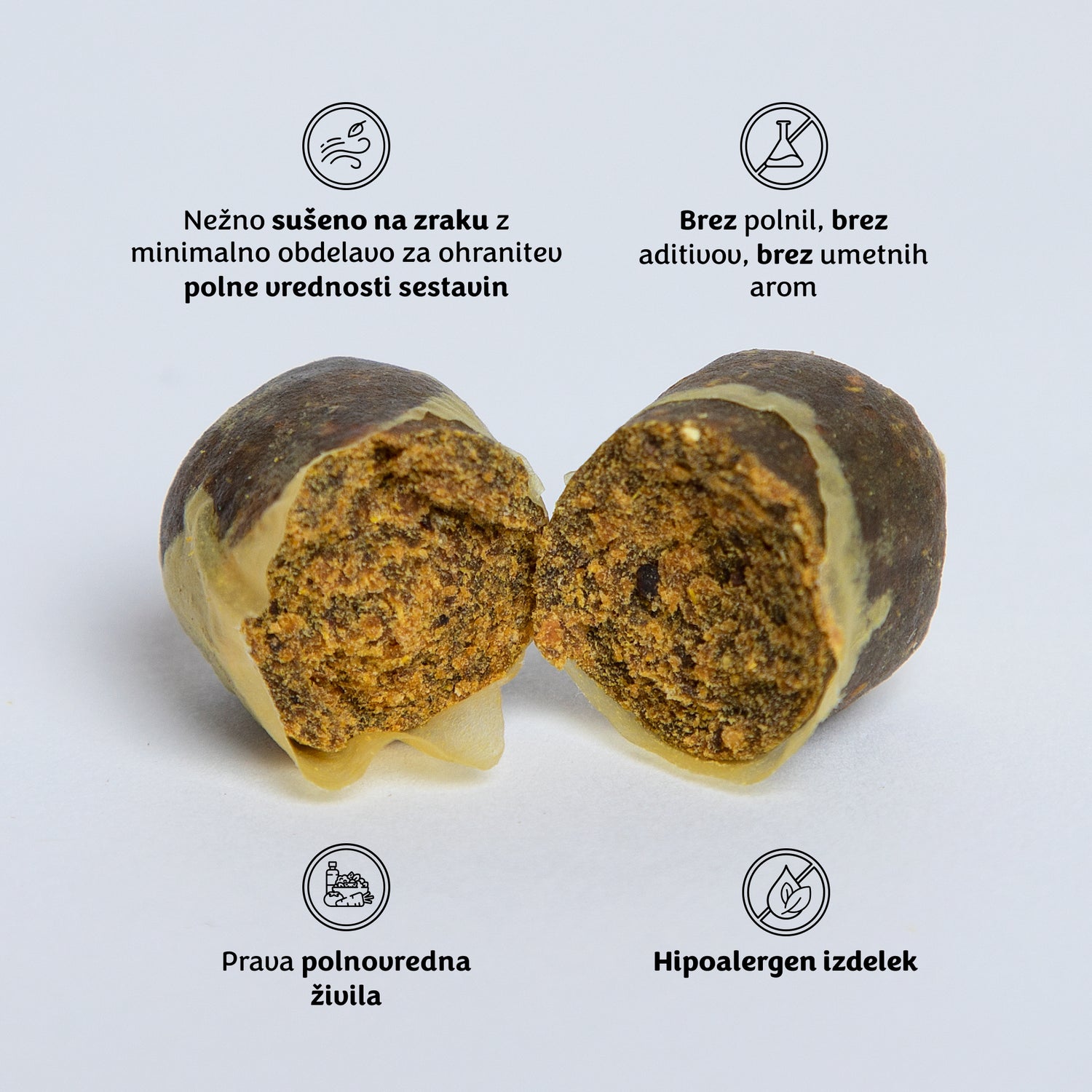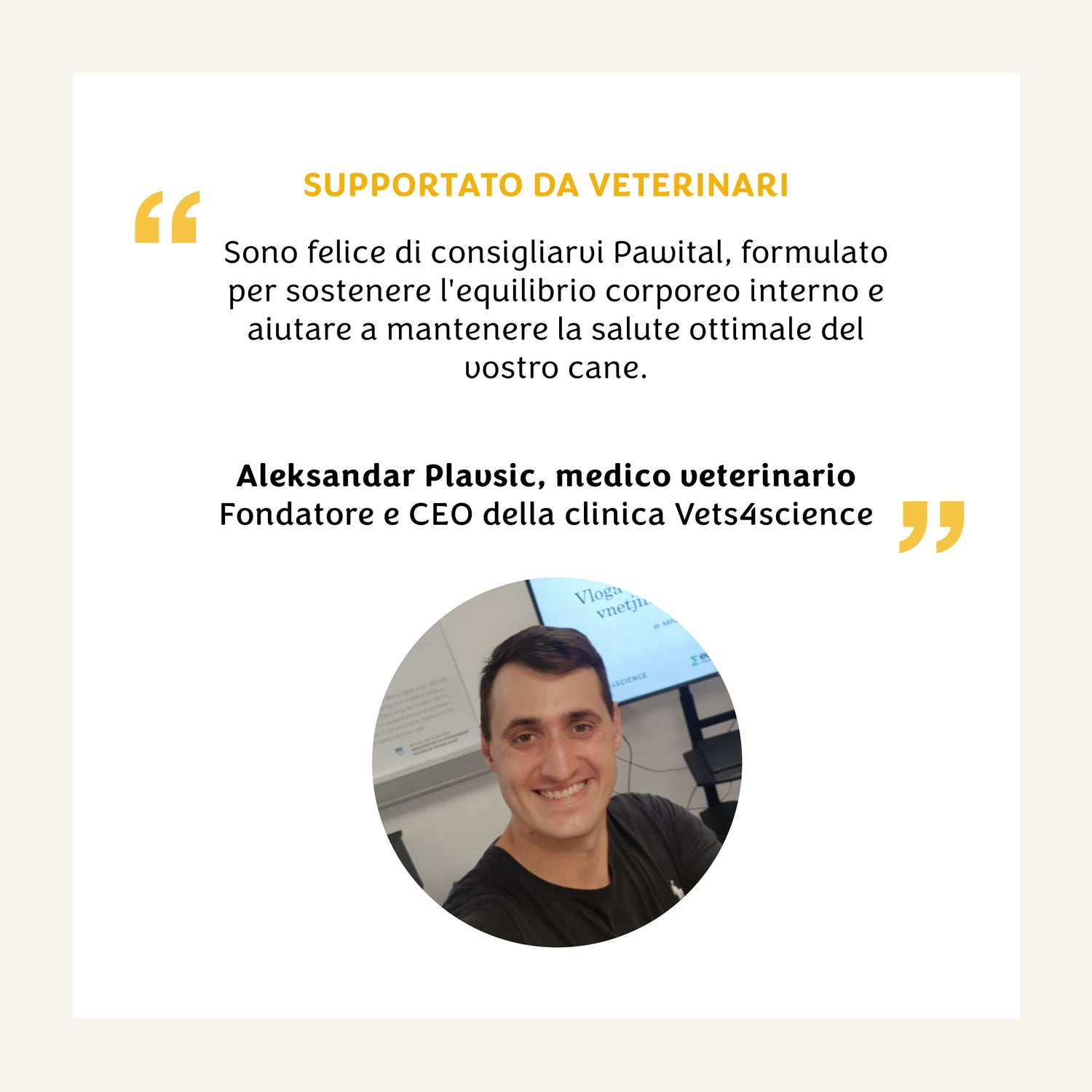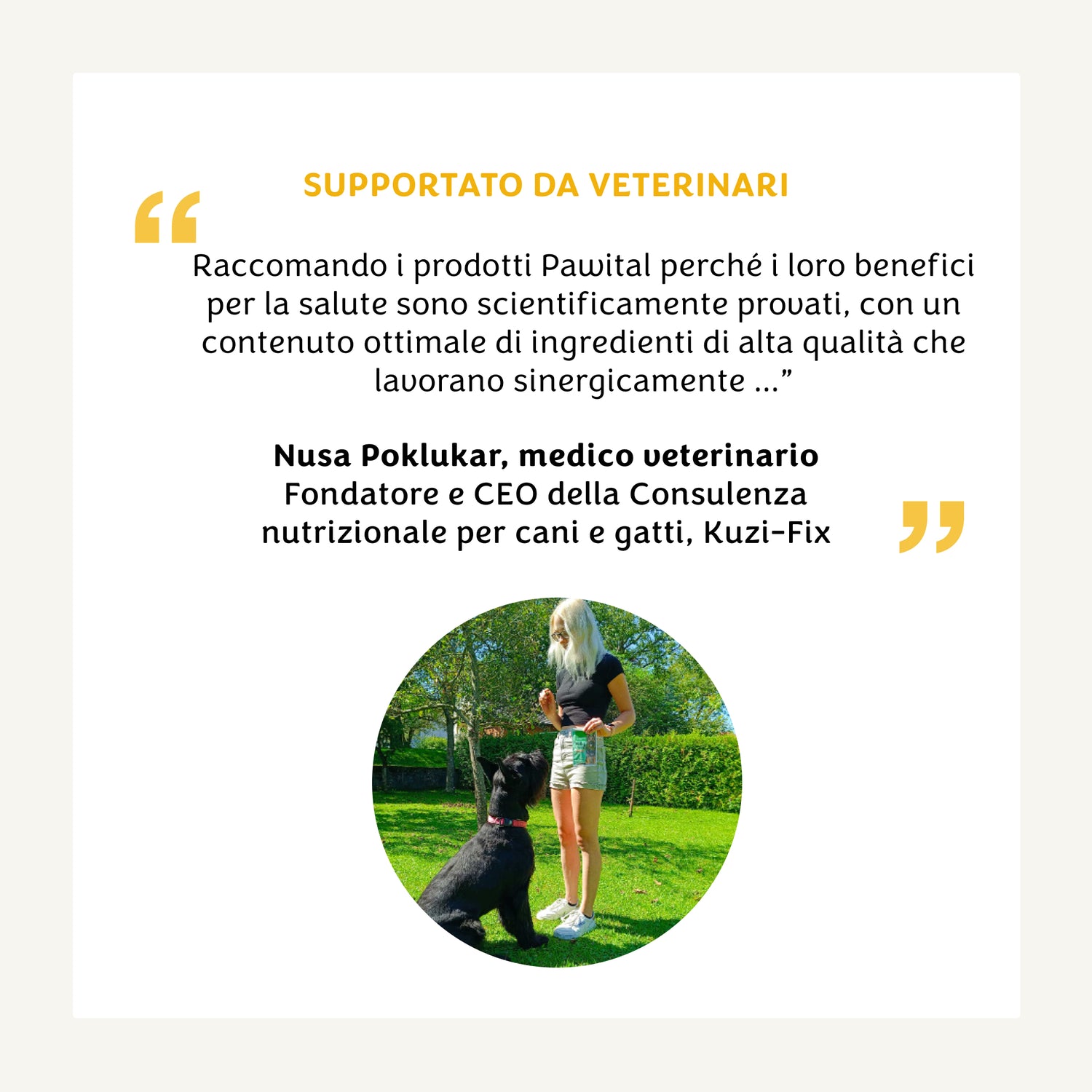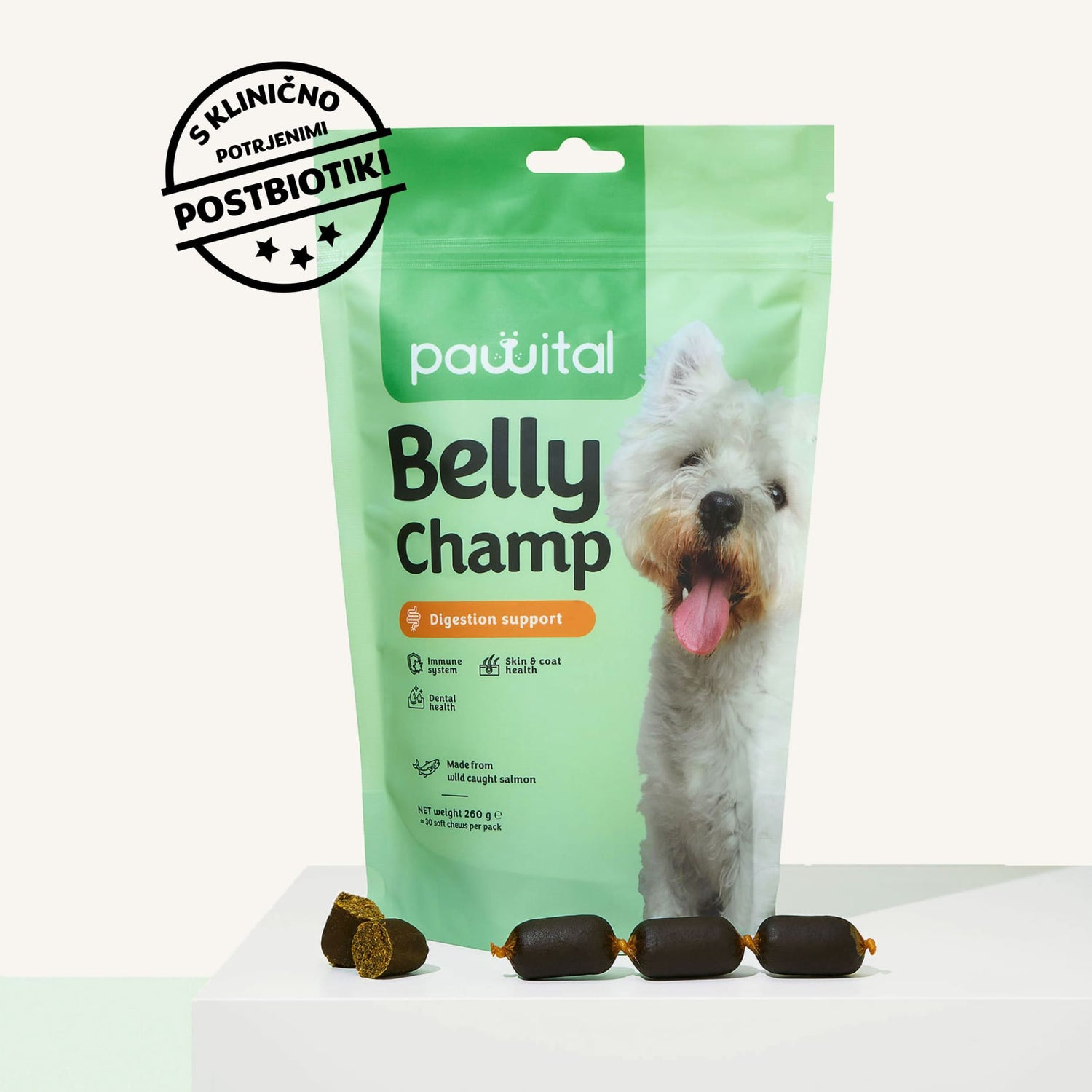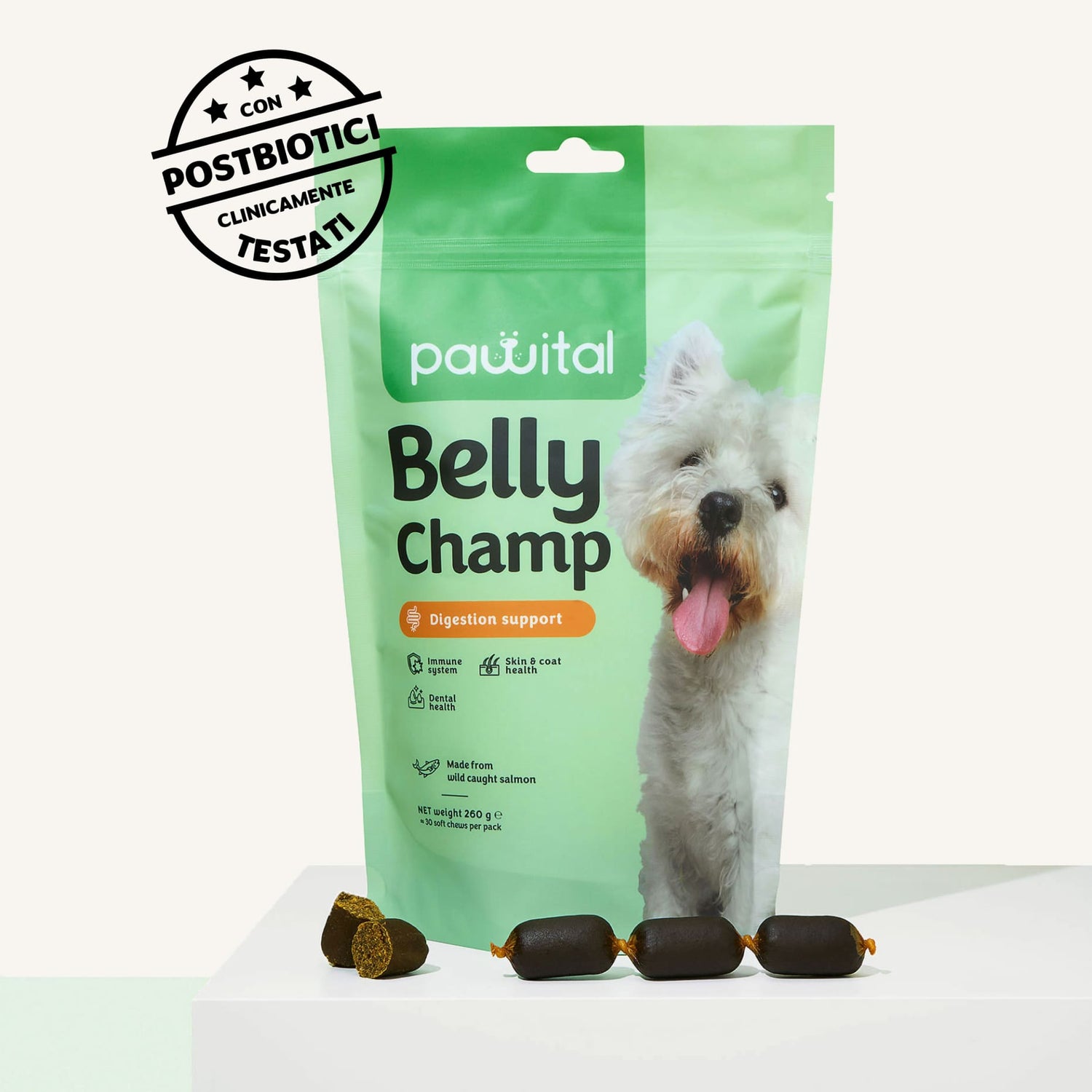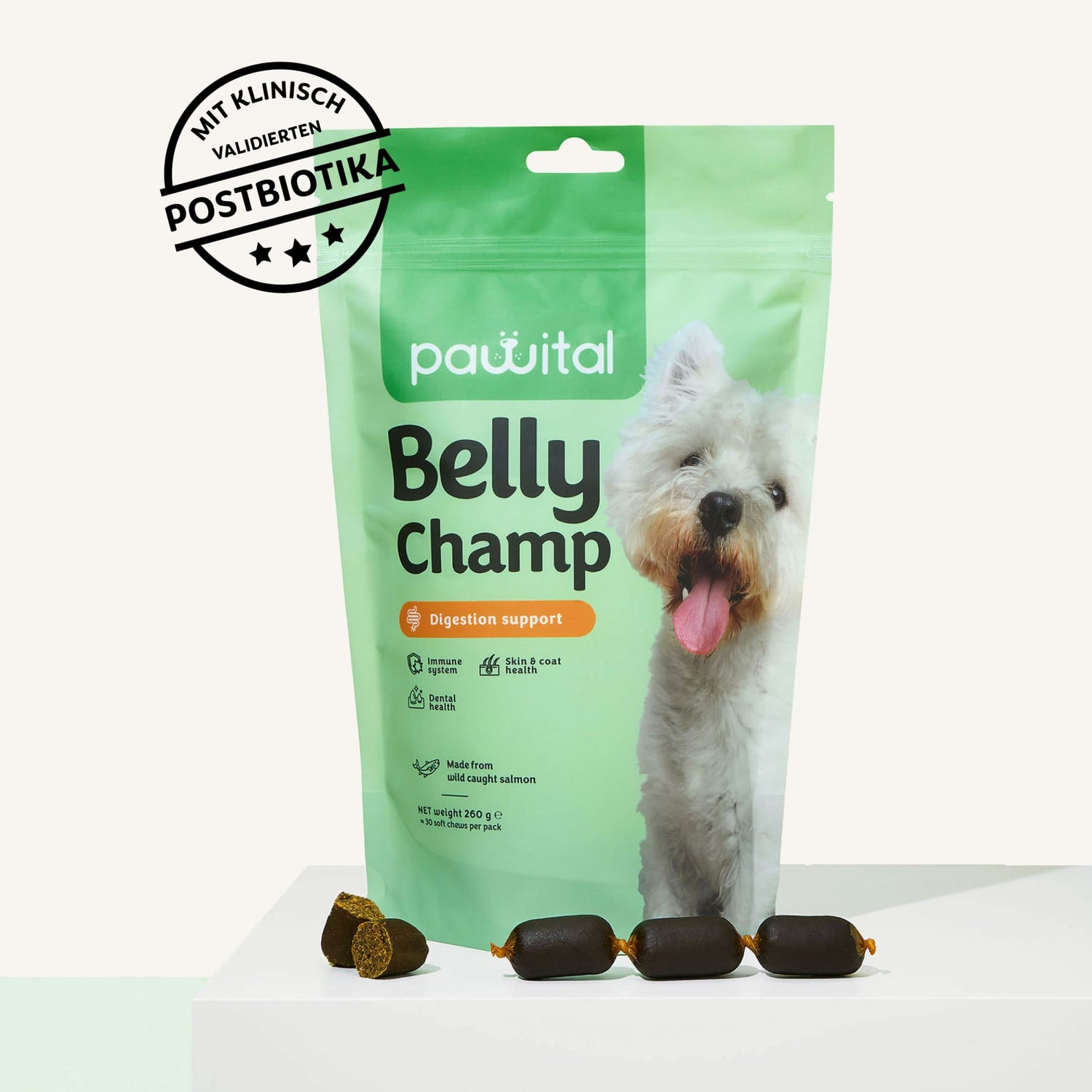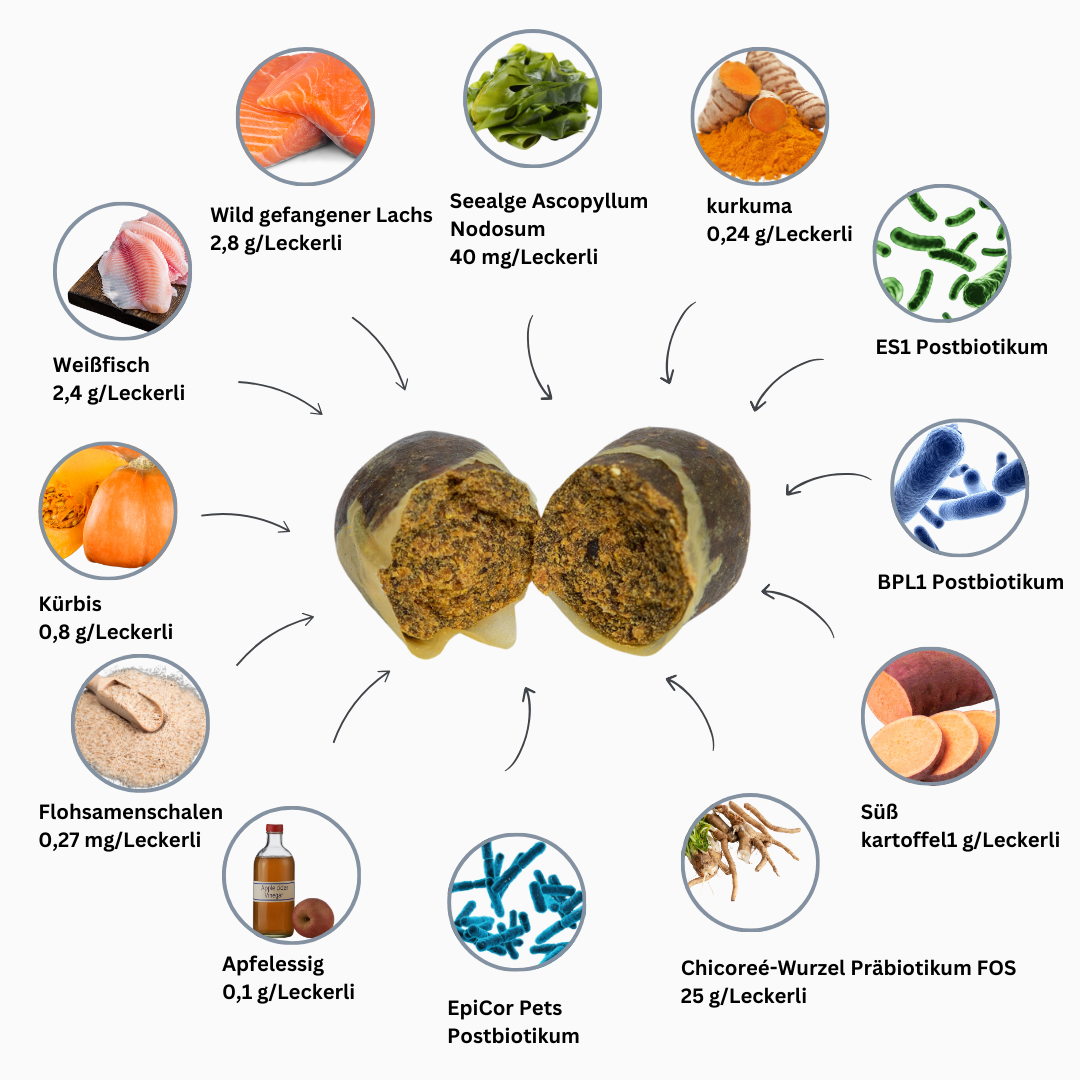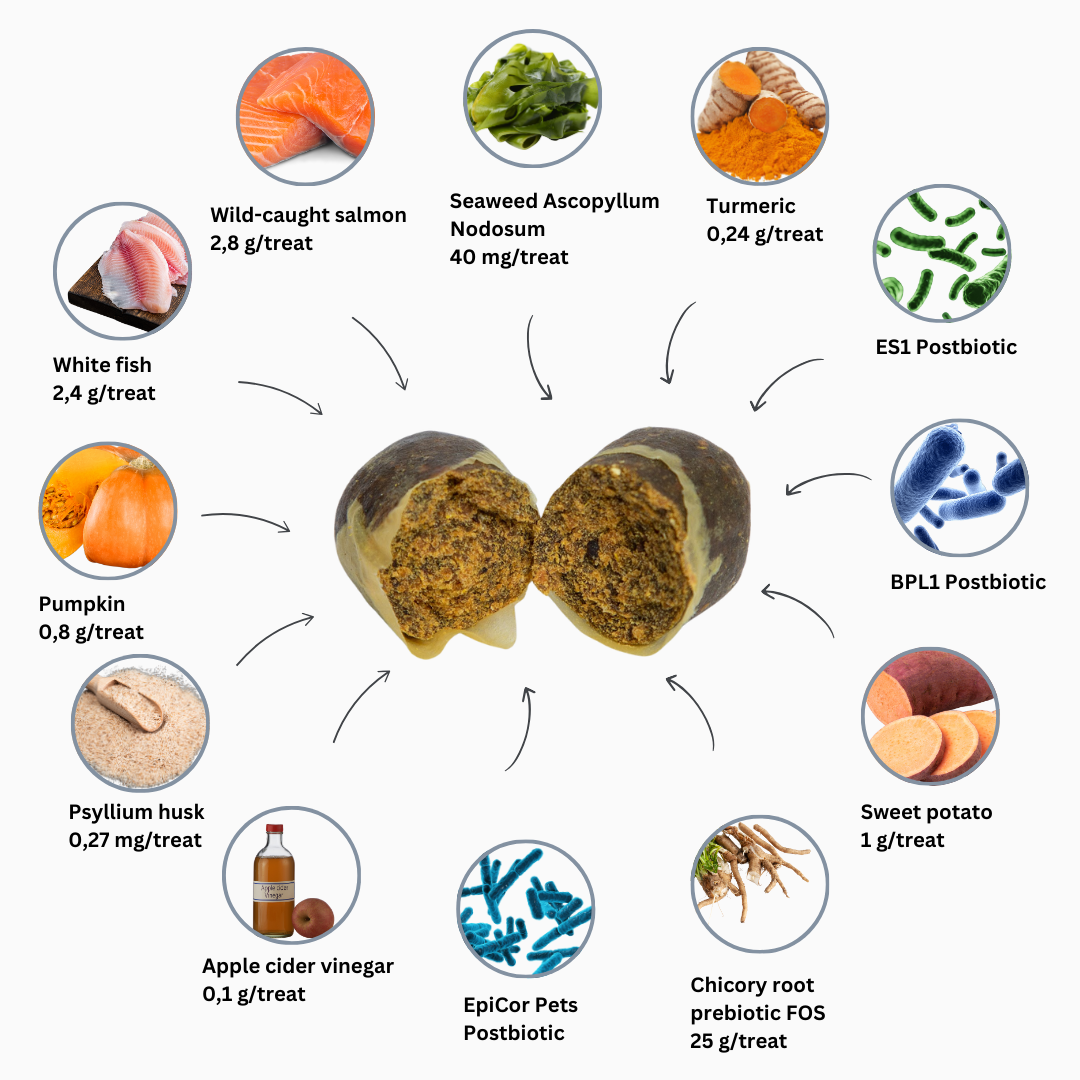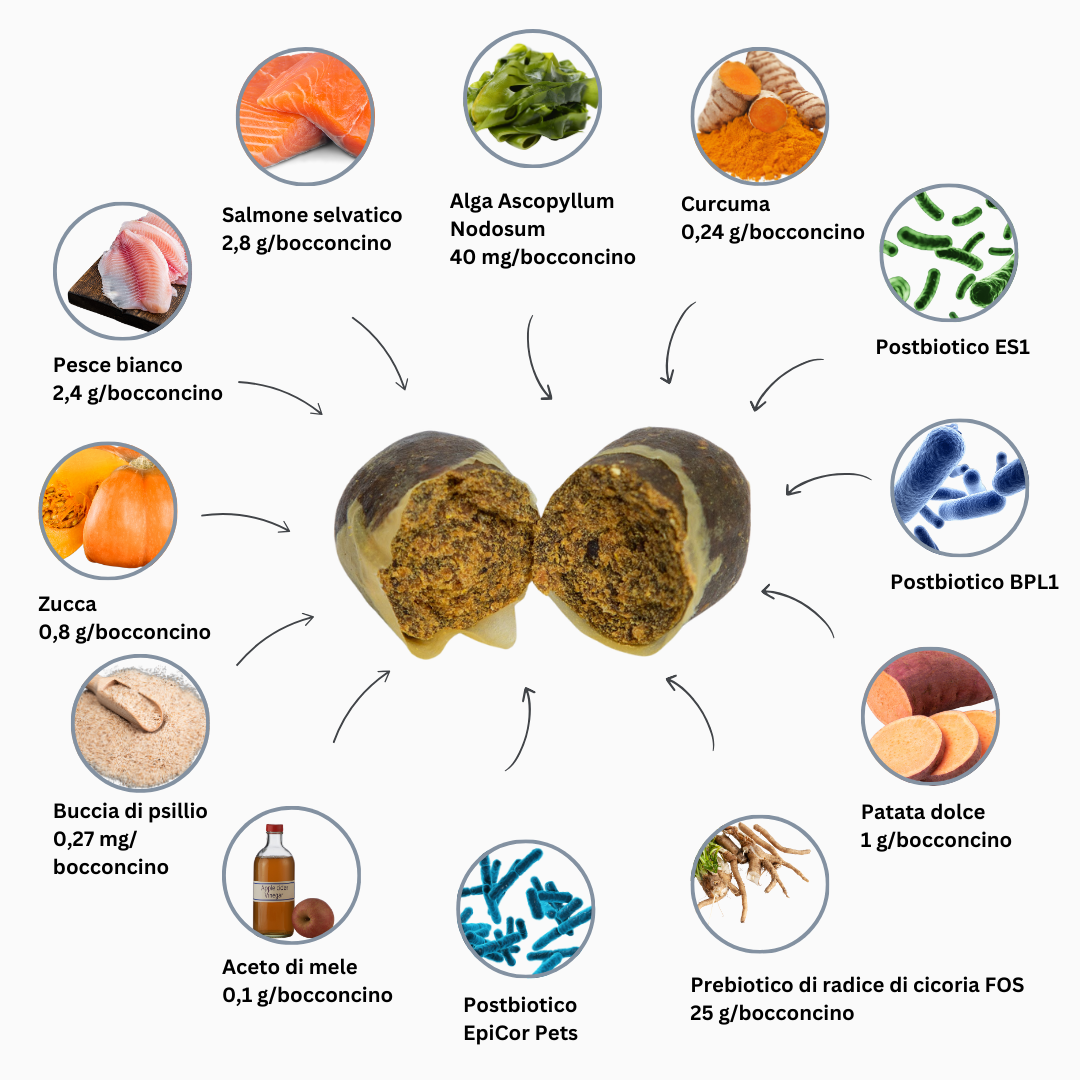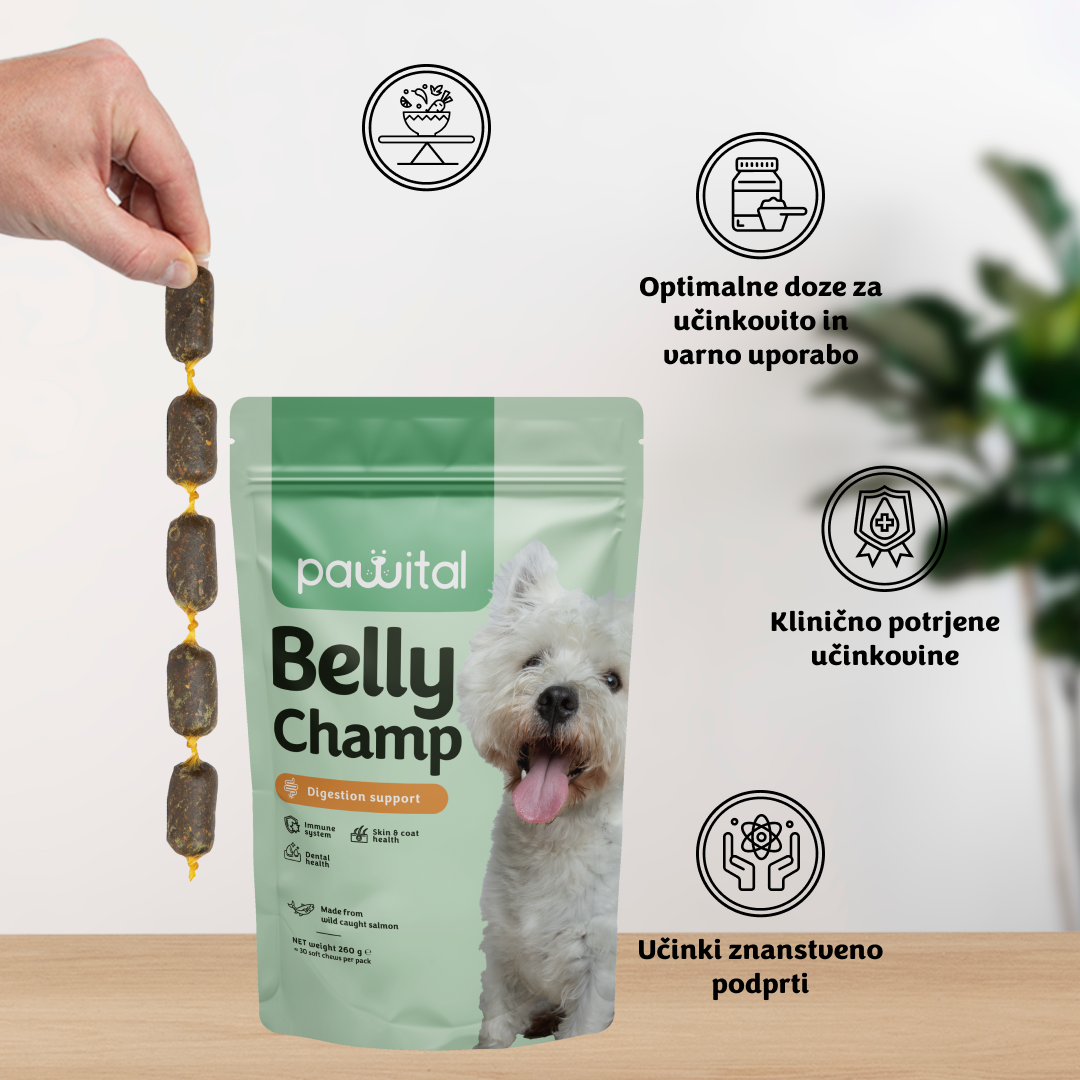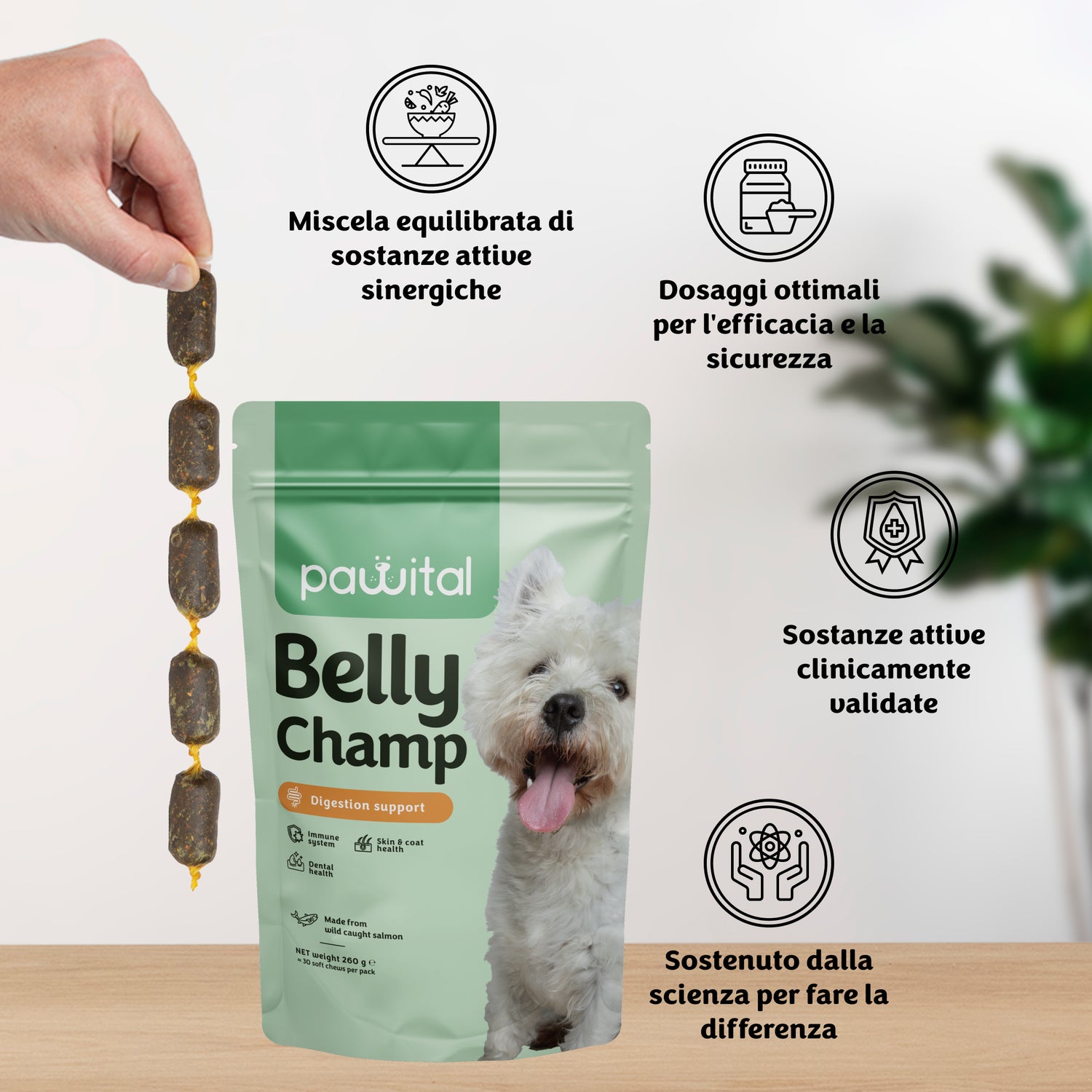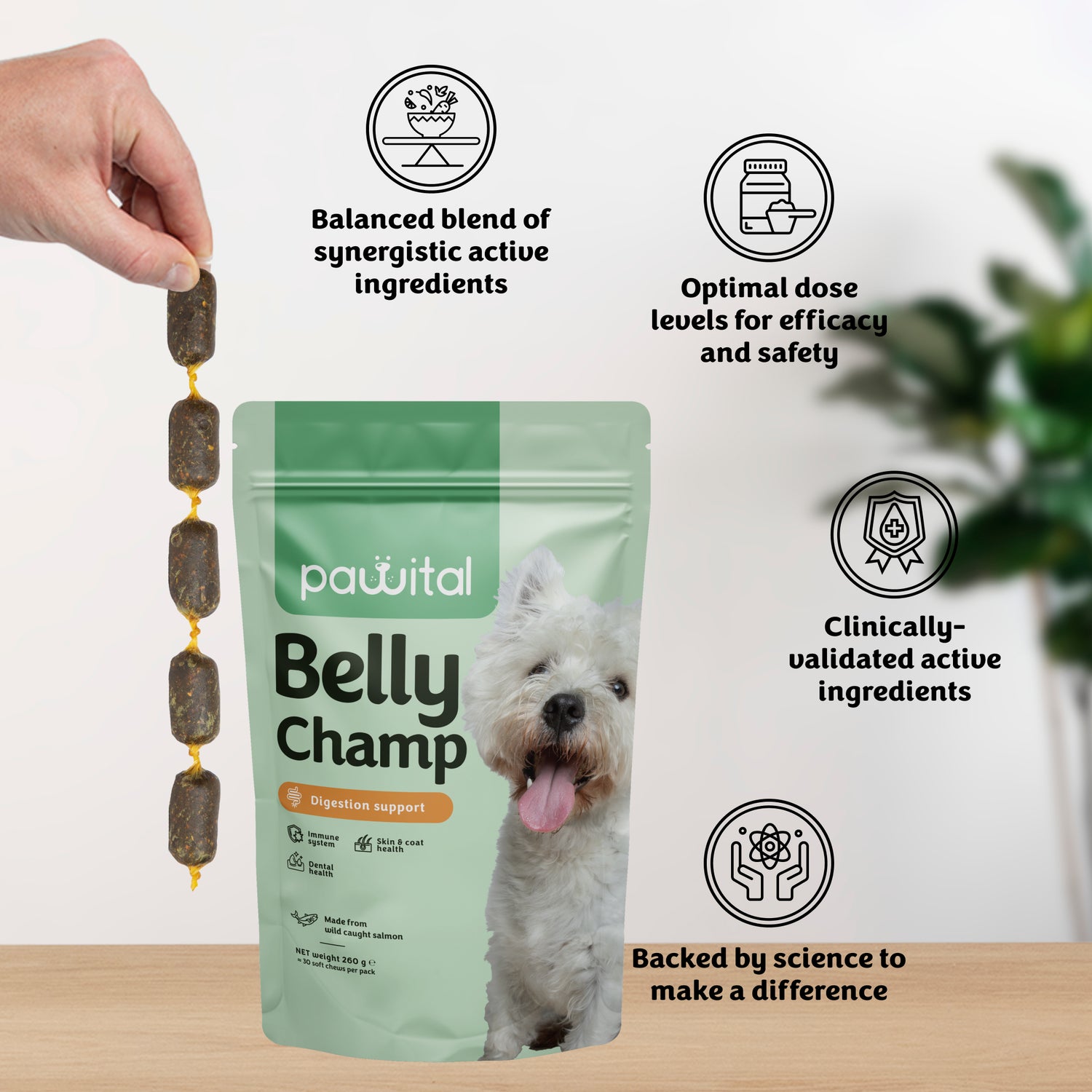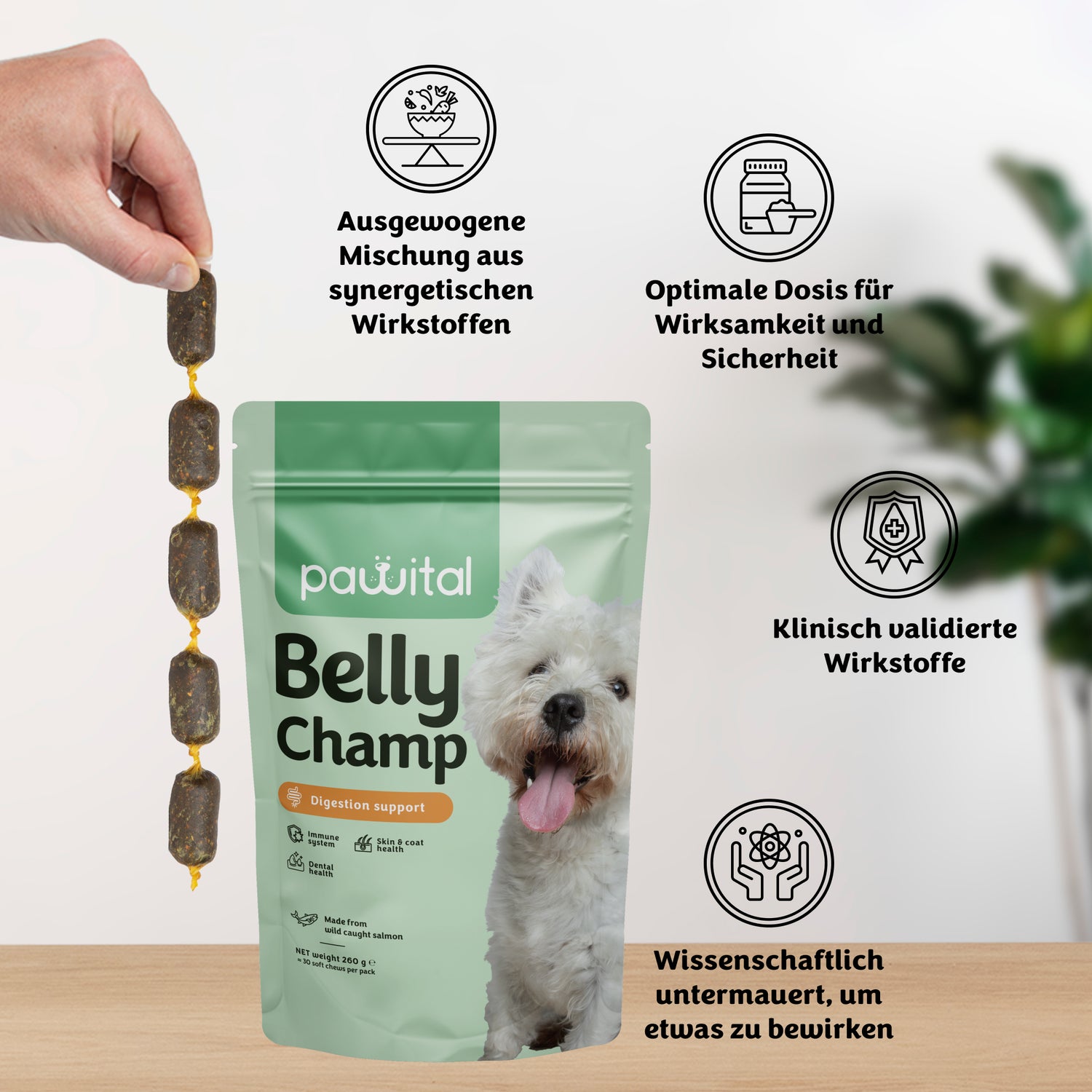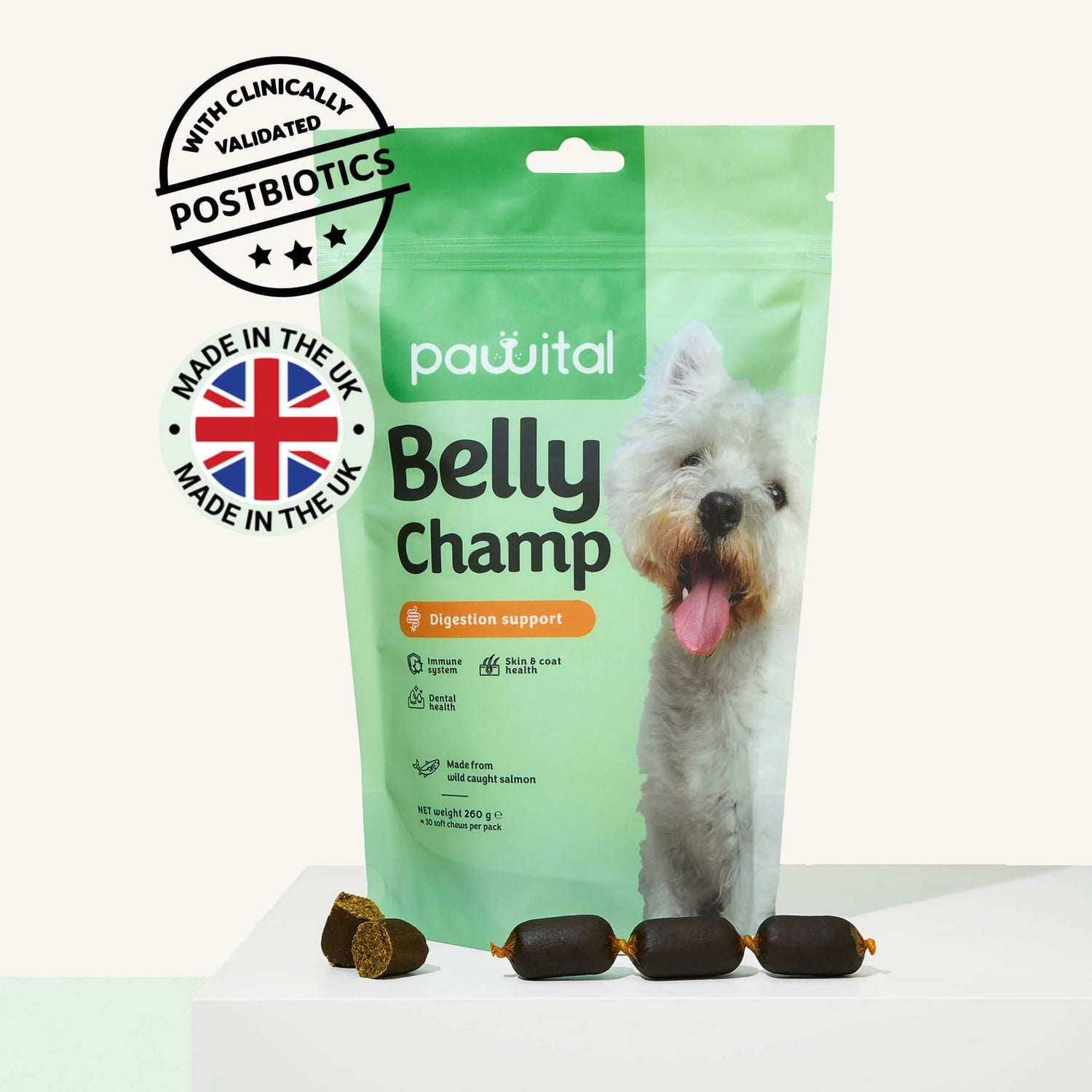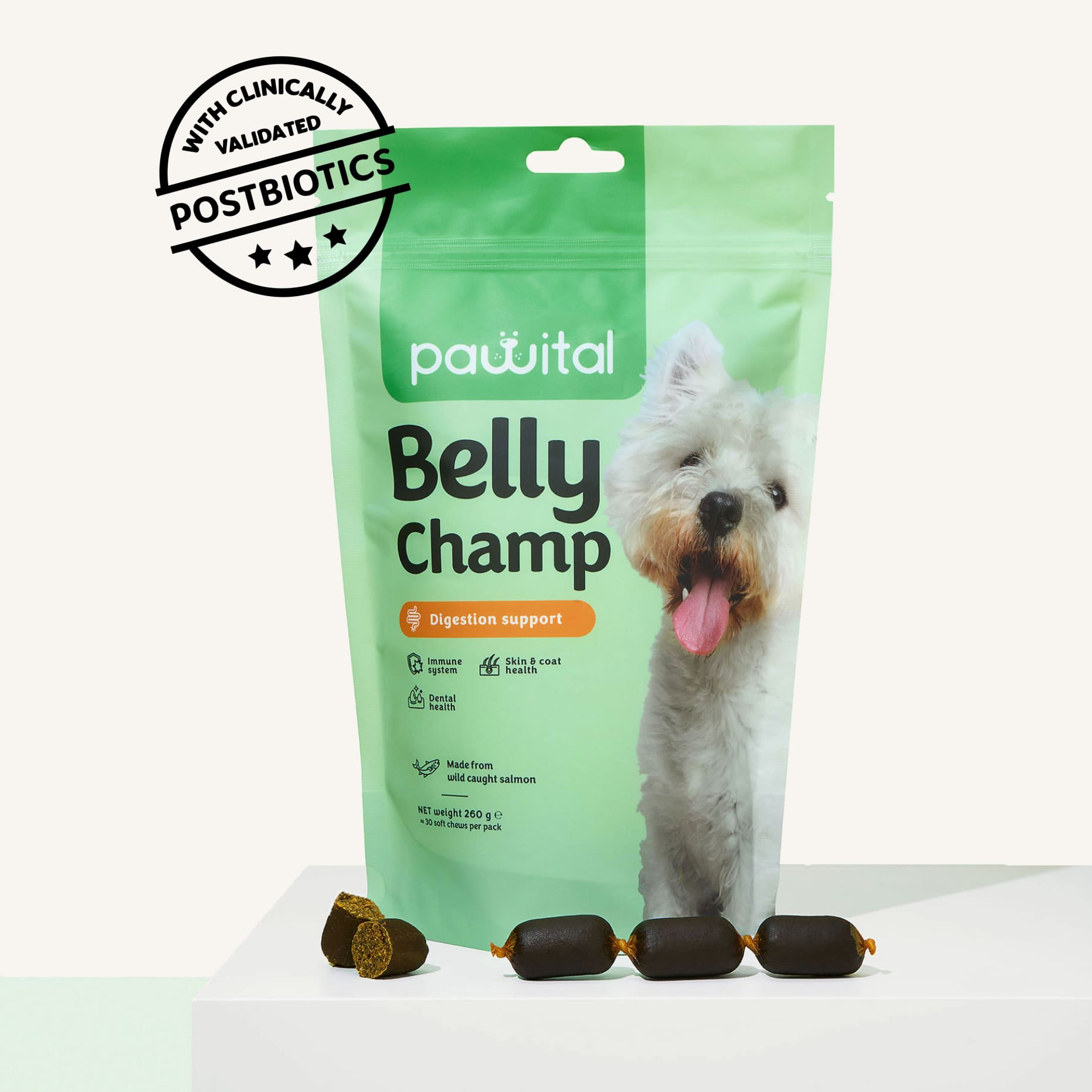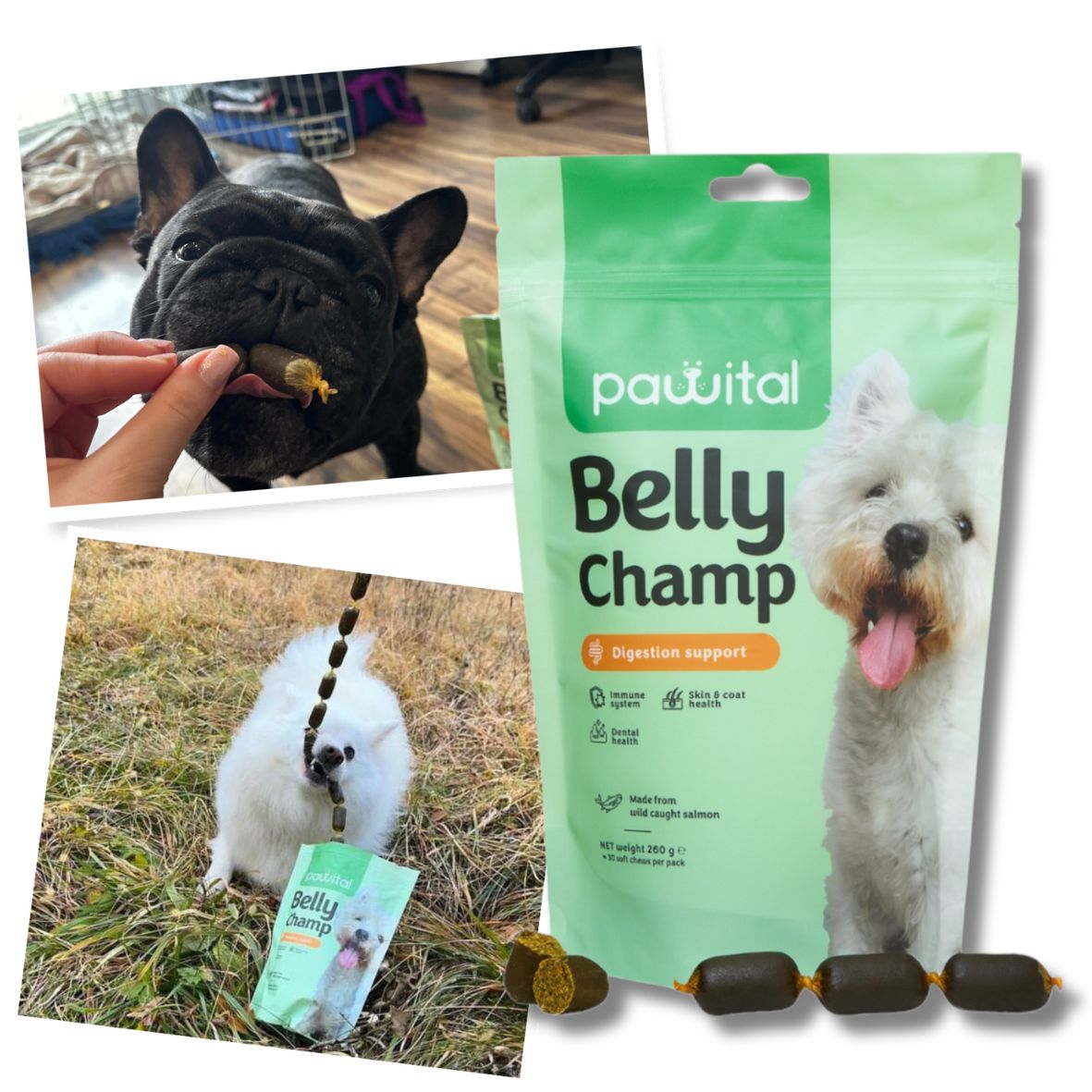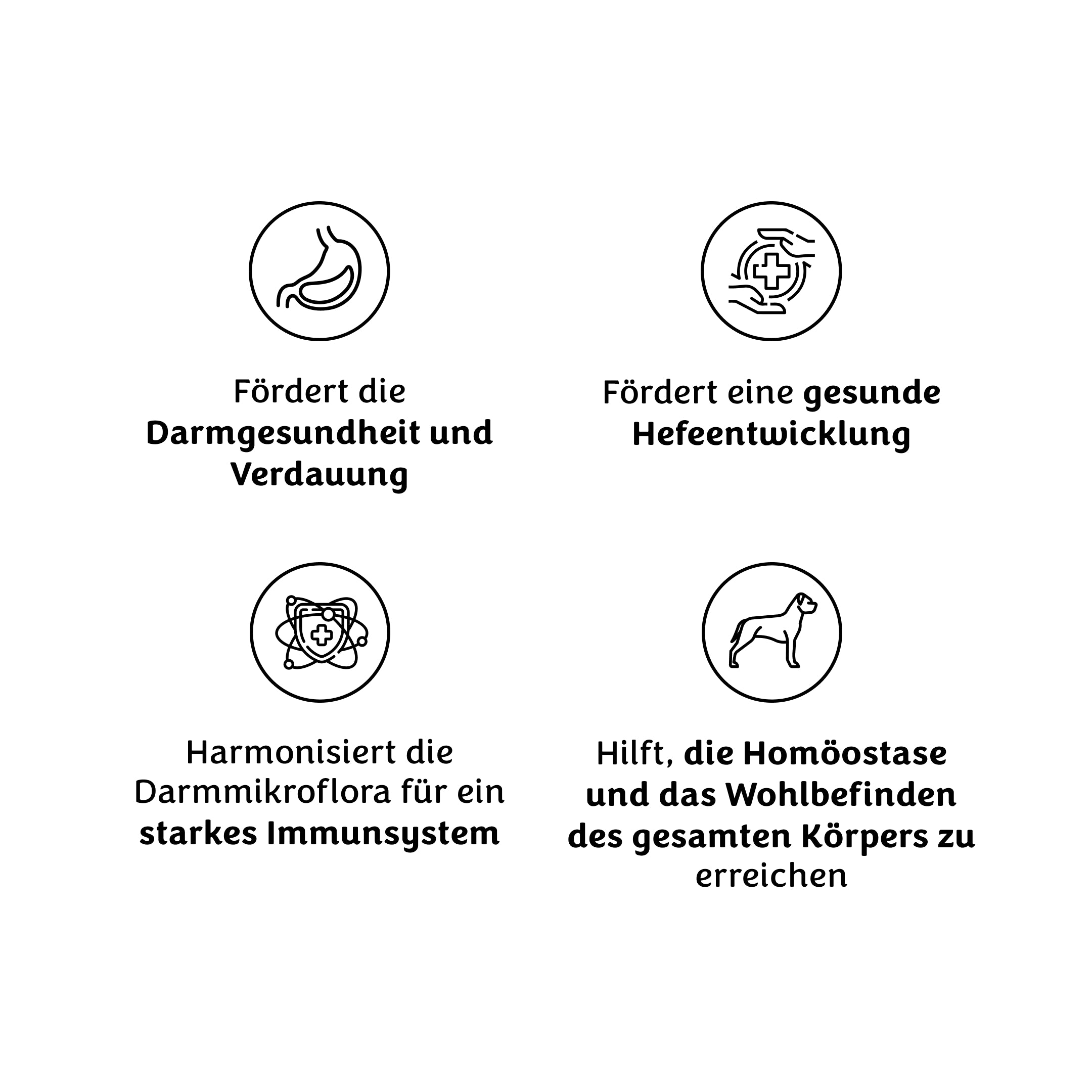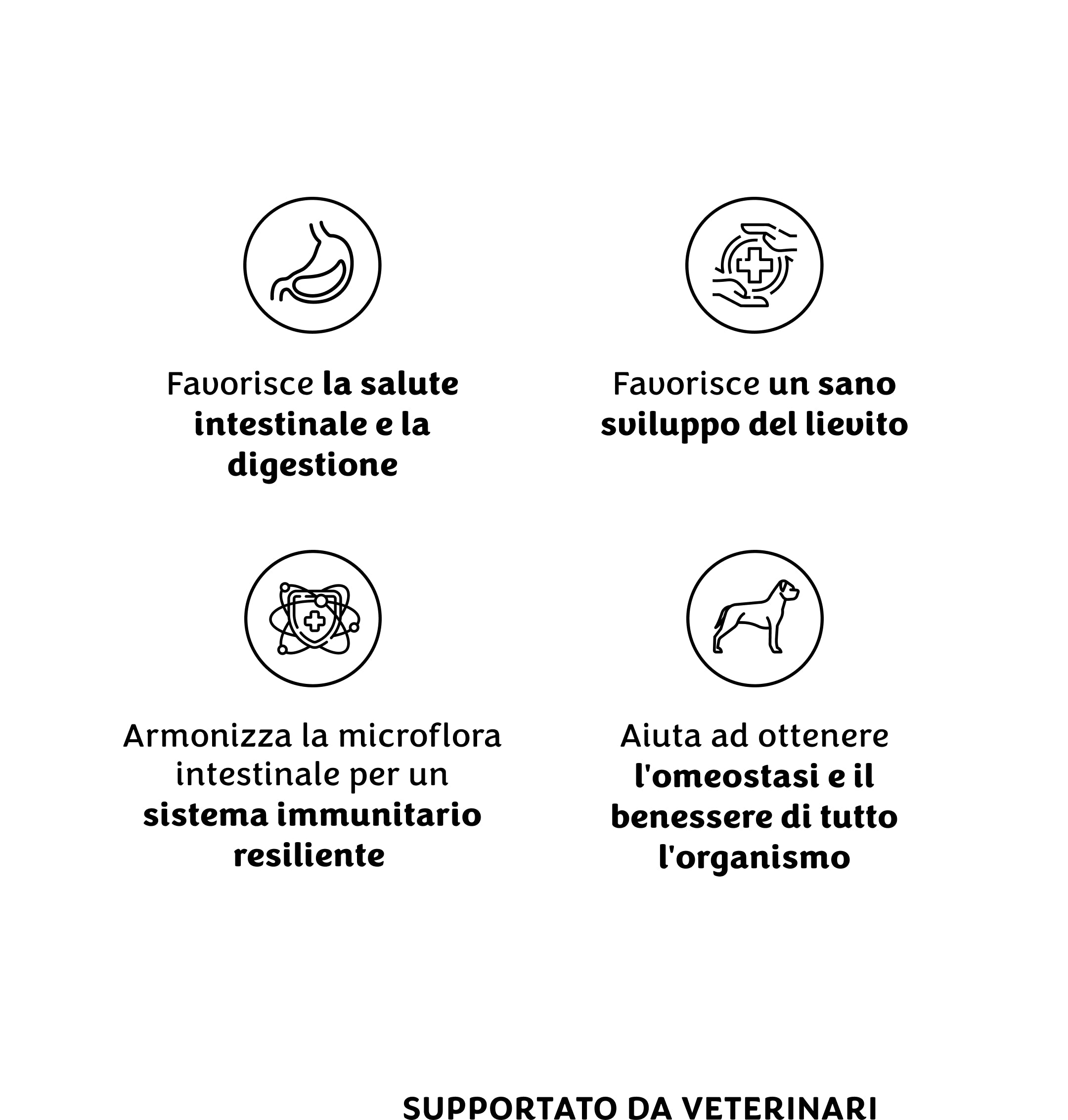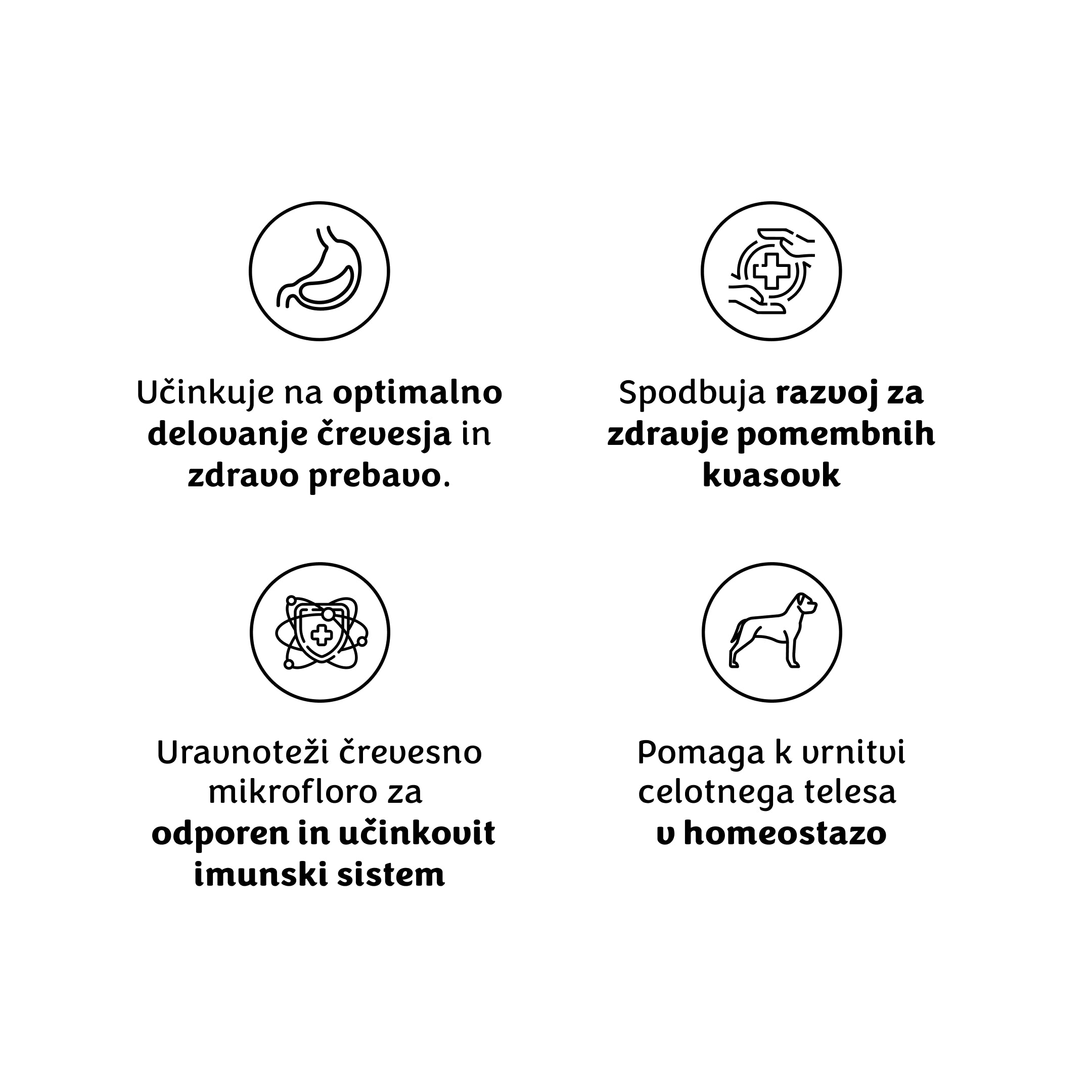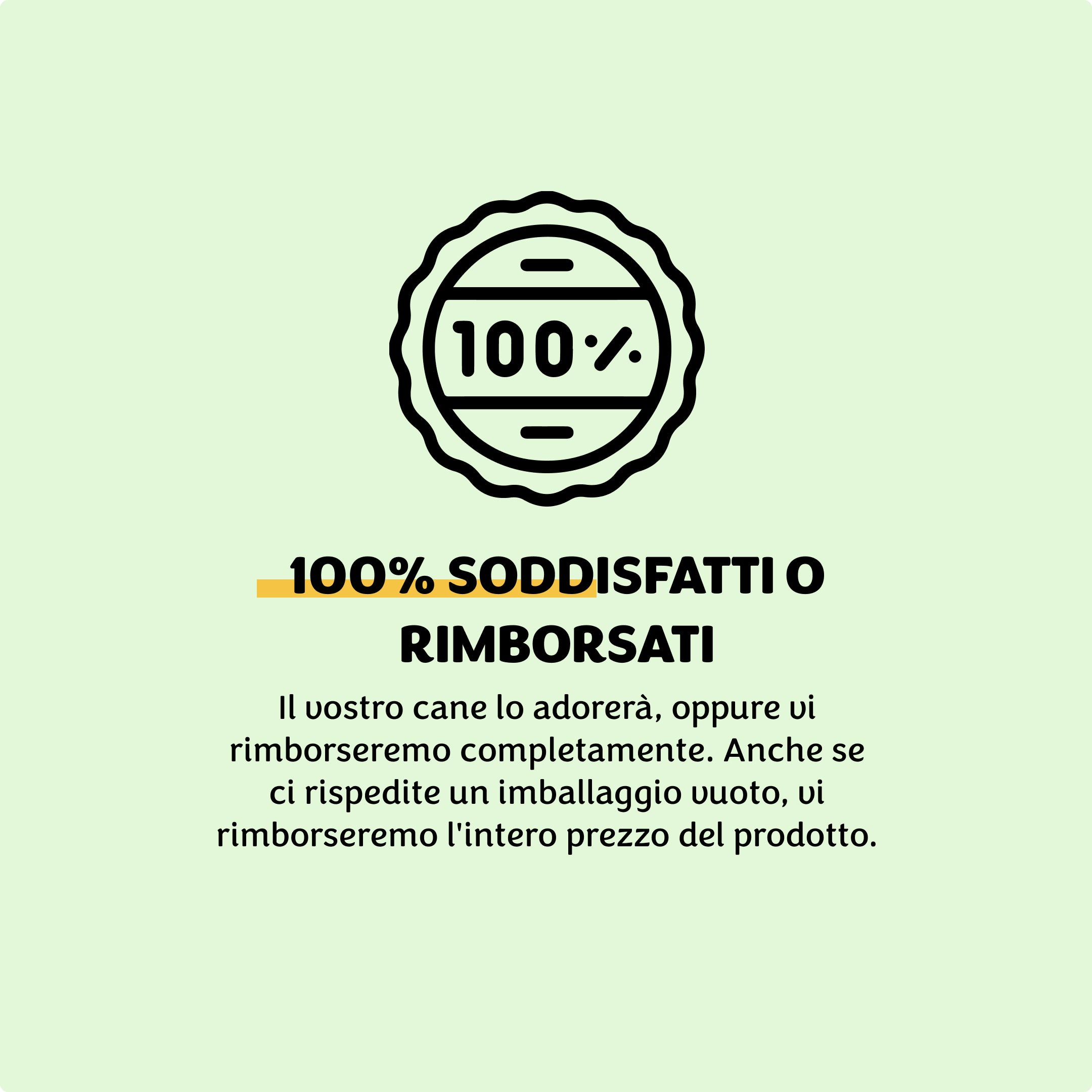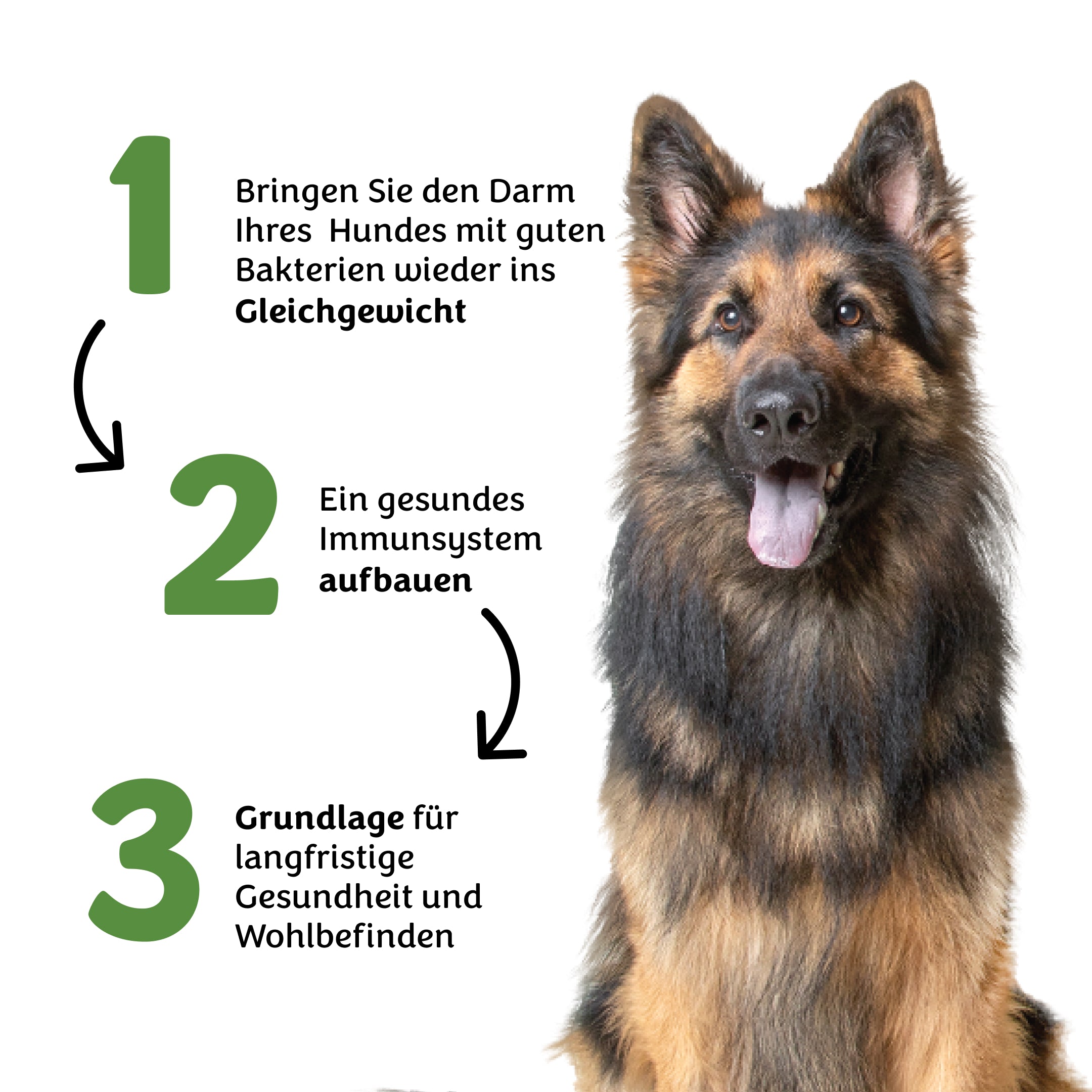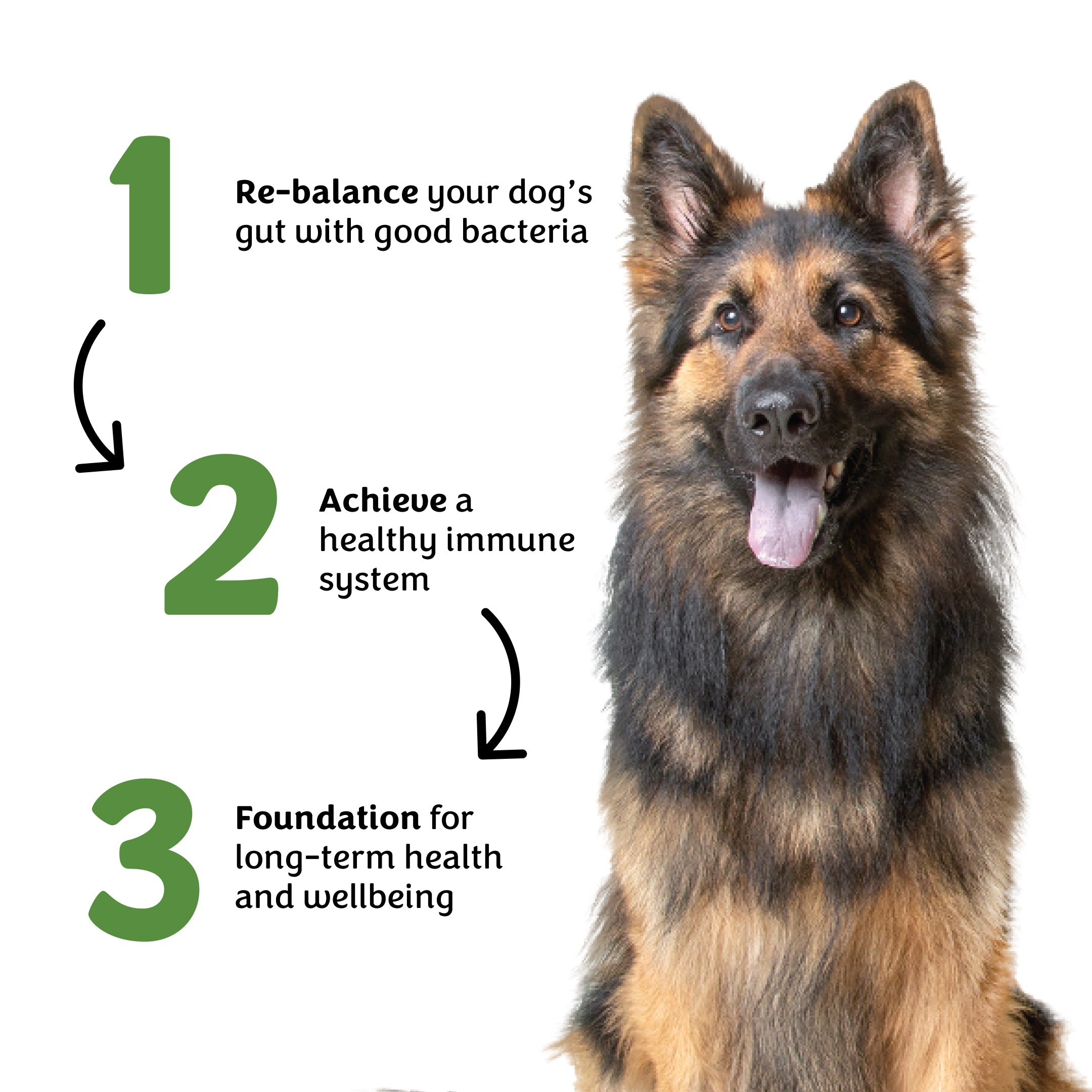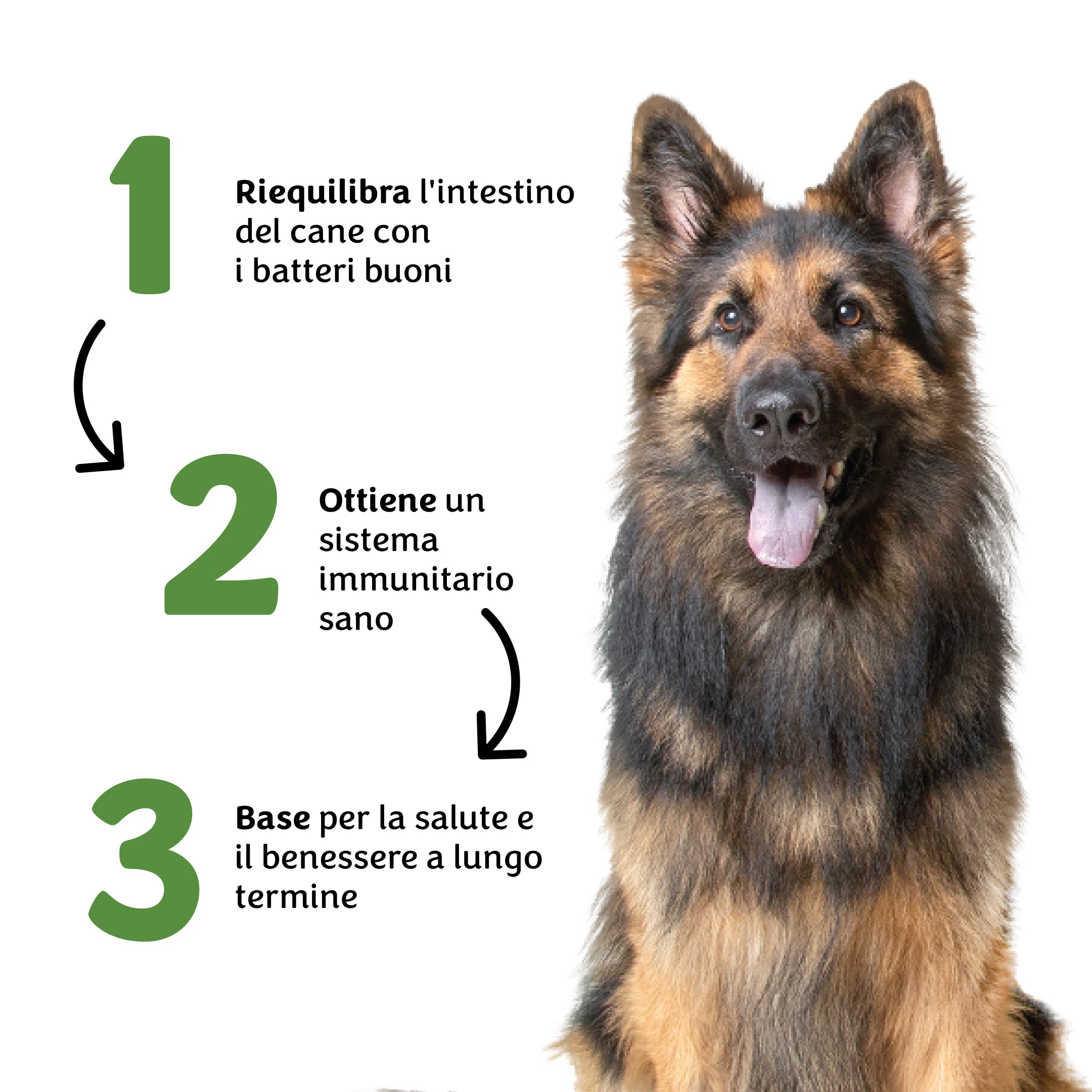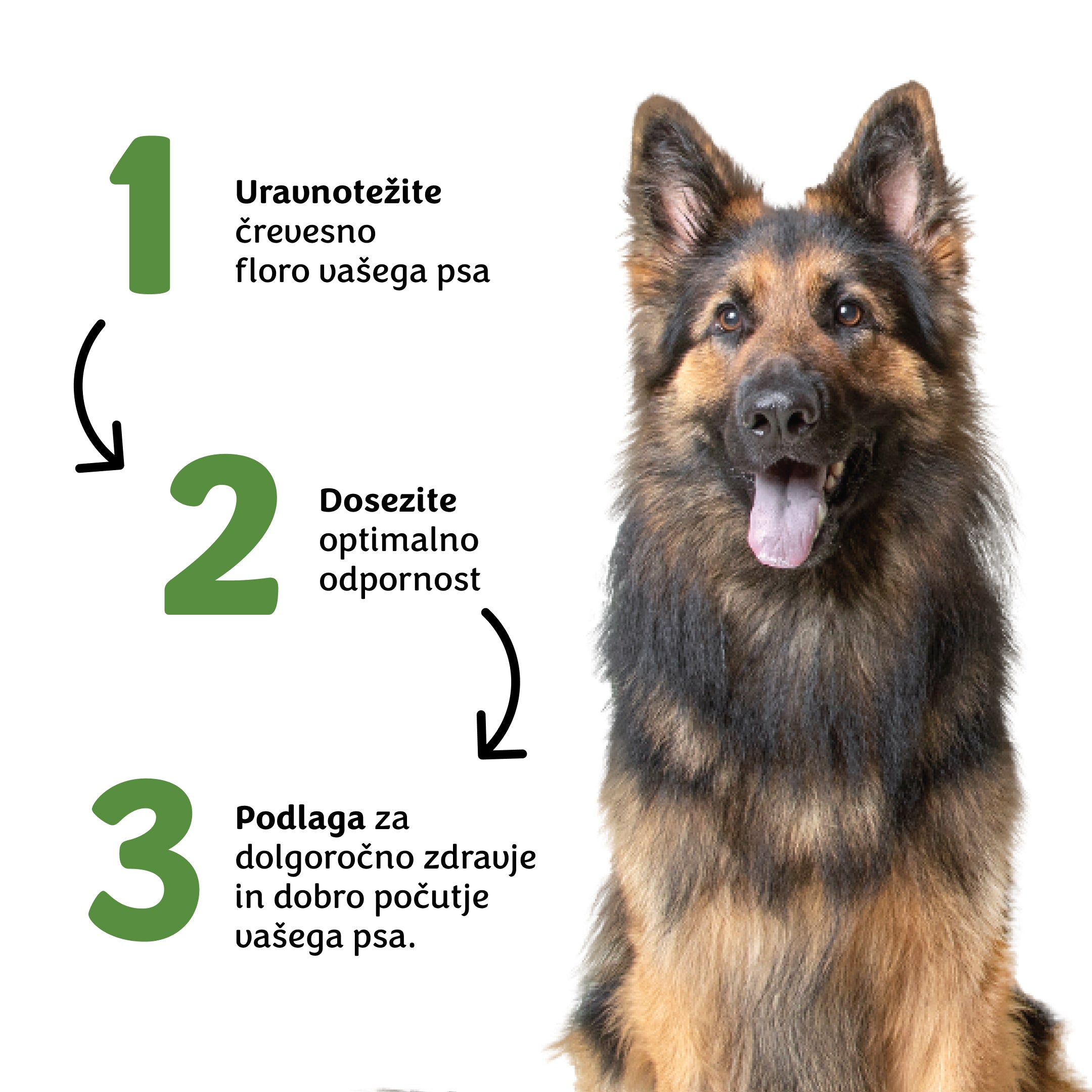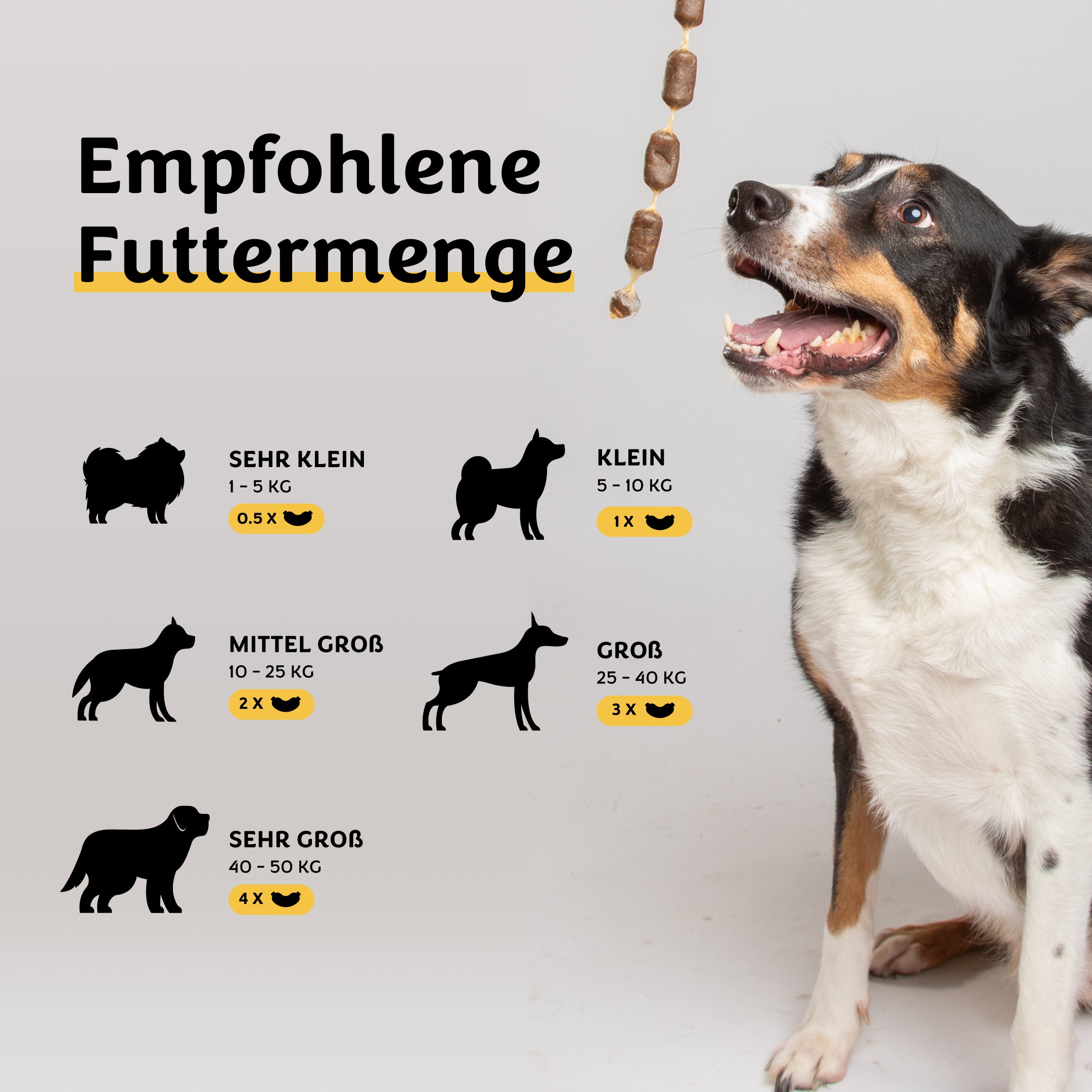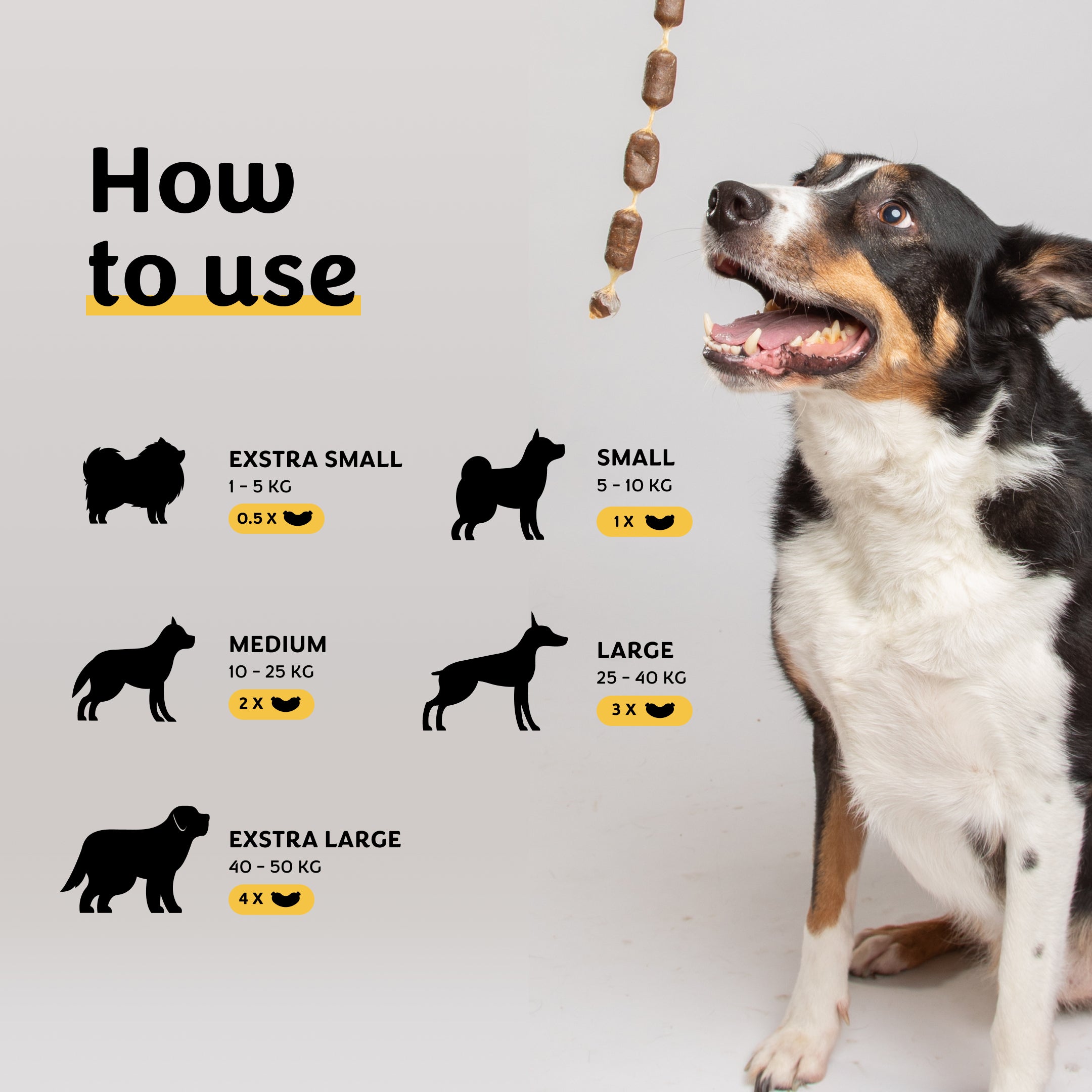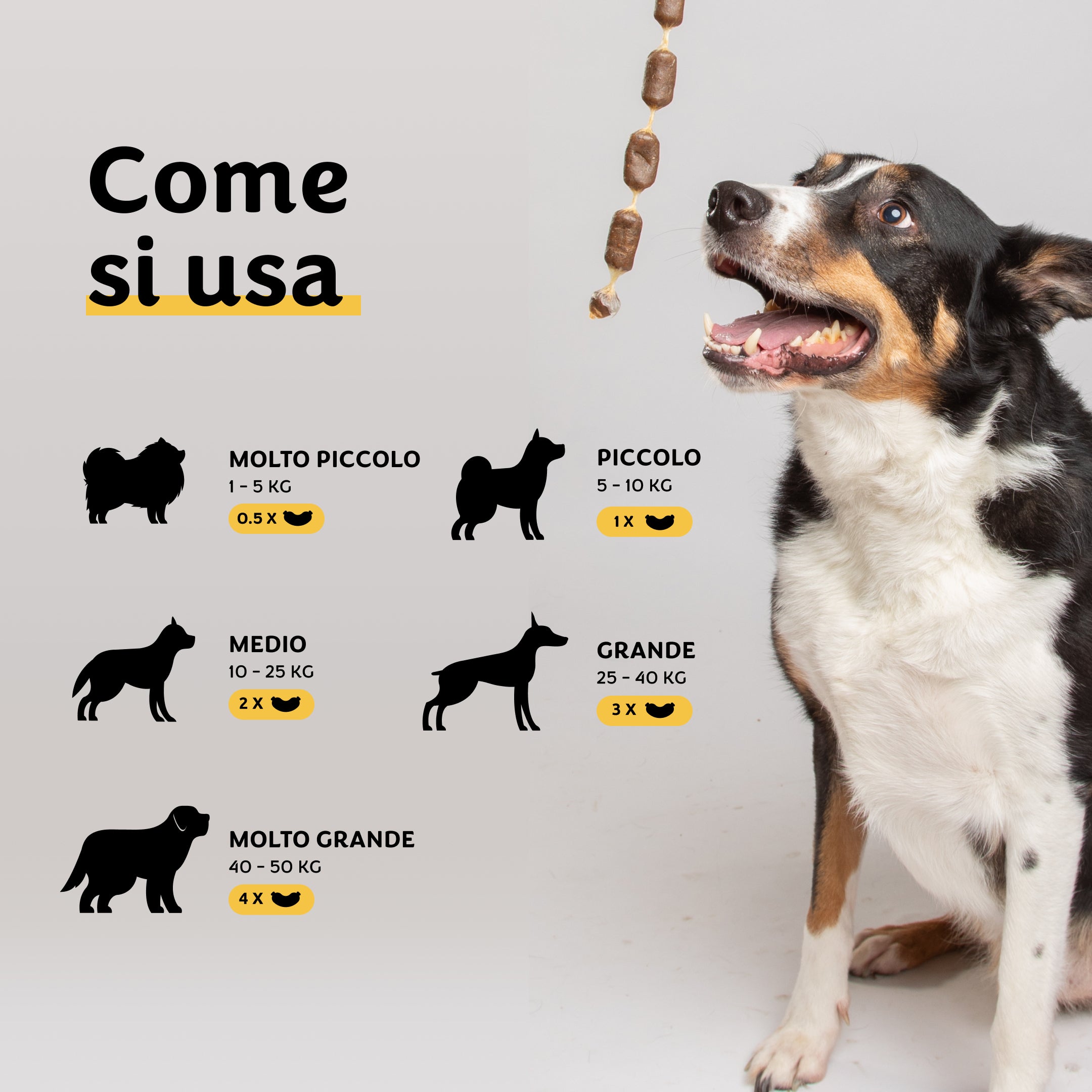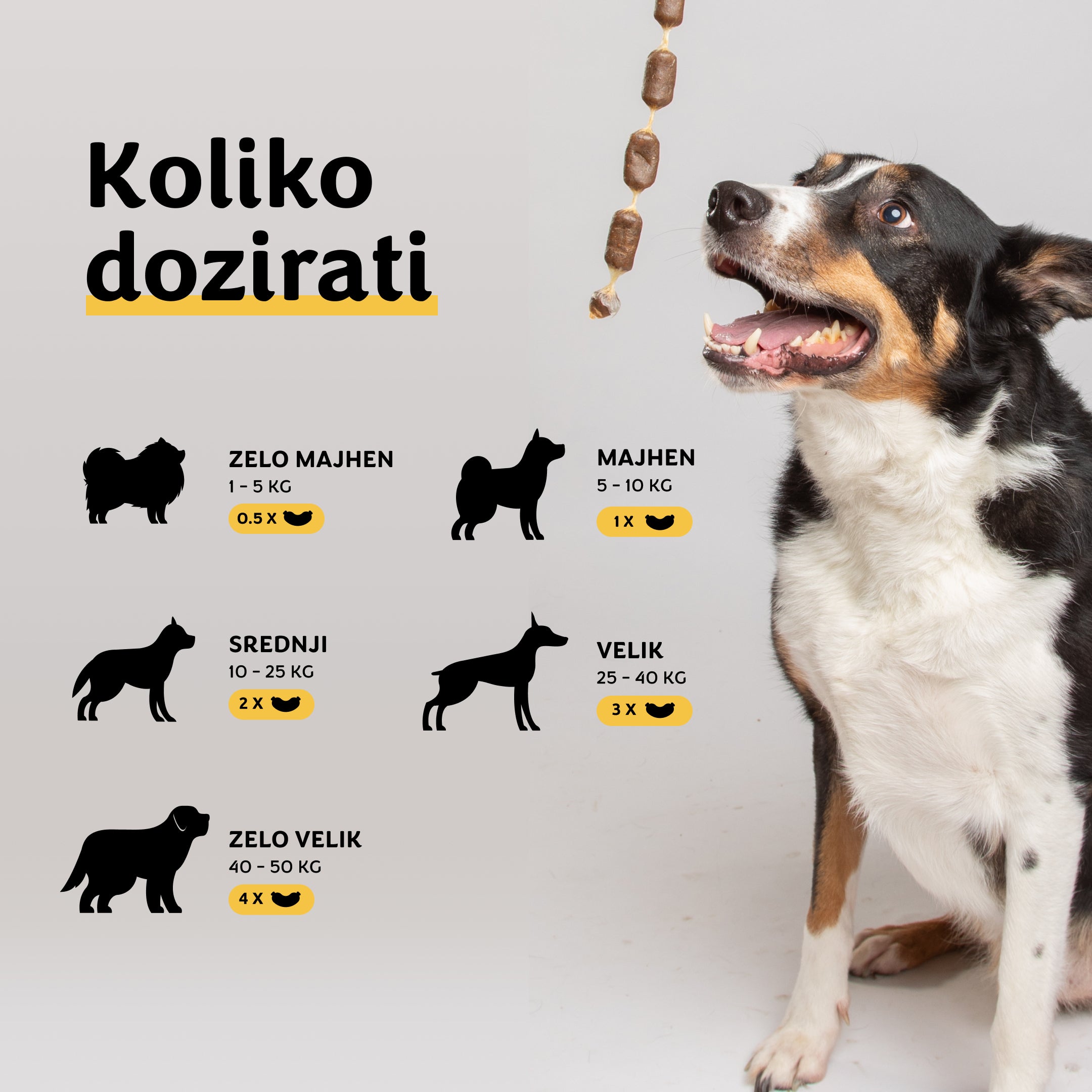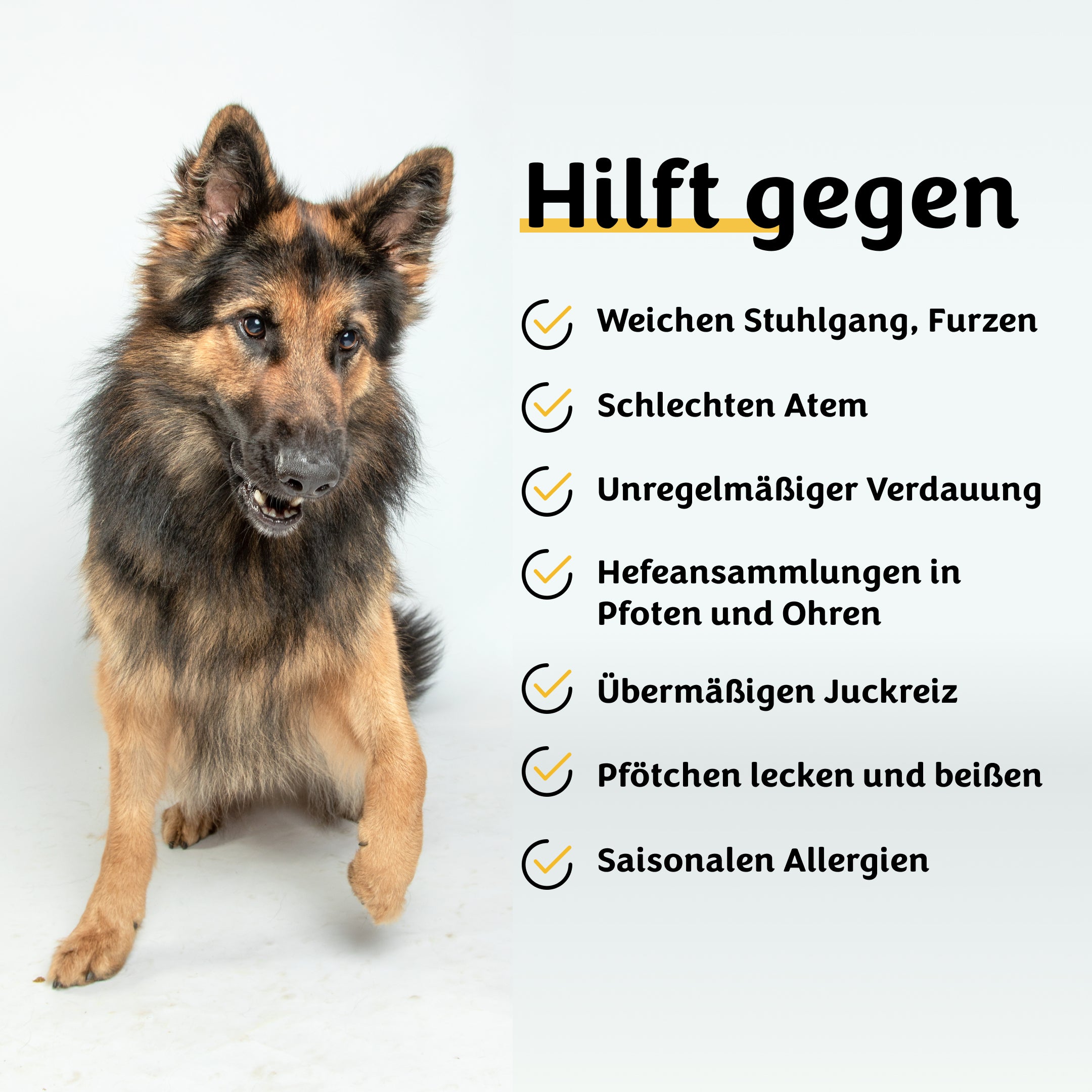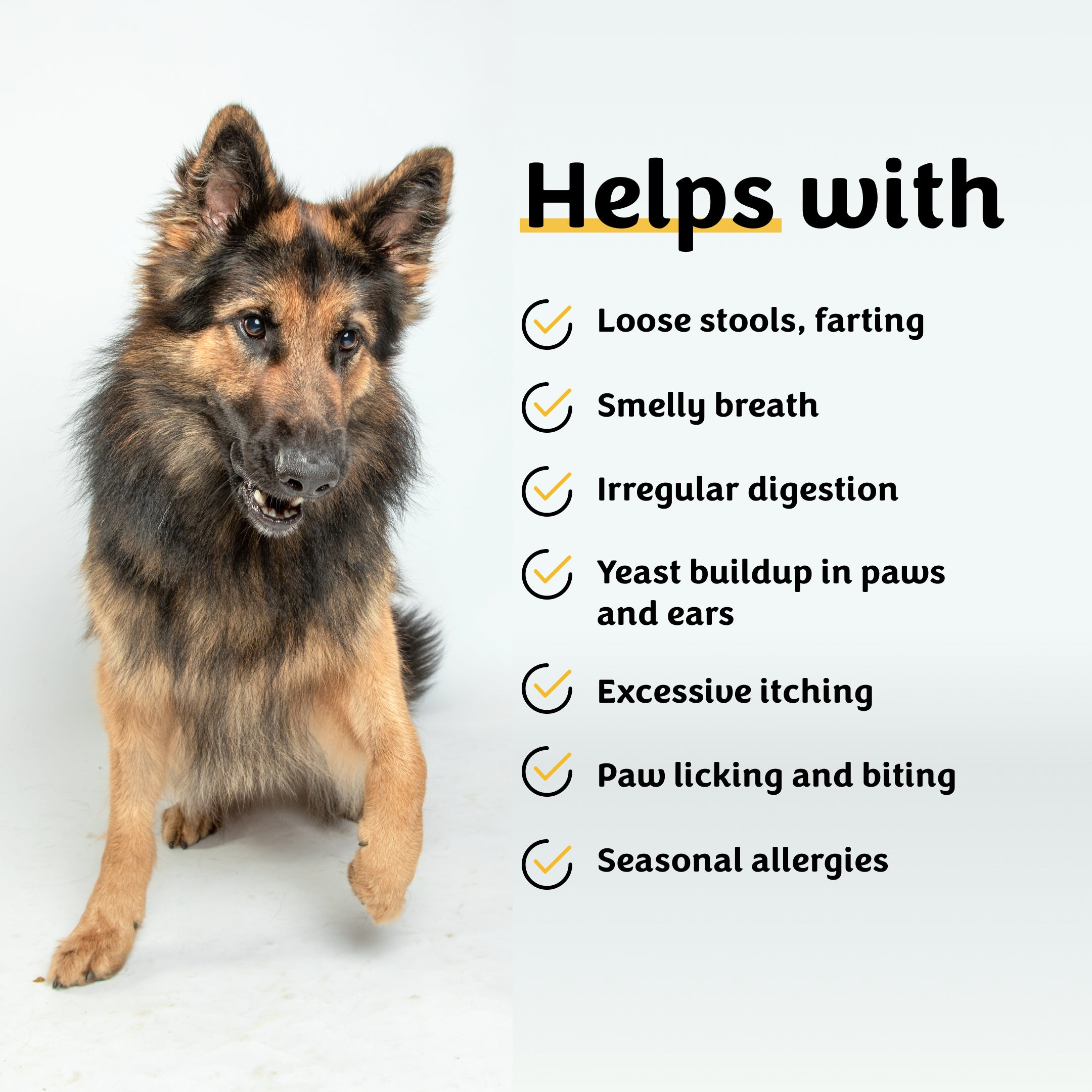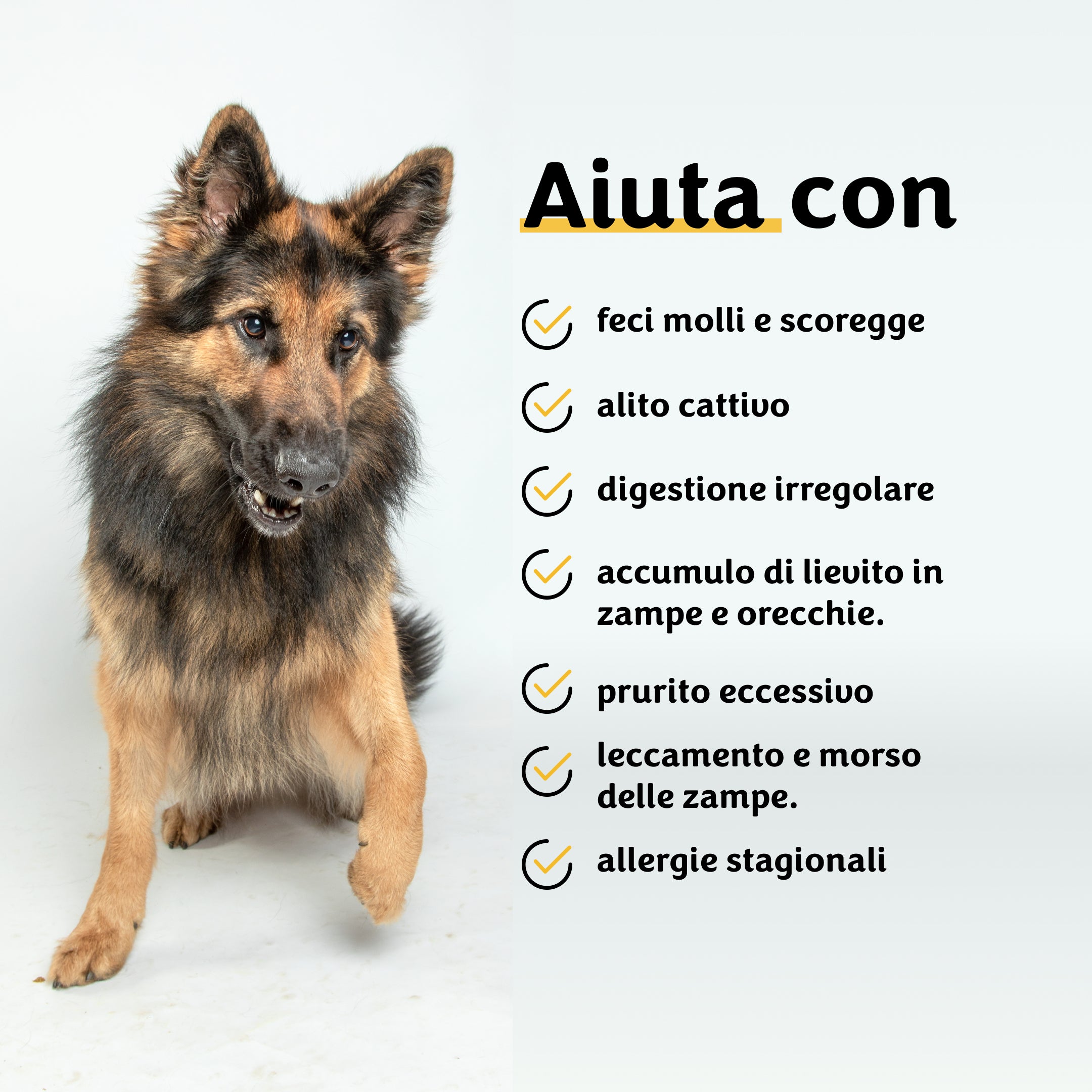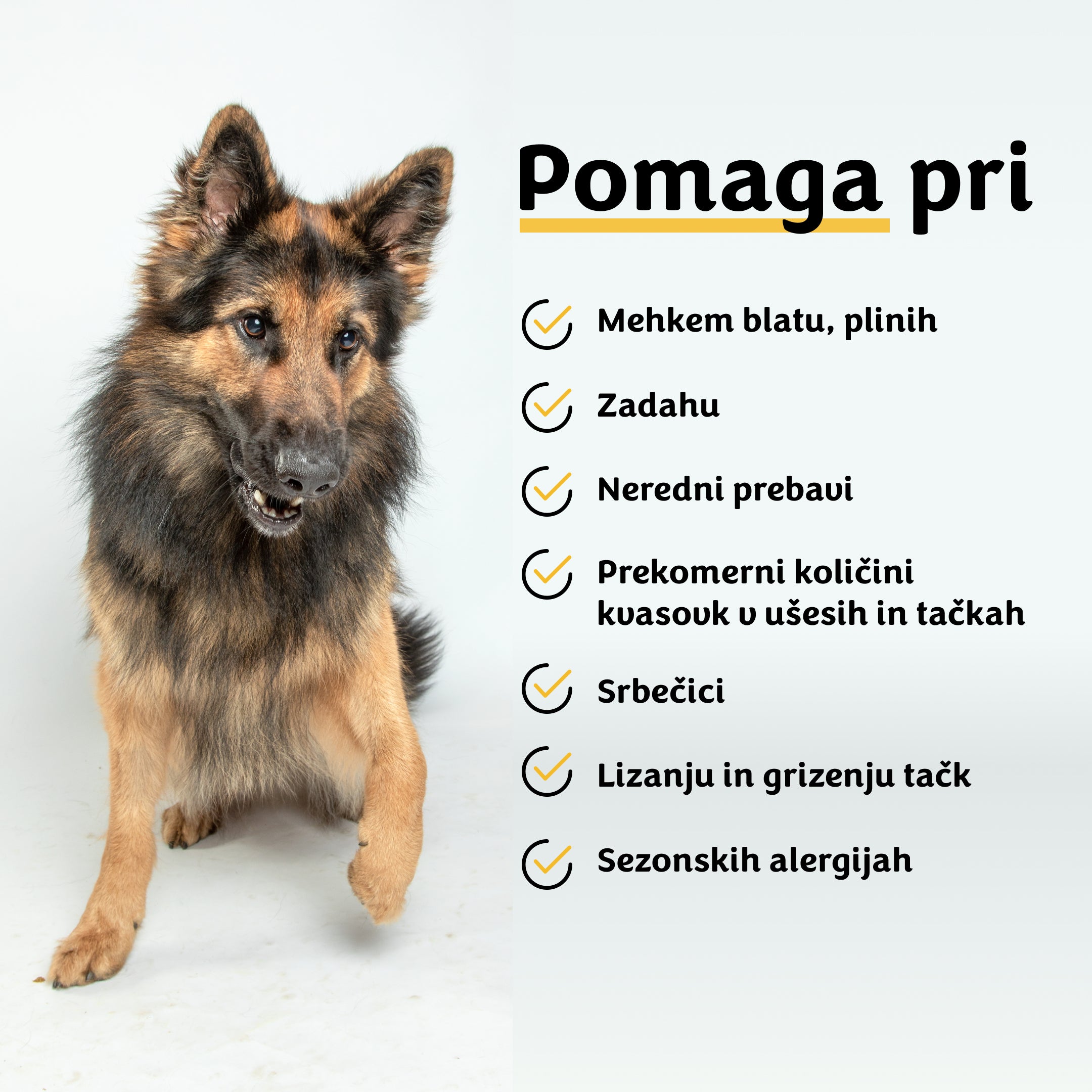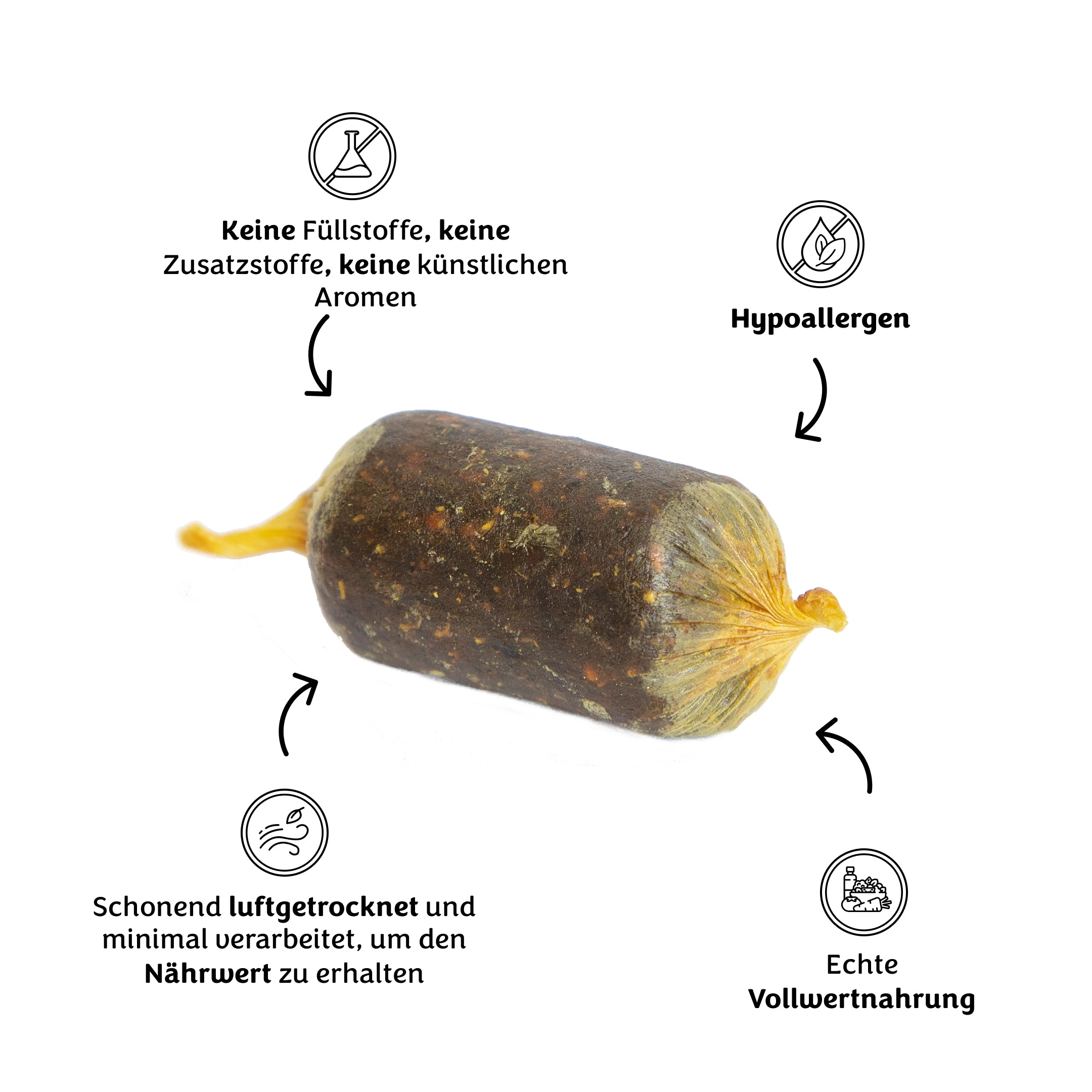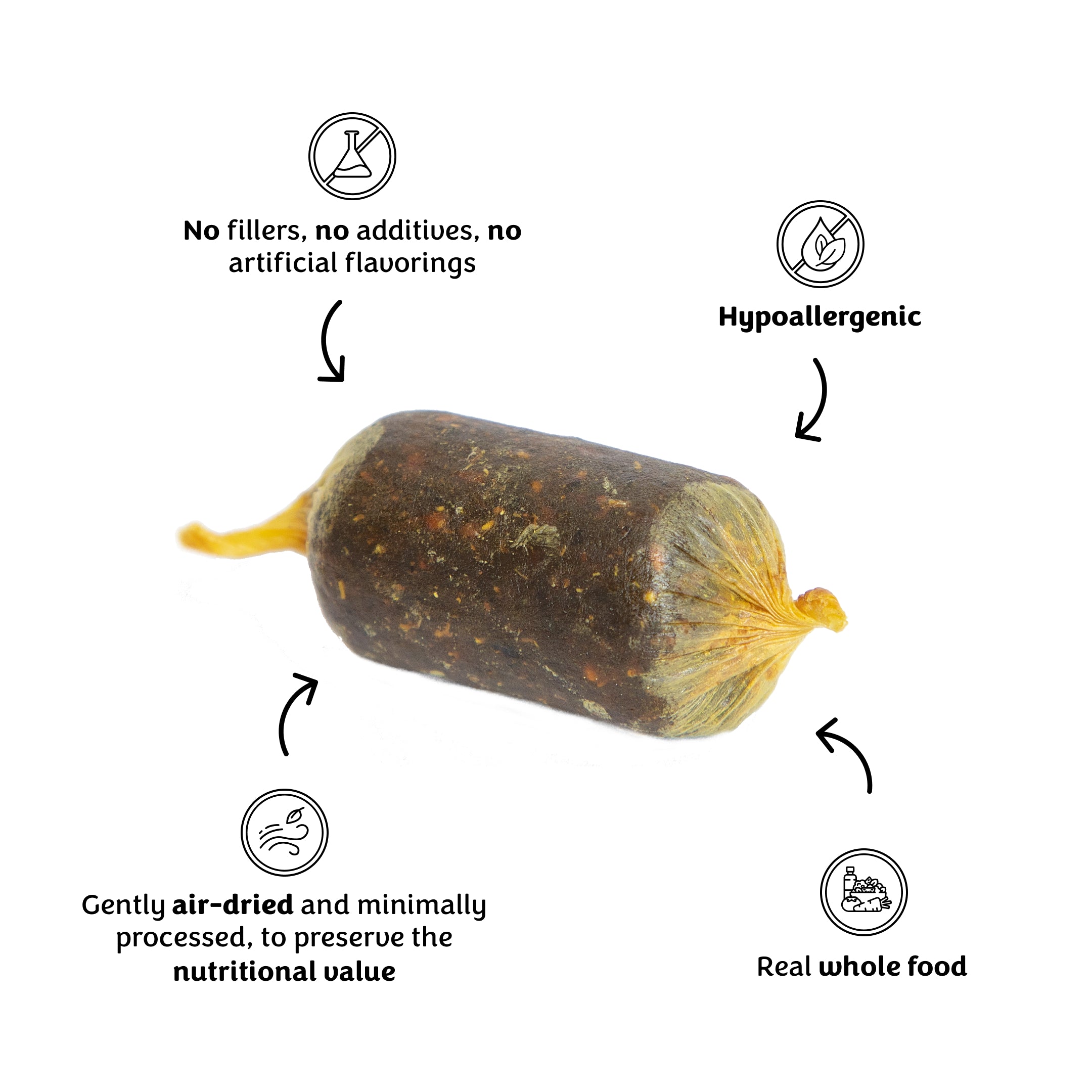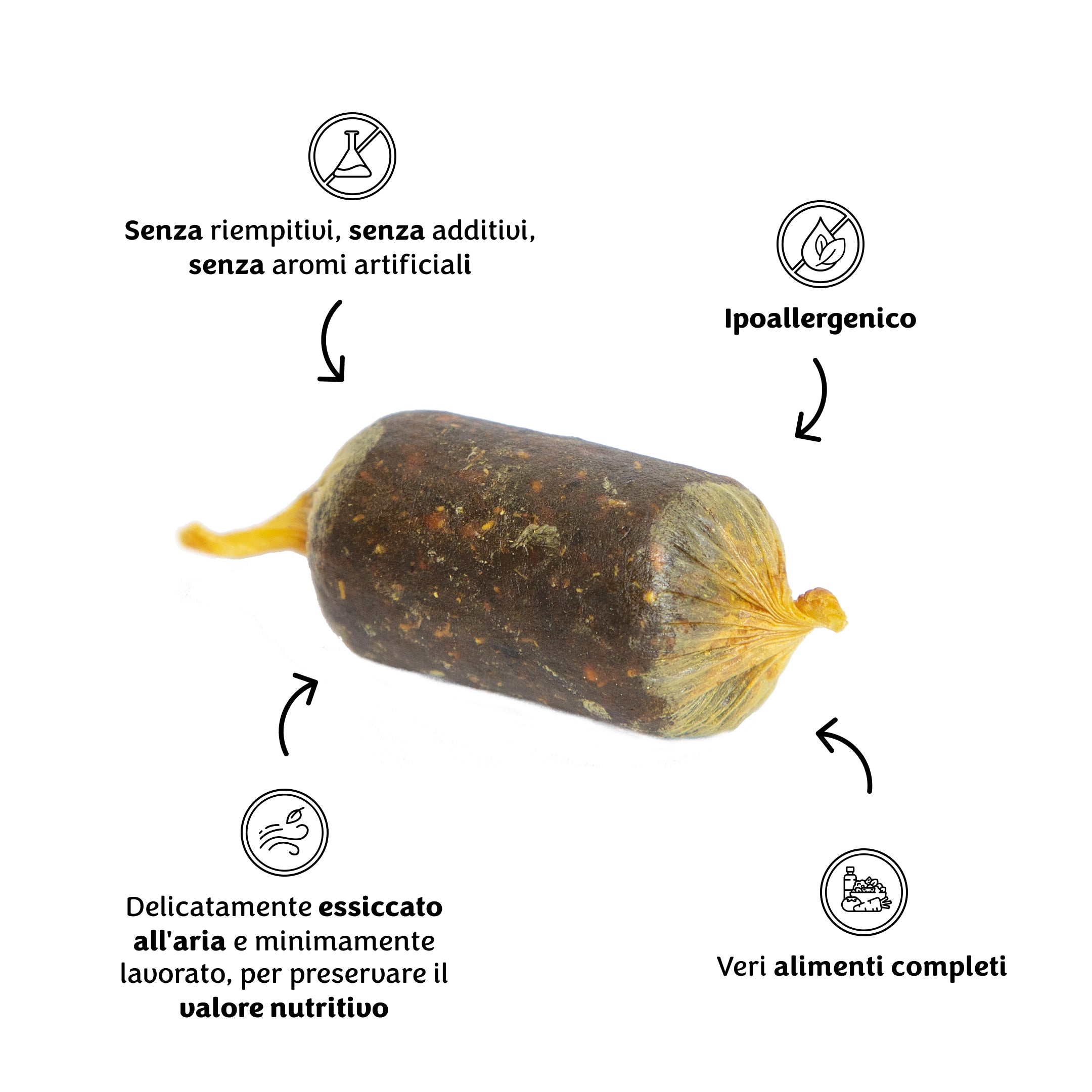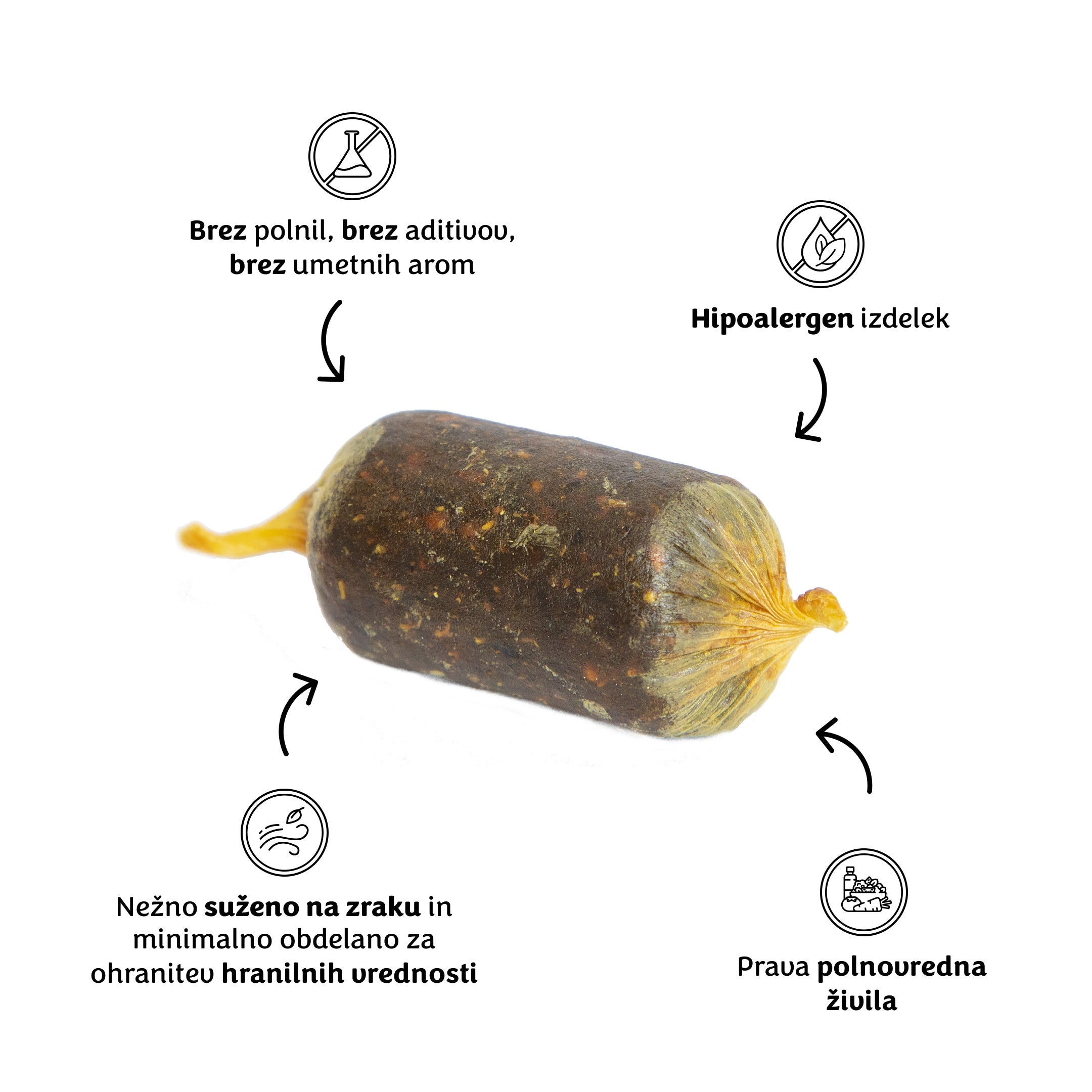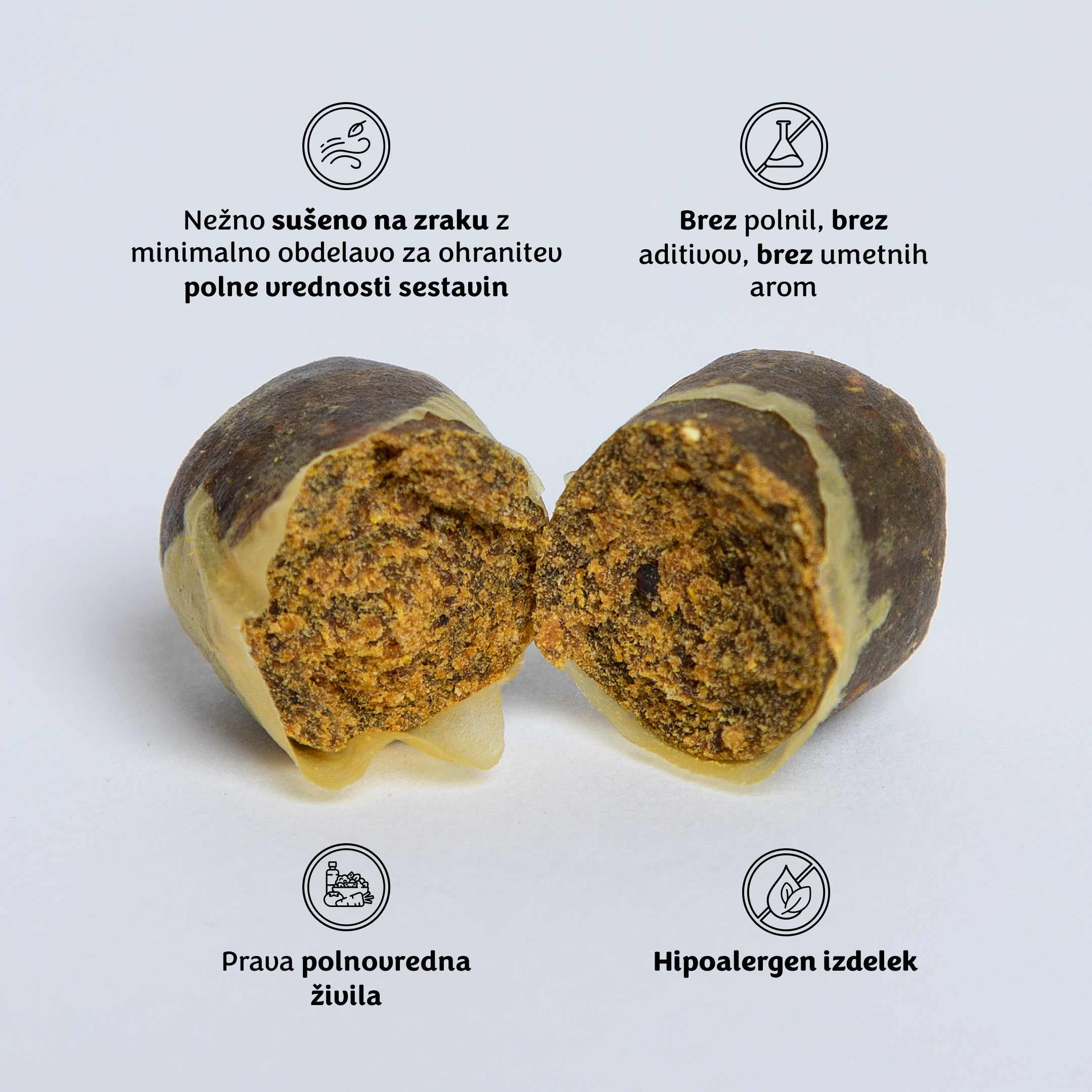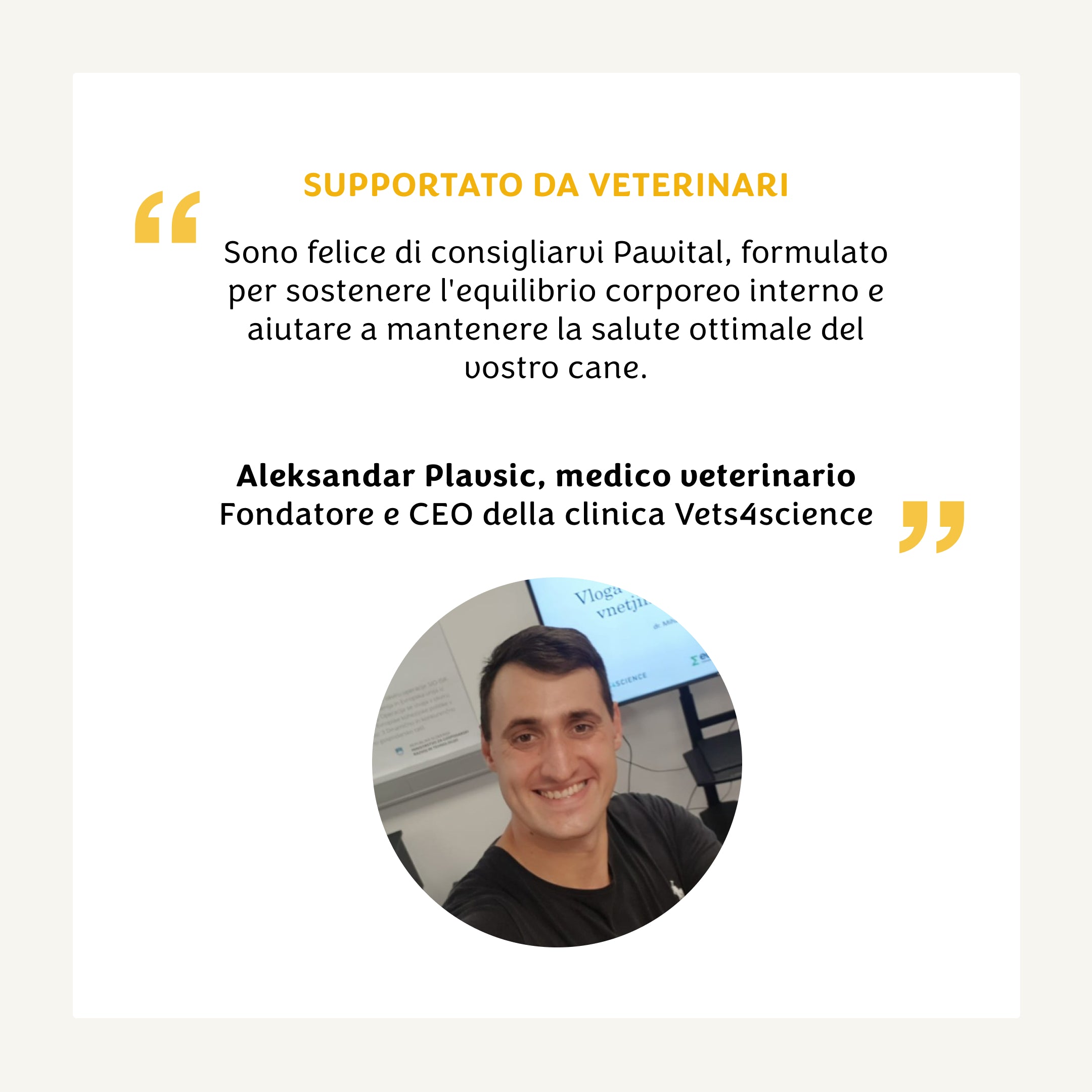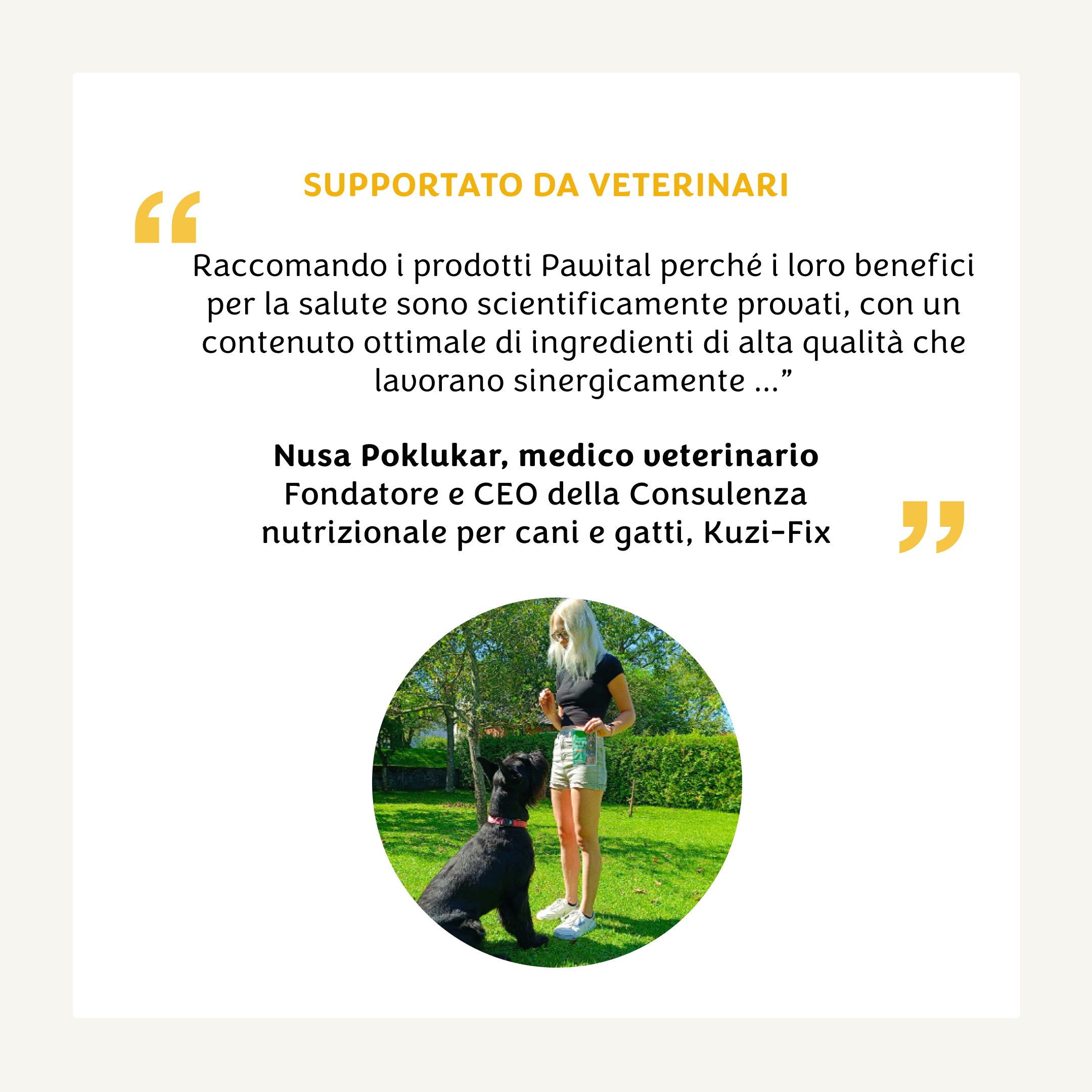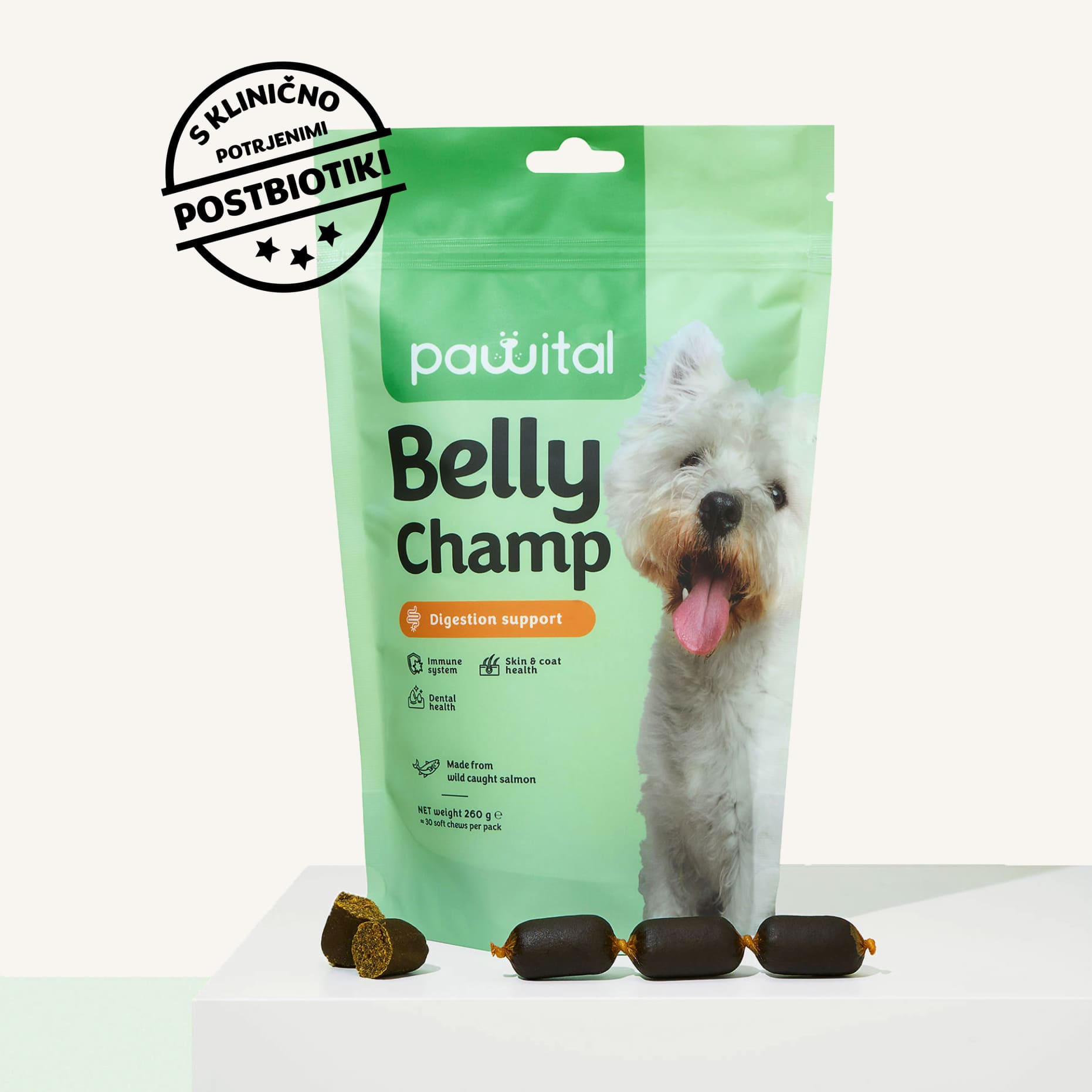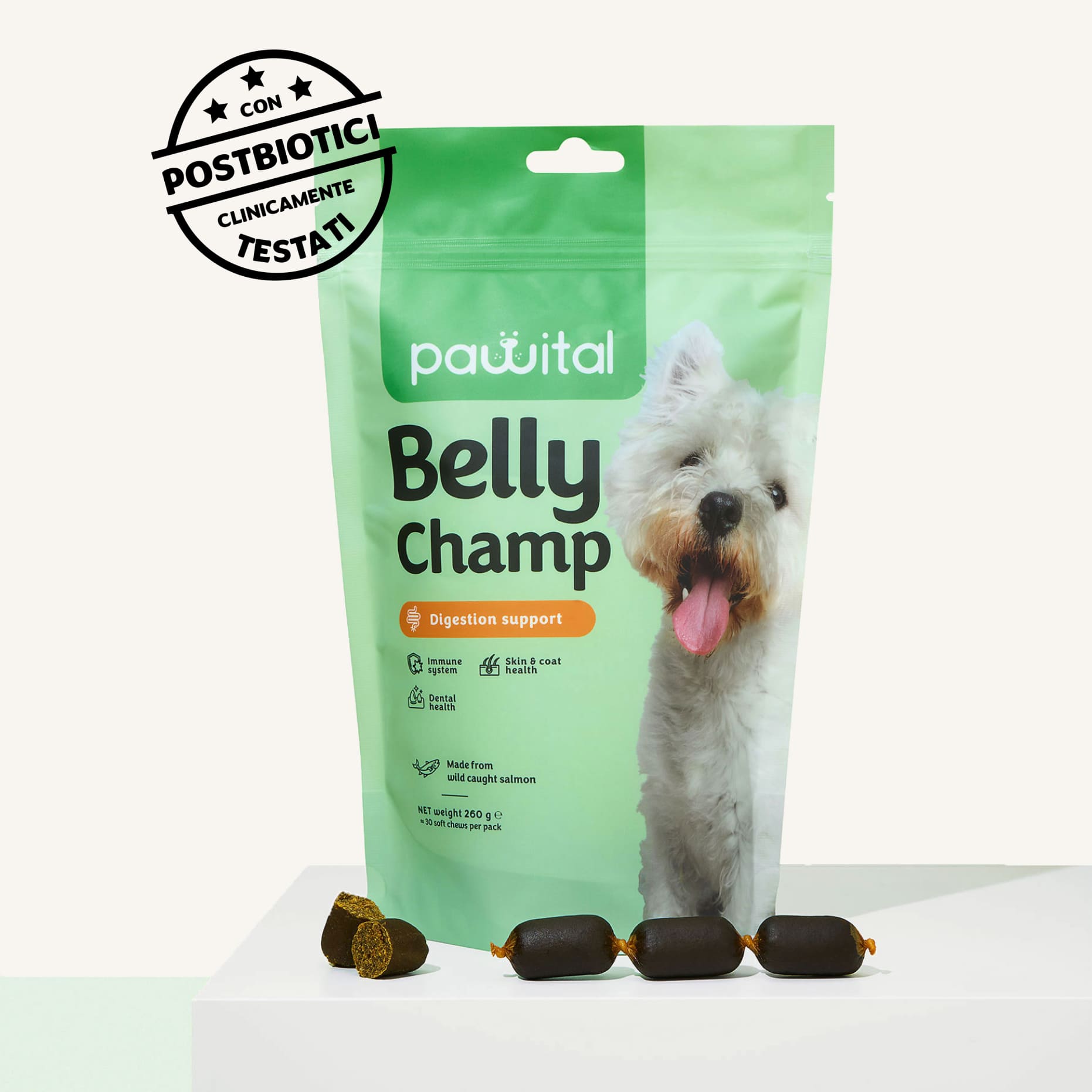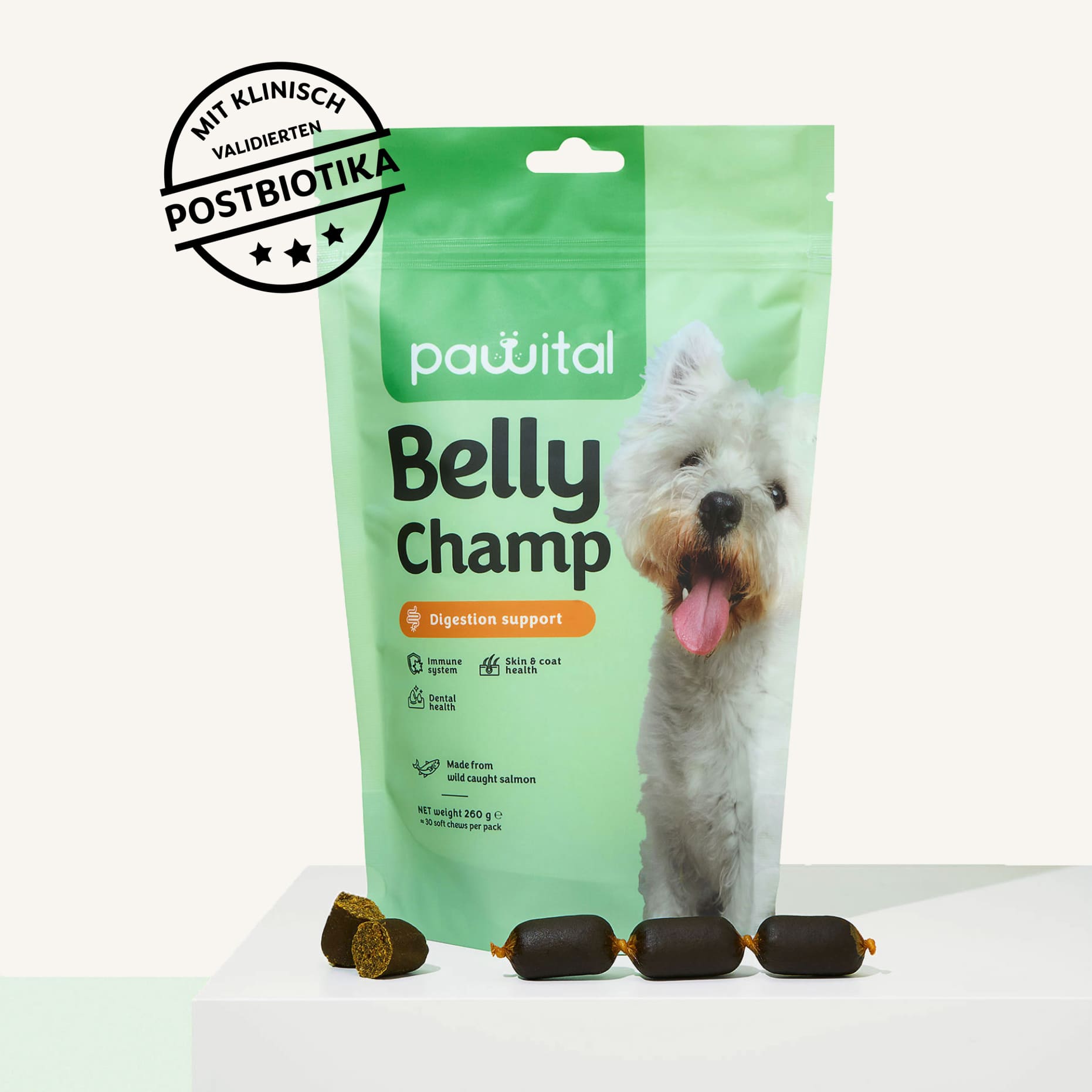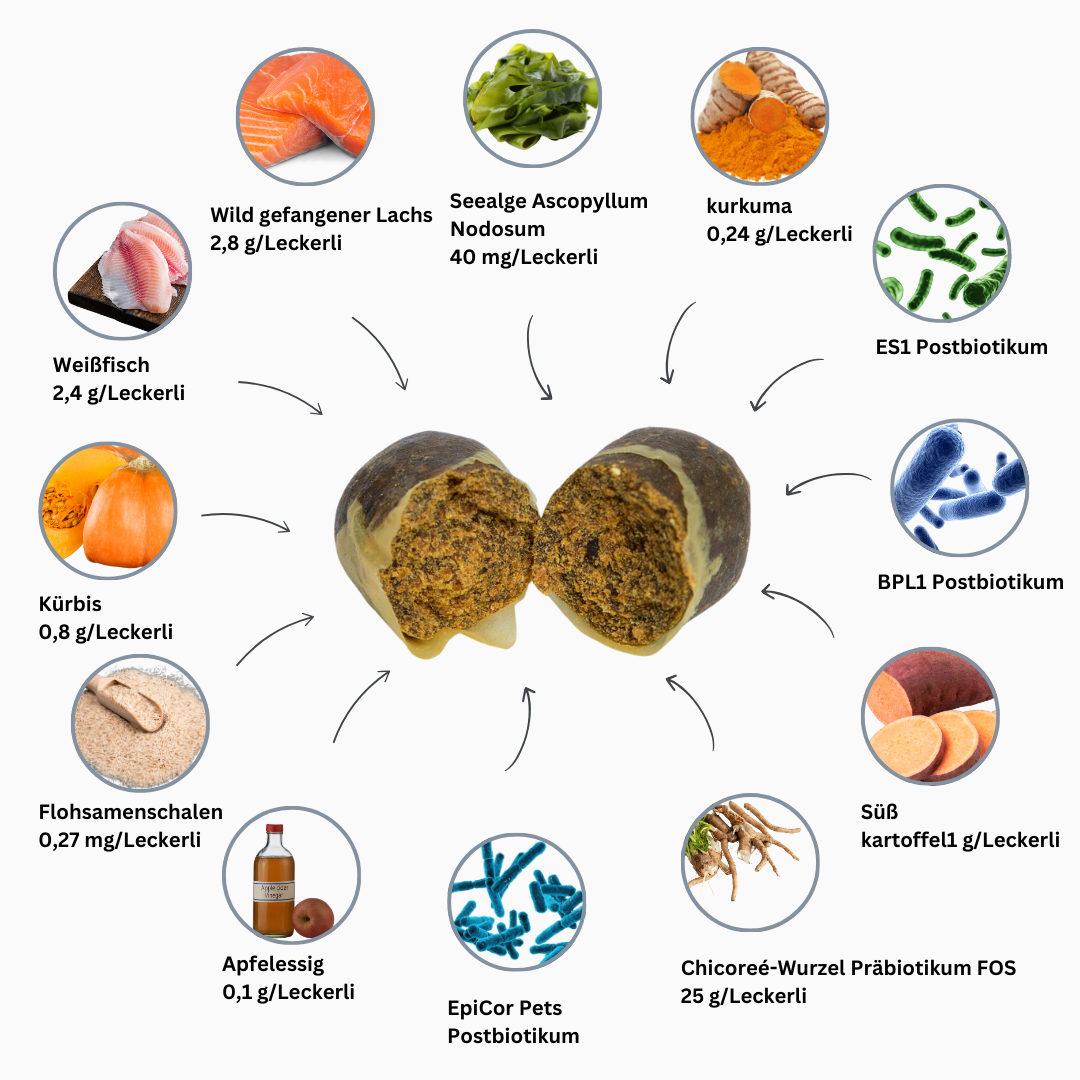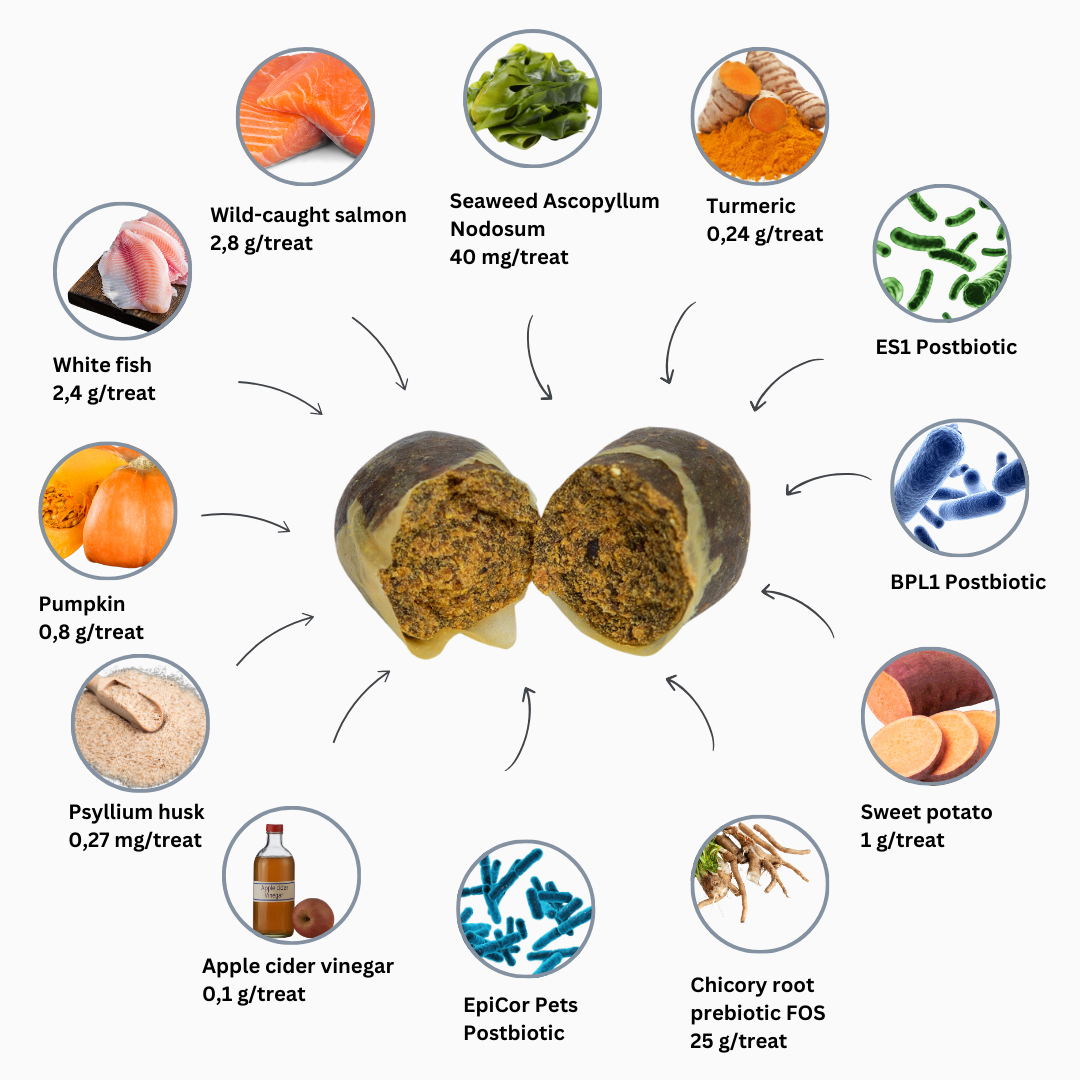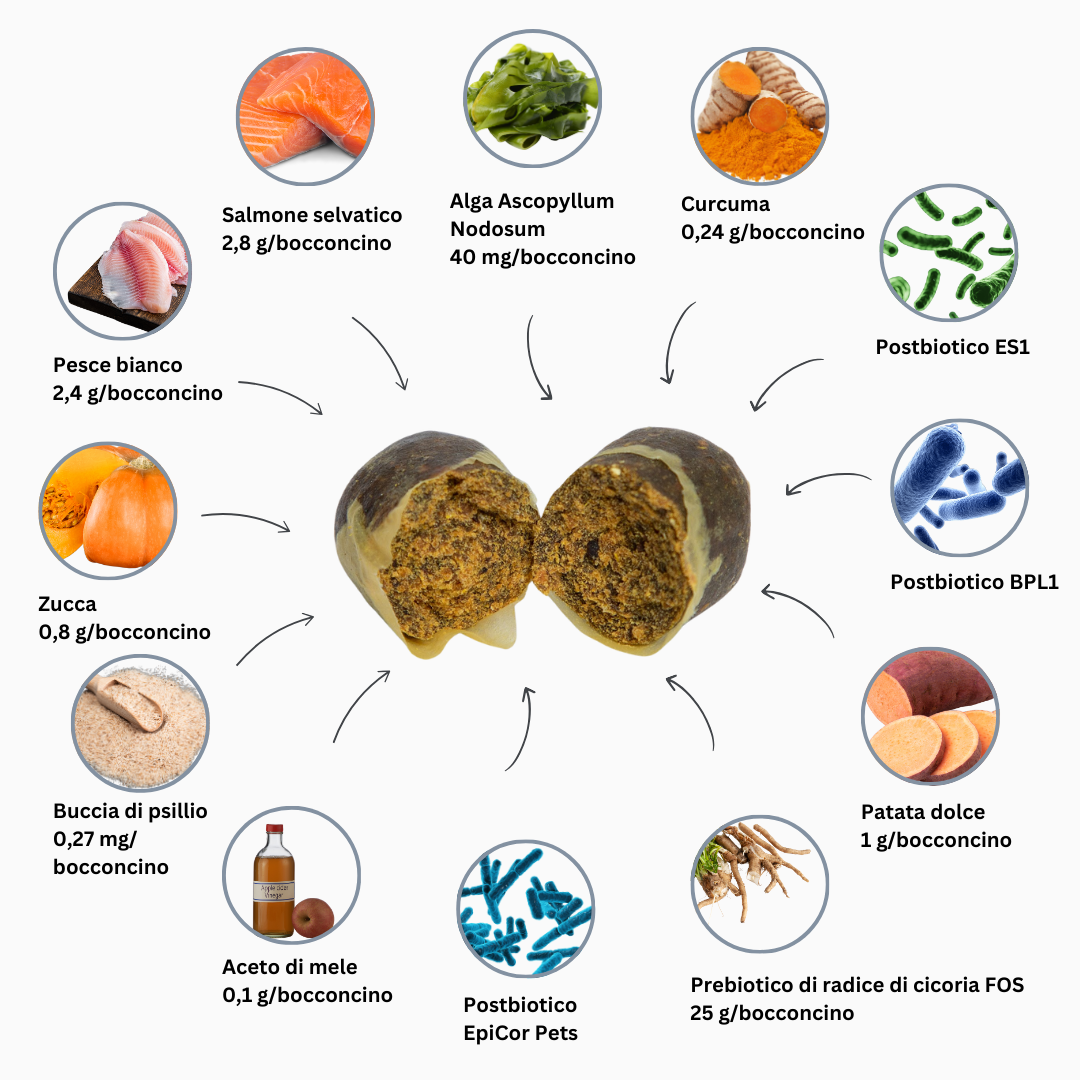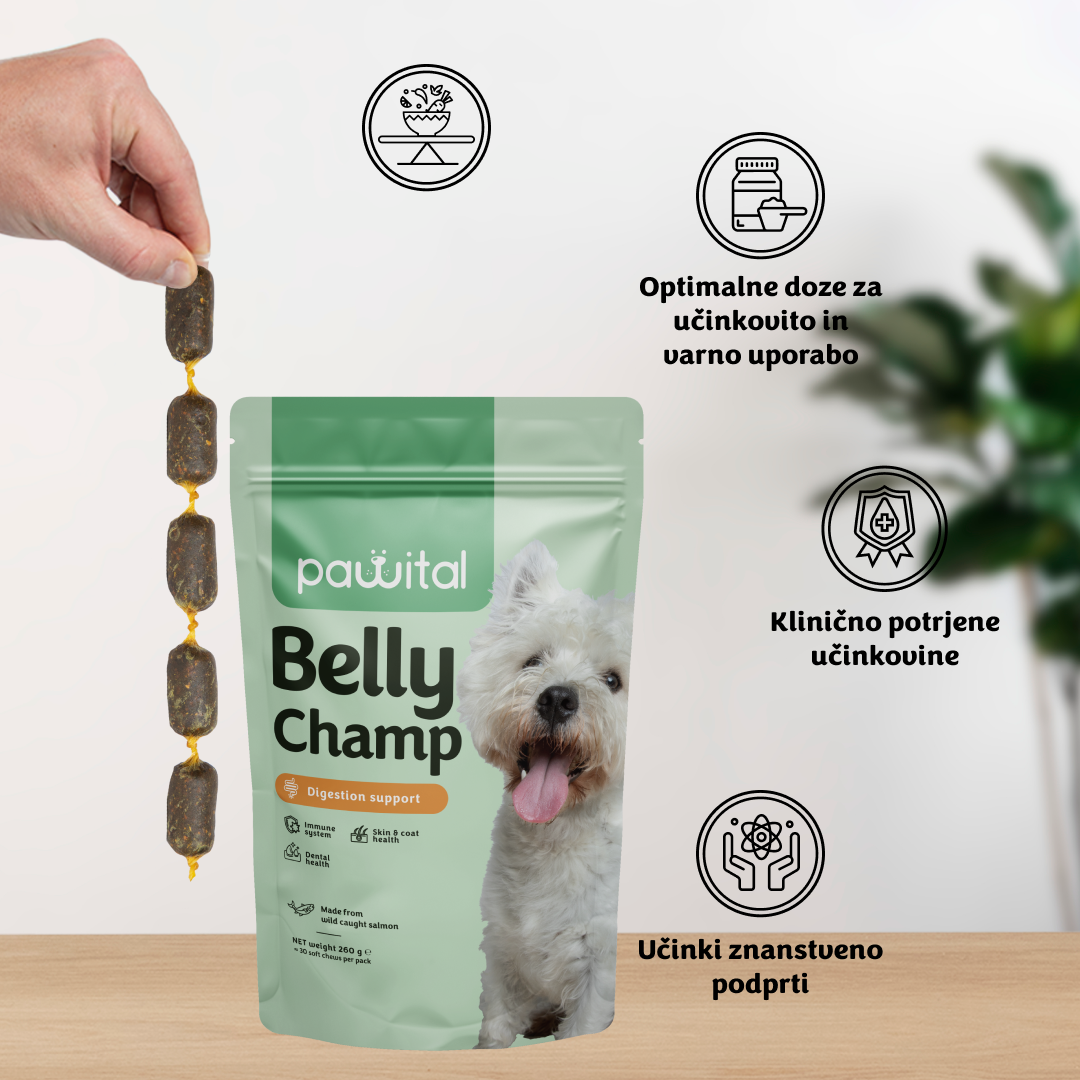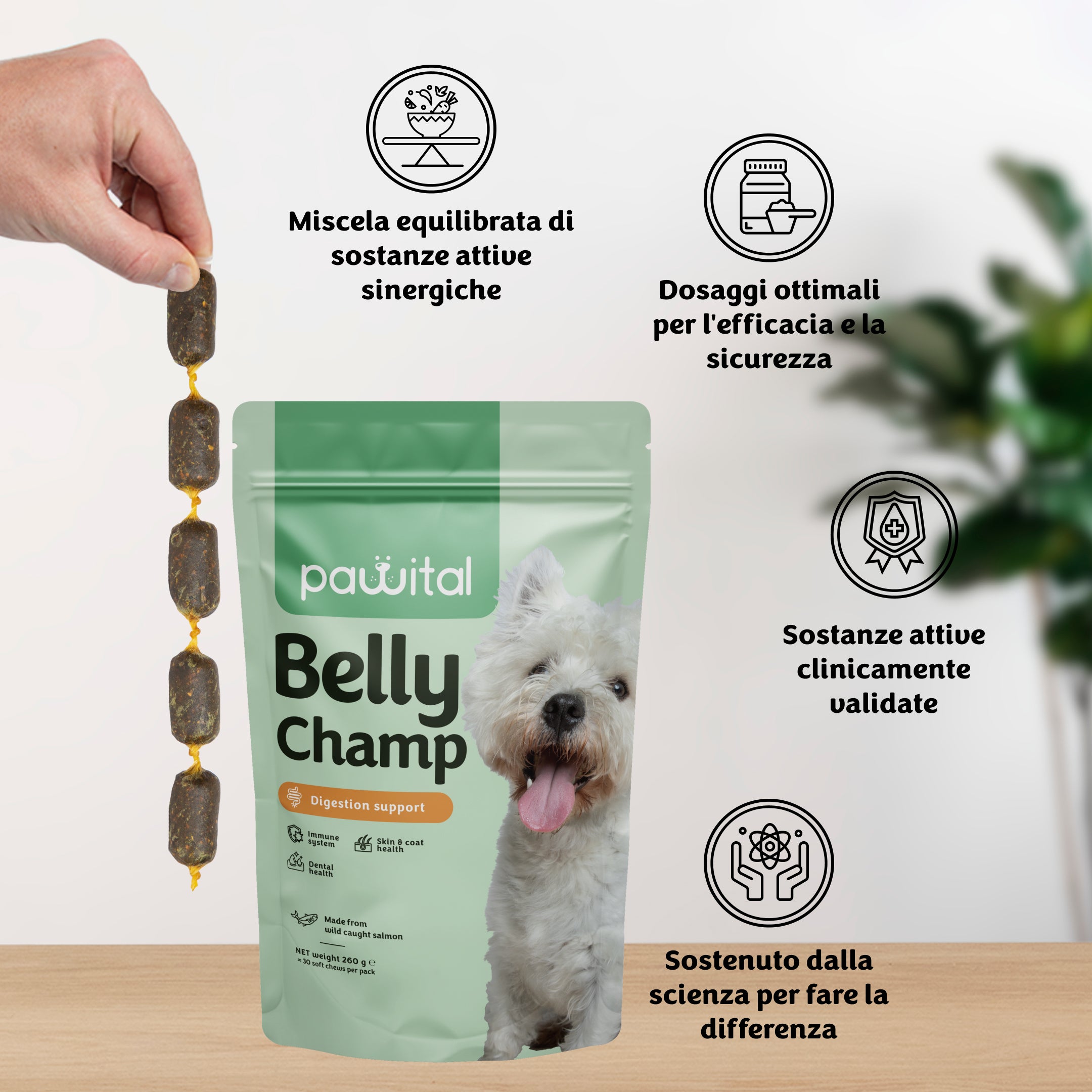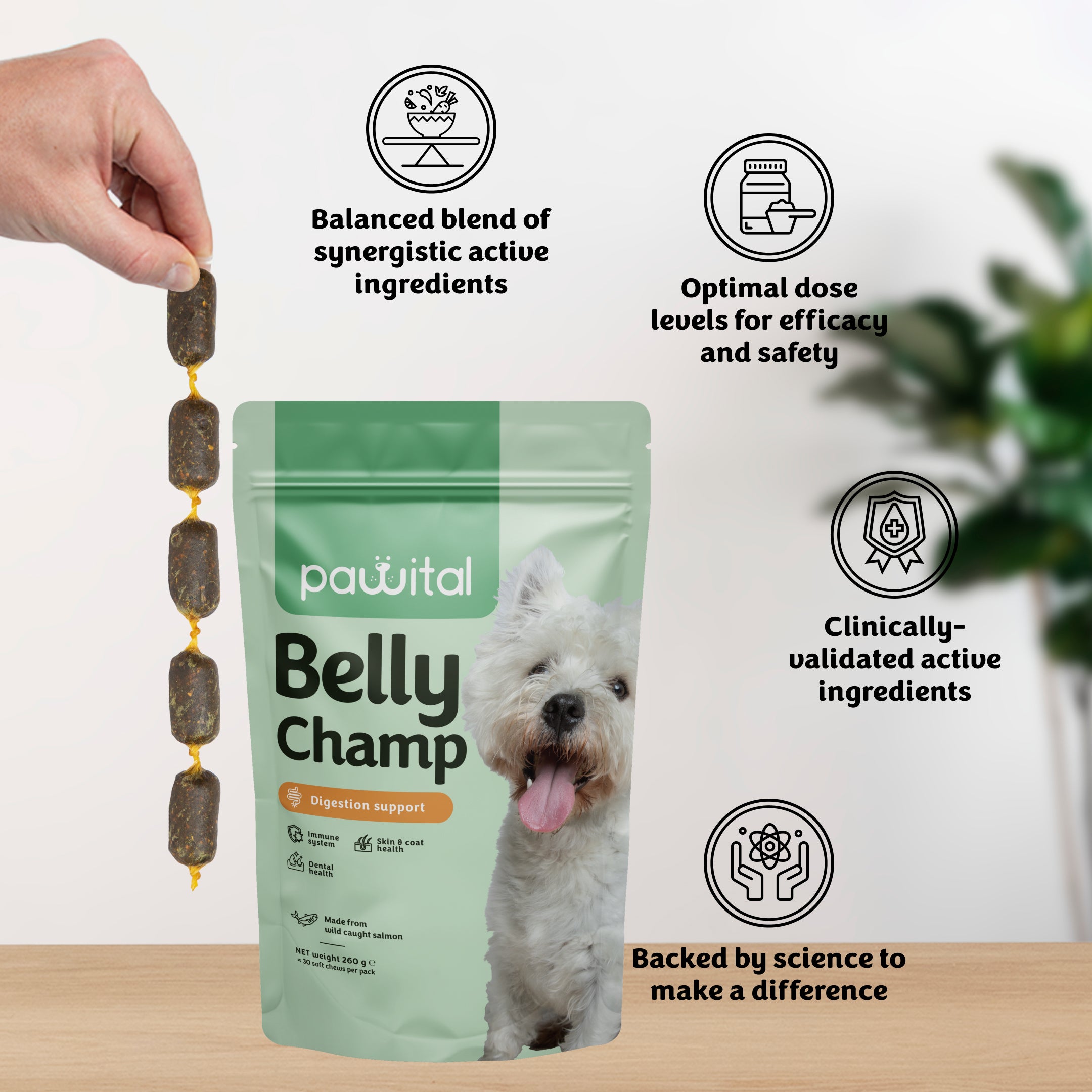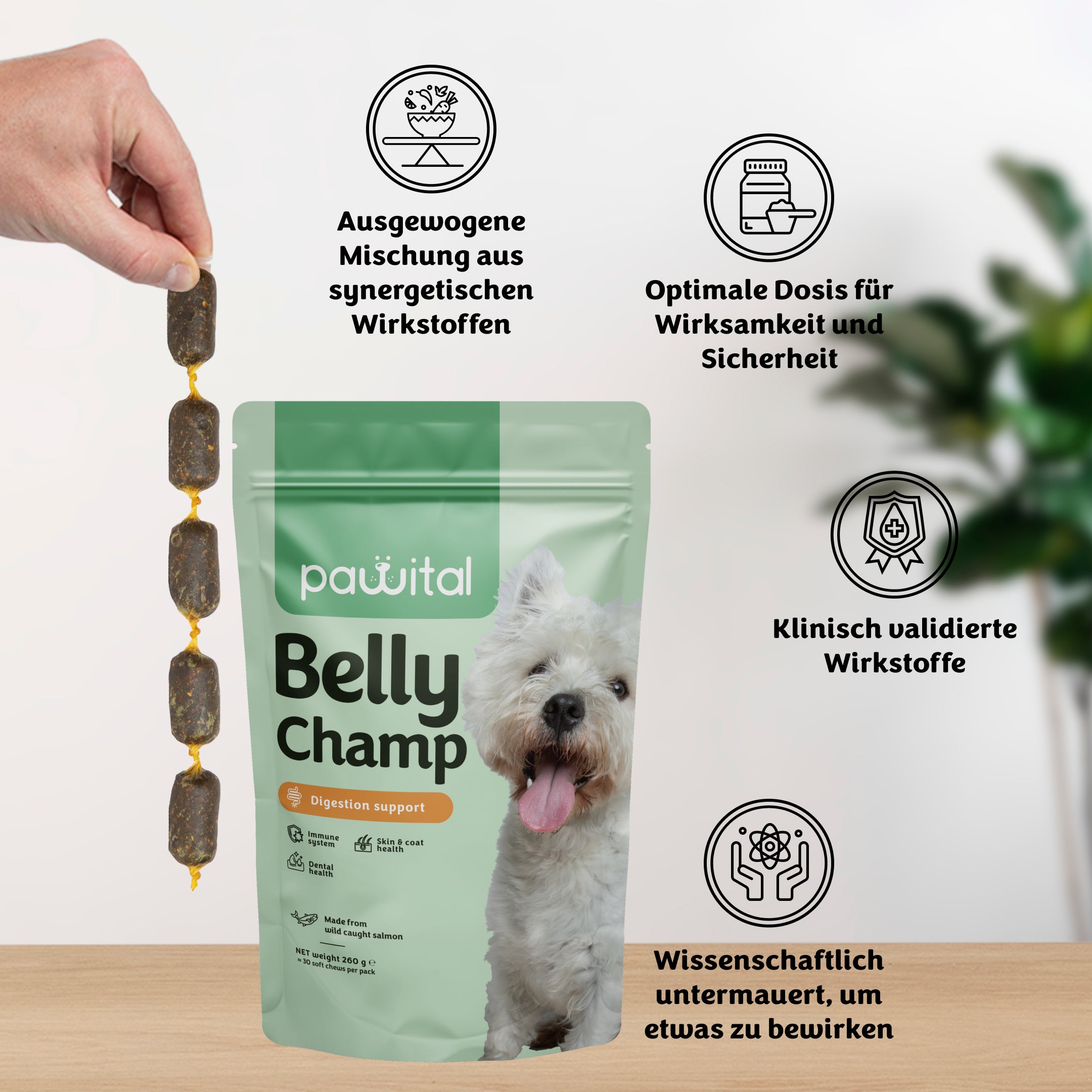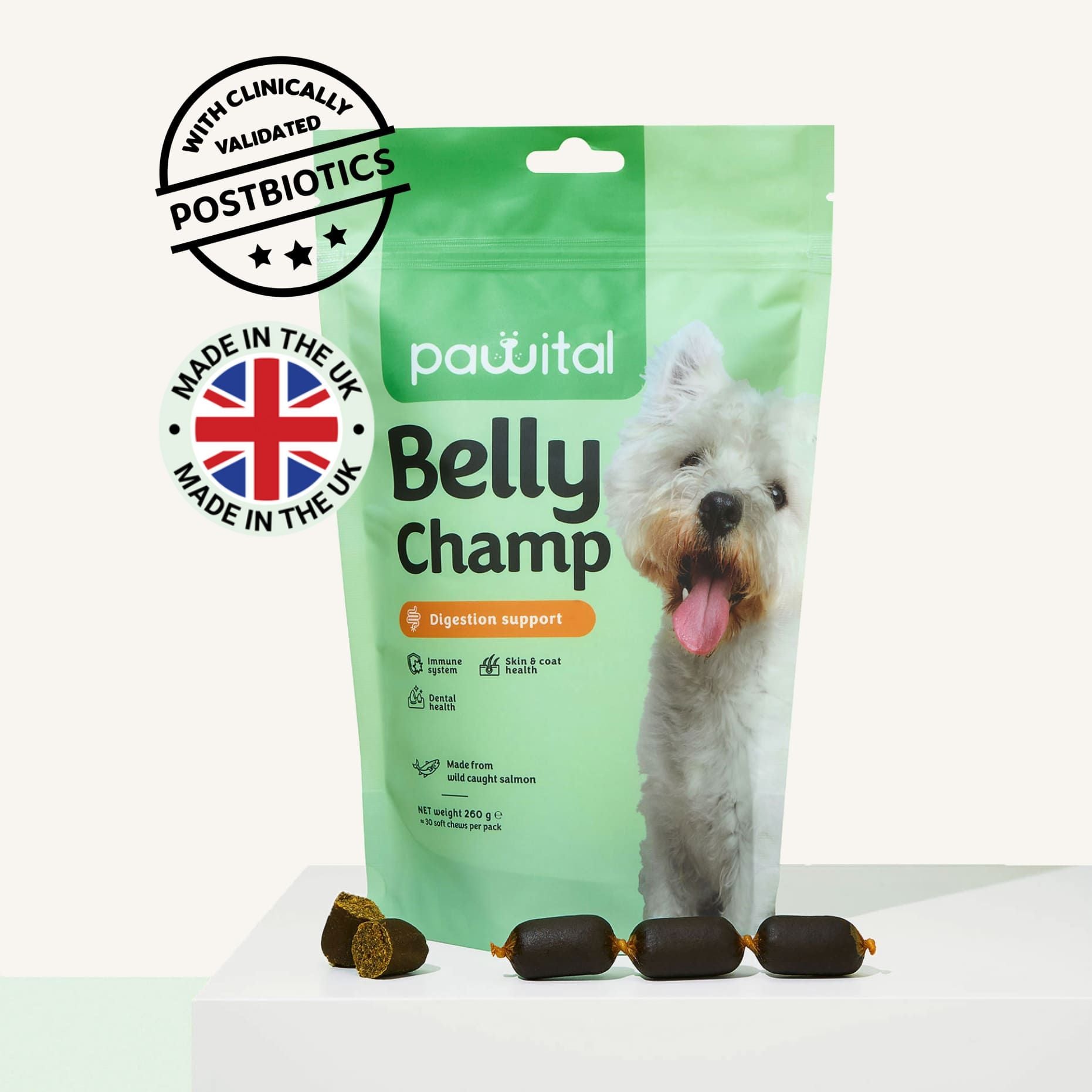Adressing acute diarrhea in dogs with an appropriate meal preparation can be helpful, but is sometimes not enough. Therefore, it is crucial to recognize the right time to visit the nearest veterinarian.

Every dog owner has probably been confronted with diarrhea or at least loose stools in their pet and wondered how we can effectively help them at home and when it is actually necessary to seek professional help and visit a vet.
Regularly checking the consistency of your dog's stools is therefore very important, as it provides a certain amount of information about the condition of the digestive tract.
Fecal scoring charts
There are various fecal scoring charts available for assessing the adequacy of dog feces, with the help of which we can identify feces that are too soft or even diarrhea on one hand and feces that are too hard and too dry, which can cause constipation problems, on the other.

(Source: Lenox C, Corbee RJ, Sparkes A. Purina Institute Handbook of Canine and Feline Clinical Nutrition, A Reference Guide to Nutritional Management of Clinical Conditions in Dogs and Cars. 2nd Edition. 2023 Nestlé Purina PetCare.)
According to this scale, the consistency of the ideal dog feces is indicated by score 2 on a seven-score scale, where the feces must be firm, but not hard, pliable with segmented appearance. It should leave no or little surface residue when picked up.
Causes of acute diarrhea in dogs
There are many causes that can lead to the occurrence of acute diarrhea in dogs - the most common include sudden changes in meals, adverse food reactions, the presence of certain bacteria or their toxins, viruses or parasites.
Diarrhea in dogs is often mild and self-limiting, and therefore the general health of the animal is not affected in any other way. The animal can recover quickly "on its own" without the need of visiting a vet and without the use of medication or other supportive therapies.
If the dog's health improves quickly, we usually do not even try to find out the possible causes that may have led to the diarrhea. Even in these cases, we can help to reduce digestive problems and speed up the recovery by feeding the dog properly prepared meals.
What to feed a dog with diarrhea
It is recommended to feed smaller meals several times a day, which are highly digestible, have a low fat content and a small to medium amount of fiber.
When preparing a meal for a dog with acute diarrhea, only one protein source and only one carbohydrate source are usually used. For example, the combination of cooked rice and lean chicken meat is traditionally considered to be "home first aid" for acute diarrhea in dogs.

Ingredients and how to cook them
The rice must be well cooked, it can even be "overcooked". When preparing chicken, care must be taken to ensure that it is sufficiently cooked so that it is not raw, and also that it is not "overcooked", as this could destroy and consequently reduce some nutrients, especially proteins, which are absolutely essential for the fastest possible recovery.
See the recipe here >>> Recipe: Chicken breasts and rice for dogs with indigestion
Alternative protein and carbohydrate sources
In addition to chicken, fat-free parts of fish, rabbit, game or lamb can also be used as a protein source if the protein sources mentioned do not cause problems for the dog themselves.
Boiled potatoes or tapioca can also be used instead of rice. The addition of low-fat cottage cheese is also suitable if you know that the dog tolerates dairy products well.

What about vitamins?
In the case of a temporary and short-term change of diet for a period of two to three days, the use of mineral and vitamin supplements, which are otherwise necessary for home-prepared cooked meals, is not necessary.
However, the use of prebiotics or probiotics, which can have a positive effect on the intestinal microbiome, is recommended. Their use is also advisable as part of prevention, even if the dog has no digestive problems at all.
About biotics
In addition to the well-known probiotics and prebiotics, the support of the gastrointestinal system and its microbiome through synbiotics and postbiotics should also be mentioned.
Most commercially available synbiotics contain a combination of probiotics and prebiotics, while postbiotics do not contain viable microorganisms but inanimate microorganisms or even only their components.
Read more about why postbiotics are new generation solution here >>> Why Probiotics Might Not Be the "Magic Pill" for Your Dog's Health & The Groundbreaking Solution Stealing the Spotlight

Monitoring for other symptoms when diarrhea occurs
Introduction of the described meal at the beginning of the diarrhea represents a low risk of worsening the animal's health, but at the same time there is no guarantee that we can always successfully "cure" the diarrhea at home in this way.
Therefore, monitoring the dog's well-being and health status is extremely important when diarrhea occurs, as diarrhea may be just one of the first clinical signs of a more serious condition, such as:
- Pancreatitis,
- foreign body obstruction or colitis,
- an inflammation of the large intestine
Possible serious conditions mentioned and also others need to be professionally recognized, treated and appropriately managed.
What symptoms call for an urgent vet visit
These are the symptoms that call for an urgent vet intervention:
- Dog's general state of health is severely impaired,
- dog stops eating and drinking,
- vomiting occurs at the same time
- severe diarrhea lasts longer than 48 hours
- the diarrhea is black or tar-colored with blood impuritie

Sick dogs, puppies and seniors
Particular care should be taken with dogs with associated illnesses, puppies and older animals, as diarrhea can lead to dehydration and a disturbed electrolyte balance even more quickly, which also requires supportive therapy in the form of fluid therapy at the vet.
Frequent, repeated diarrhea
Frequent, repeated diarrhea also requires a visit to the vet to determine the cause of the problem and to eliminate or treat it accordingly.
Diarrhea is considered chronic when persistent or intermittent episodes of diarrhea last longer than 3 weeks. In this case, a visit to the vet is essential, even if the diarrhea is only mild and does not cause any directly noticeable clinical signs, as we want to determine the cause and prevent a recurrence.

Never give the dog your meds!
In addition to visiting veterinarian at the right time, it is also important to know that diarrhea and other illnesses should never be treated on our own with human or other medications, without consulting a veterinarian.
Even if we do this in good faith to help the animal to the best of our ability, the health condition of the dog can deteriorate considerably, or such self-initiated "treatments" can even turn out to be fatal.

Diarrhea is gone - What now?
After eliminating the diarrhea, it is recommendable to gradually reintroduce the meal to which the dog is already used by gradually adding a larger amount of the daily meal and reducing the diet meal.
A little more caution is also required when we give our pets treats shortly after the diarrhea has subsided. In particular, treats with a high fat content and complex carbohydrates should be avoided as they can cause stomach upsets.
Conclusion
Addressing acute diarrhea in dogs through proper meal preparation is helpful, but recognizing the need for professional veterinary intervention is crucial. Monitoring stool consistency using fecal scoring charts enables us to recognize feces that are too soft and that may develop into diarrhea.
Causes, ranging from dietary changes to infections, vary, and while some cases resolve with home care, severe or persistent diarrhea demands immediate veterinary attention.
Additional special attention is needed for dogs with combined chronic diseases, puppies, and seniors, as they are more vulnerable to dehydration.
Never administer human medications, medications should always be prescribed from the veterinarian. Recognizing the right time to seek professional help ensures the dog's well-being and appropriate care.
Written by dr. vet. med. Ana Gotvajn



